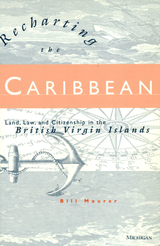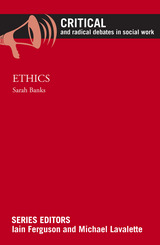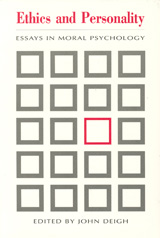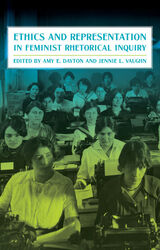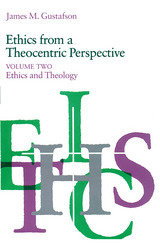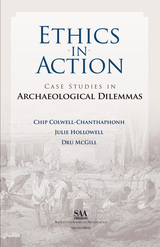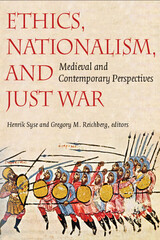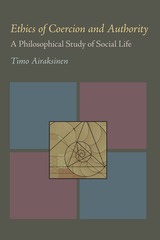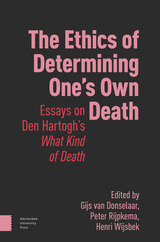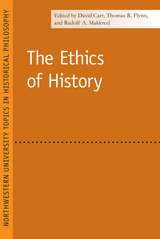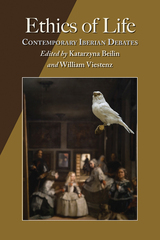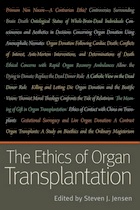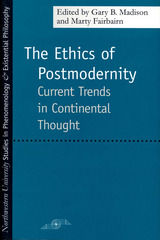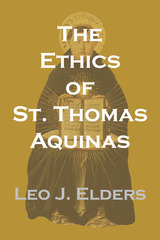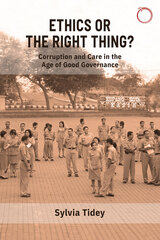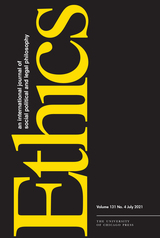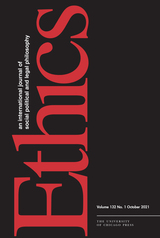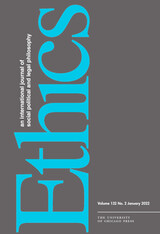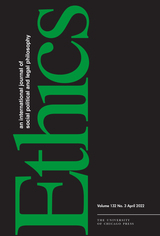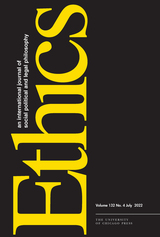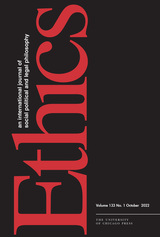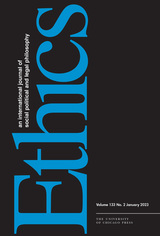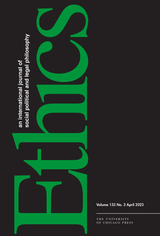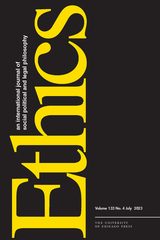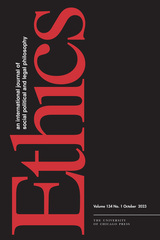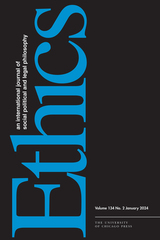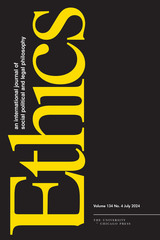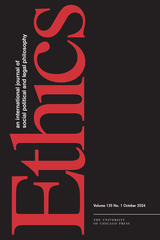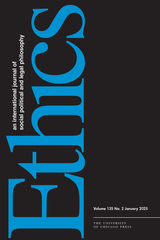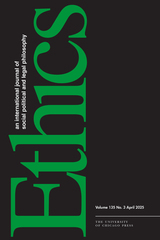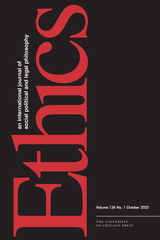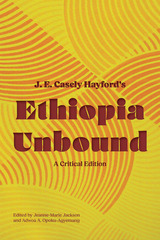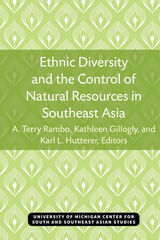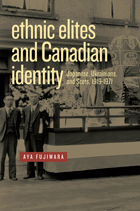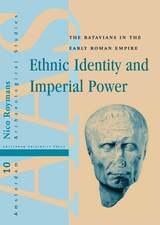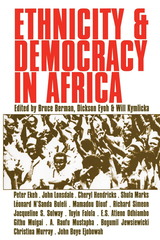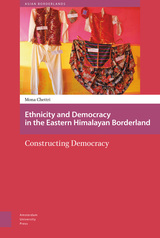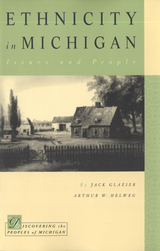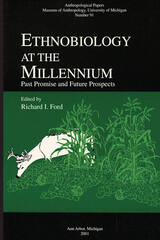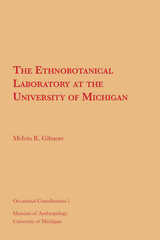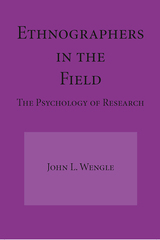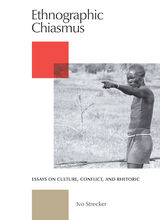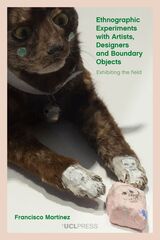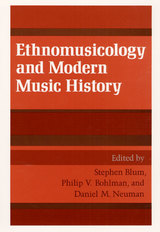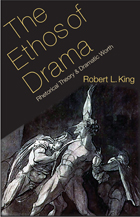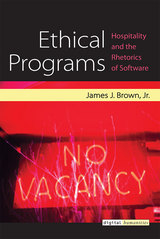 Ethical Programs: Hospitality and the Rhetorics of Software
James J. Brown, Jr.
University of Michigan Press, 2015 Living in a networked world means never really getting to decide in any thoroughgoing way who or what enters your “space” (your laptop, your iPhone, your thermostat . . . your home). With this as a basic frame-of-reference, James J. Brown’s Ethical Programs examines and explores the rhetorical potential and problems of a hospitality ethos suited to a new era of hosts and guests. Brown reads a range of computational strategies and actors including the general principles underwriting the Transmission Control Protocol (TCP), which determines how packets of information can travel through the internet, to the Obama election campaign’s use of the power of protocols to reach voters, harvest their data, incentivize and, ultimately, shape their participation in the campaign. In demonstrating the kind of rhetorical spaces networked software establishes and the access it permits, prevents, and molds, Brown makes a major contribution to the emergent discourse of software studies as a major component of efforts in broad fields including media studies, rhetorical studies, and cultural studies.
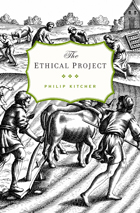 The Ethical Project
Philip Kitcher
Harvard University Press, 2014 Principles of right and wrong guide the lives of almost all human beings, but we often see them as external to ourselves, outside our own control. In a revolutionary approach to the problems of moral philosophy, Philip Kitcher makes a provocative proposal: Instead of conceiving ethical commands as divine revelations or as the discoveries of brilliant thinkers, we should see our ethical practices as evolving over tens of thousands of years, as members of our species have worked out how to live together and prosper. Elaborating this radical new vision, Kitcher shows how the limited altruistic tendencies of our ancestors enabled a fragile social life, how our forebears learned to regulate their interactions with one another, and how human societies eventually grew into forms of previously unimaginable complexity. The most successful of the many millennia-old experiments in how to live, he contends, survive in our values today.
Drawing on natural science, social science, and philosophy to develop an approach he calls "pragmatic naturalism," Kitcher reveals the power of an evolving ethics built around a few core principles-including justice and cooperation-but leaving room for a diversity of communities and modes of self-expression. Ethics emerges as a beautifully human phenomenon-permanently unfinished, collectively refined and distorted generation by generation. Our human values, Kitcher shows, can be understood not as a final system but as a project-the ethical project-in which our species has engaged for most of its history, and which has been central to who we are.
Ethics
Edited by Sarah Banks
Bristol University Press, 2014 The past few years have seen a renewed interest in social work ethics, and this volume argues that this phenomenon can be seen as reflecting two very different agendas. On the one hand, this interest is part of a progressive movement that critiques market-oriented approaches to managing the public sector—often called New Public Management (NPM)—by emphasizing the role of social workers as agents for social justice. On the other hand, the growth of interest in ethics could be viewed as part of the NPM and its efforts toward controlling the conduct of professionals and service users. The contributors explore both of these viewpoints, emphasizing the importance of reclaiming professional ethics for social work and outlining a preliminary framework for doing so.
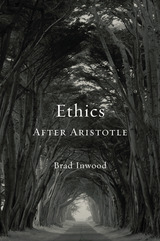 Ethics After Aristotle
Brad Inwood
Harvard University Press, 2014 From the earliest times, philosophers and others have thought deeply about ethical questions. But it was Aristotle who founded ethics as a discipline with clear principles and well-defined boundaries. Ethics After Aristotle focuses on the reception of Aristotelian ethical thought in the Hellenistic and Roman worlds, underscoring the thinker’s enduring influence on the philosophers who followed in his footsteps from 300 BCE to 200 CE.
Beginning with Aristotle’s student and collaborator Theophrastus, Brad Inwood traces the development of Aristotelian ethics up to the third-century Athenian philosopher Alexander of Aphrodisias. He shows that there was no monolithic tradition in the school, but a rich variety of moral theory. The philosophers of the Peripatetic school produced surprisingly varied theories in dialogue with other philosophical traditions, generating rich insight into human virtue and happiness. What unifies the different strands of thought—what makes them distinctively Aristotelian—is a form of ethical naturalism: that our knowledge of the good and virtuous life depends first on understanding our place in the natural world, and second on the exercise of our natural dispositions in distinctively human activities. What is now referred to as “virtue ethics,” Inwood argues, is a less important part of Aristotle’s legacy than the naturalistic approach Aristotle articulated and his philosophical descendants developed further.
Offering a wide range of ways of thinking about ethics from an ancient perspective, Ethics After Aristotle is a penetrating study of how philosophy evolves in the wake of an unusually powerful and original thinker.
 Ethics & International Affairs: A Reader, Second Edition
Joel H. Rosenthal, Editor
Georgetown University Press, 1999 This collection of some of the best contemporary scholarship in ethics and international affairs explores the connection between moral traditions and decision making during and after the Cold War. Each author relates the timeless insights of philosophy and our collective historical experience to the hard choices of our own age. Building on the pioneering work of earlier writers in the 1970s and 1980s, this book offers organizing principles for the study of the field. This second edition has been expanded from seventeen to twenty-two essays, of which eleven are new. It includes new chapters on the following topics: Asian values and human rights; moral judgment and cold war history; humanitarian intervention and the politics of rescue; the psychology of genocide; truth, reconciliation, and conflict resolution; and international business ethics and corporate responsibility. New contributors include Amartya Sen, John Lewis Gaddis, and Thomas Donaldson. This volume should be of special interest to those working and teaching in international relations, diplomatic history, foreign policy, applied ethics, and related fields. Published with the Carnegie Council on Ethics and International Affairs
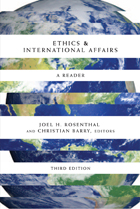 Ethics & International Affairs: A Reader, Third Edition
Joel H. Rosenthal and Christian Barry, Editors
Georgetown University Press, 2009 The third edition of Ethics & International Affairs provides a fresh selection of classroom resources, ideal for courses in international relations, ethics, foreign policy, and related fields. Published with the Carnegie Council for Ethics in International Affairs, this collection contains some of the best contemporary scholarship on international ethics, written by a group of distinguished political scientists, political theorists, philosophers, applied ethicists, and economic development specialists. Each contributor explores how moral theory can inform policy choices regarding topics such as war and intervention, international organizations, human rights, and global economic justice. This book provides an entry point into these key debates and offers a platform for further discussion. Published in cooperation with the Carnegie Council for Ethics in International Affairs
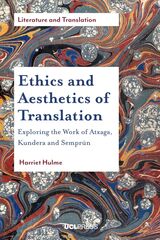 Ethics and Aesthetics of Translation: Exploring the Works of Atxaga, Kundera and Semprún
Harriet Hulme
University College London, 2018 Ethics and Aesthetics of Translation engages with translation, in both theory and practice, as part of an interrogation of ethical as well as political thought in the work of three bilingual European authors: Bernardo Atxaga, Milan Kundera, and Jorge Semprún. In approaching the work of these authors, the book draws upon the approaches to translation offered by Benjamin, Derrida, Ricoeur, and Deleuze to highlight a broad set of ethical questions, focused upon the limitations of the monolingual and the democratic possibilities of linguistic plurality; upon our innate desire to translate difference into similarity; and upon the ways in which translation responds to the challenges of individual and collective remembrance. Each chapter explores these interlingual but also intercultural, interrelational, and interdisciplinary issues, mapping a journey of translation that begins in the impact of translation upon the work of each author, continues into moments of linguistic translation, untranslatability and mistranslation within their texts and ultimately becomes an exploration of social, political and affective untranslatability. In these journeys, the creative and critical potential of translation emerges as a potent, often violent, but always illuminating, vision of the possibilities of differentiation and connection, generation and memory, in temporal, linguistic, cultural and political terms.
 Ethics and Economics of Assisted Reproduction: The Cost of Longing
Maura A. Ryan
Georgetown University Press, 2001 For those who undergo it, infertility treatment is costly, time-consuming, invasive, and emotionally and physically arduous, yet technology remains the focus of most public discussion of the topic. Drawing on concepts from medical ethics, feminist theory, and Roman Catholic social teaching, Maura A. Ryan analyzes the economic, ethical, theological, and political dimensions of assisted reproduction. Taking seriously the experience of infertility as a crisis of the self, the spirit, and the body, Ryan argues for the place of reproductive technologies within a temperate, affordable, sustainable, and just health care system. She contends that only by ceasing to treat assisted reproduction as a consumer product can meaningful questions about medical appropriateness and social responsibility be raised. She places infertility treatments within broader commitments to the common good, thereby understanding reproductive rights as an inherently social, rather than individual, issue. Arguing for some limits on access to reproductive technology, Ryan considers ways to assess the importance of assisted reproduction against other social and medical prerogatives and where to draw the line in promoting fertility. Finally, Ryan articulates the need for a compassionate spirituality within faith communities that will nurture those who are infertile.
 Ethics and Law for Neurosciences Clinicians: Foundations and Evolving Challenges
James E. Szalados
Rutgers University Press, 2019 The brain represents the final frontier in medical sciences. Clinical neurosciences include the subspecialties of neurology, neurosurgery, neuro-imaging, cerebrovascular interventional specialties, neurocritical care, and the allied specialties in pharmacy and nursing. The first lens through which we see our patients is the clinical perspective; however, the complexity of neurosciences and the rapidity of the advances in these subspecialties require that clinicians not lose sight of the personhood of the patients, the professionalism required in the care of these complex patients, or the regulatory environment in which we practice. Science and technology are advancing more rapidly than regulations or the law can interpret and integrate them into a supportive or regulatory framework. Thus, morality, ethics, and the law comprise the final lens through which we approach complex patient management issues, frame our communications with patients and families, and evaluate the risks and potential benefits of new technology. Ethics and Law for Neurosciences Clinicians is written for all clinicians in the neurosciences specialties to examine and re-examine the ethical and legal implications of advances in clinical neurosciences.
Ethics and Personality: Essays in Moral Psychology
Edited by John Deigh
University of Chicago Press, 1992 This anthology focuses on emotions and motives that relate to our status as moral agents, our capacity for moral judgement, and the practices that help to define our social lives. Attachment, trust, respect, conscience, guilt, revenge, depravity, and forgiveness are among the topics discussed. Collectively, the thirteen essays in this collection represent a time-honored tradition in ethics: the effort to throw light on fundamental questions concerning the complexities of the human soul.
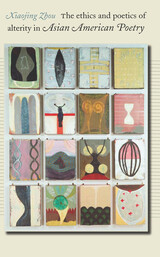 The Ethics and Poetics of Alterity in Asian American Poetry
Xiaojing Zhou
University of Iowa Press, 2006 Poetry by Asian American writers has had a significant impact on the landscape of contemporary American poetry, and a book-length critical treatment of Asian American poetry is long overdue. In this groundbreaking book, Xiaojing Zhou demonstrates how many Asian American poets transform the conventional “I” of lyric poetry—based on the traditional Western concept of the self and the Cartesian “I”—to enact a more ethical relationship between the “I” and its others. Drawing on Emmanuel Levinas’s idea of the ethics of alterity—which argues that an ethical relation to the other is one that acknowledges the irreducibility of otherness—Zhou offers a reconceptualization of both self and other. Taking difference as a source of creativity and turning it into a form of resistance and a critical intervention, Asian American poets engage with broader issues than the merely poetic. They confront social injustice against the other and call critical attention to a concept of otherness which differs fundamentally from that underlying racism, sexism, and colonialism. By locating the ethical and political questions of otherness in language, discourse, aesthetics, and everyday encounters, Asian American poets help advance critical studies in race, gender, and popular culture as well as in poetry. The Ethics and Poetics of Alterity is not limited, however, to literary studies: it is an invaluable response to the questions raised by increasingly globalized encounters across many kinds of boundaries. The Poets Marilyn Chin, Kimiko Hahn, Myung Mi Kim, Li Young Lee, Timothy Liu, David Mura, and John Yau
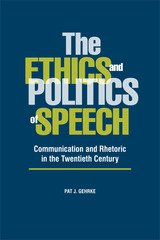 The Ethics and Politics of Speech: Communication and Rhetoric in the Twentieth Century
Pat J. Gehrke
Southern Illinois University Press, 2009 In The Ethics and Politics of Speech, Pat J. Gehrke provides an accessible yet intensive history of the speech communication discipline during the twentieth century. Drawing on several previously unpublished or unexamined sources—including essays, conference proceedings, and archival documents—Gehrke traces the evolution of communication studies and the dilemmas that often have faced academics in this field. In his examination, Gehrke not only provides fresh perspectives on old models of thinking; he reveals new methods for approaching future studies of ethical and political communication.
Gehrke begins his history with the first half of the twentieth century, discussing the development of a social psychology of speech and an ethics based on scientific principles, and showing the importance of democracy to teaching and scholarship at this time. He then investigates the shift toward philosophical—especially existential—ways of thinking about communication and ethics starting in the 1950s and continuing through the mid-1970s, a period associated with the rise of rhetoric in the discipline. In the chapters covering the last decades of the twentieth century, Gehrke demonstrates how the ethics and politics of communication were directed back onto the practices of scholarship within the discipline, examining the increased use of postmodern and poststructuralist theories, as well as the new trend toward writing original theory, rather than reinterpreting the past. In offering a thorough history of rhetoric studies, Gehrke sets the stage for new questions and arguments, ultimately emphasizing the deeply moral and political implications that by nature embed themselves in the field of communication. More than simply a history of the discipline's major developments, The Ethics and Politics of Speech is an account of the philosophical and moral struggles that have faced communication scholars throughout the last century. As Gehrke explores the themes and movements within rhetoric and speech studies of the past, he also provides a better understanding of the powerful forces behind the forging of the field. In doing so, he reveals history’s potential to act as a vehicle for further academic innovation in the future.
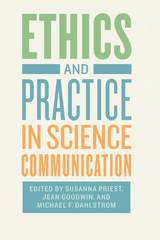 Ethics and Practice in Science Communication
Edited by Susanna Priest, Jean Goodwin, and Michael F. Dahlstrom
University of Chicago Press, 2018 From climate to vaccination, stem-cell research to evolution, scientific work is often the subject of public controversies in which scientists and science communicators find themselves enmeshed. Especially with such hot-button topics, science communication plays vital roles. Gathering together the work of a multidisciplinary, international collection of scholars, the editors of Ethics and Practice in Science Communication present an enlightening dialogue involving these communities, one that articulates the often differing objectives and ethical responsibilities communicators face in bringing a range of scientific knowledge to the wider world.
In three sections—how ethics matters, professional practice, and case studies—contributors to this volume explore the many complex questions surrounding the communication of scientific results to nonscientists. Has the science been shared clearly and accurately? Have questions of risk, uncertainty, and appropriate representation been adequately addressed? And, most fundamentally, what is the purpose of communicating science to the public: Is it to inform and empower? Or to persuade—to influence behavior and policy? By inspiring scientists and science communicators alike to think more deeply about their work, this book reaffirms that the integrity of the communication of science is vital to a healthy relationship between science and society today.
Ethics and Representation in Feminist Rhetorical Inquiry
Amy Dayton, Jennie Vaughn
University of Pittsburgh Press, 2021 The historiography of feminist rhetorical research raises ethical questions about whose stories are told and how. Women and other marginalized people have been excluded historically from many formal institutions, and researchers in this field often turn to alternative archives to explore how women have used writing and rhetoric to participate in civic life, share their lived experiences, and effect change. Such methods may lead to innovation in documenting practices that took place in local, grassroots settings. The chapters in this volume present a frank conversation about the ways in which feminist scholars engage in the work of recovering hidden rhetorics, and grapple with the ethical challenges raised by this recovery work.
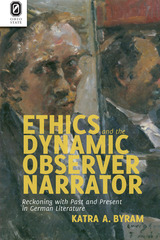 Ethics and the Dynamic Observer Narrator: Reckoning with Past and Present in German Literature
Katra A. Byram
Ohio State University Press, 2015 In Ethics and the Dynamic Observer Narrator: Reckoning with Past and Present in German Literature, Katra A. Byram proposes a new category—the dynamic observer form—to describe a narrative situation that emerges when stories about others become an avenue to negotiate a narrator’s own identity across past and present. Focusing on German-language fiction from the nineteenth and twentieth centuries, Byram demonstrates how the dynamic observer form highlights historical tensions and explores the nexus of history, identity, narrative, and ethics in the modern moment.
Ethics and the Dynamic Observer Narrator contributes to scholarship on both narrative theory and the historical and cultural context of German and Austrian literary studies. Narrative theory, according to Byram, should understand this form to register complex interactions between history and narrative form. Byram also juxtaposes new readings of works by Textor, Storm, and Raabe from the nineteenth century with analyses of twentieth-century works by Grass, Handke, and Sebald, ultimately reframing our understanding of literary Vergangenheitsbewältigung, or the struggle to come to terms with the past. Overall, Byram shows that neither the problem of reckoning with the past nor the dynamic observer form is unique to Germany’s post-WWII era. Both are products of the dynamics of modern identity, surfacing whenever critical change separates what was from what is.
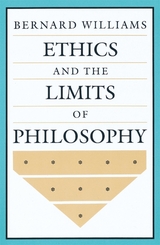 Ethics and the Limits of Philosophy
Bernard Williams
Harvard University Press, 1985 Bernard Williams is an eloquent member of that small but important group of distinguished thinkers who are trying to erase the borders between the experts and all of us who grapple with moral issues in our own lives. In this book he delivers a sustained indictment of systematic moral theory from Kant onward and offers a persuasive alternative.
Kant’s ideas involved a view of the self we can no longer accept. Modern theories such as utilitarianism and contractualism usually offer criteria that lie outside the self altogether, and this, together with an emphasis on system, has weakened ethical thought. Why should a set of ideas have any special authority over our sentiments just because it has the structure of a theory? How could abstract theory help the individual answer the Socratic question “How should I live?”
Williams’s goal is nothing less than to reorient ethics toward the individual. He accuses modern moral philosophers of retreating to system and deserting individuals in their current social context. He believes that the ethical work of Plato and Aristotle is nearer to the truth of what ethical life is, but at the same time recognizes that the modern world makes unparalleled demands on ethical thought. He deals with the most thorny questions in contemporary philosophy and offers new ideas about issues such as relativism, objectivity, and the possibility of ethical knowledge. Williams has written an imaginative, ingenious book that calls for philosophers to transcend their self-imposed limits and to give full attention to the complexities of the ethical life.
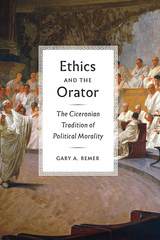 Ethics and the Orator: The Ciceronian Tradition of Political Morality
Gary A. Remer
University of Chicago Press, 2017 For thousands of years, critics have attacked rhetoric and the actual practice of politics as unprincipled, insincere, and manipulative. In Ethics and the Orator, Gary A. Remer disagrees, offering the Ciceronian rhetorical tradition as a rejoinder. He argues that the Ciceronian tradition is based on practical or “rhetorical” politics, rather than on idealistic visions of a politics-that-never-was—a response that is ethically sound, if not altogether morally pure.
Remer’s study is distinct from other works on political morality in that it turns to Cicero, not Aristotle, as the progenitor of an ethical rhetorical perspective. Contrary to many, if not most, studies of Cicero since the mid-nineteenth century, which have either attacked him as morally indifferent or have only taken his persuasive ends seriously (setting his moral concerns to the side), Ethics and the Orator demonstrates how Cicero presents his ideal orator as exemplary not only in his ability to persuade, but in his capacity as an ethical person. Remer makes a compelling case that Ciceronian values—balancing the moral and the useful, prudential reasoning, and decorum—are not particular only to the philosopher himself, but are distinctive of a broader Ciceronian rhetorical tradition that runs through the history of Western political thought post-Cicero, including the writings of Quintilian, John of Salisbury, Justus Lipsius, Edmund Burke, the authors of The Federalist, and John Stuart Mill.
 Ethics as Grammar: Changing the Postmodern Subject
Brad J. Kallenberg
University of Notre Dame Press, 2001 Wittgenstein, one of the most influential, and yet widely misunderstood, philosophers of our age, confronted his readers with aporias--linguistic puzzles--as a means of countering modern philosophical confusions over the nature of language without replicating the same confusions in his own writings. In Ethics as Grammar, Brad Kallenberg uses the writings of theological ethicist Stanley Hauerwas as a foil for demonstrating how Wittgenstein's method can become concrete within the Christian tradition. Kallenberg shows that the aesthetic, political, and grammatical strands epitomizing Hauerwas's thought are the result of his learning to do Christian ethics by thinking through Wittgenstein.
Kallenberg argues that Wittgenstein's pedagogical strategy cultivates certain skills of judgment in his readers by making them struggle to move past the aporias and acquire the fluency of language's deeper grammar. Theologians, says Kallenberg, are well suited to this task of "going on" because the gift of Christianity supplies them with the requisite resources for reading Wittgenstein. Kallenberg uses Hauerwas to make this case-showing that Wittgenstein's aporetic philosophy has engaged Hauerwas in a lifelong conversation that has cured him of many philosophical confusions. Yet, because Hauerwas comes to the conversation as a Christian believer, he is able to surmount Wittgenstein's aporias with the assistance of theological convictions that he possesses through grace.
Ethics as Grammar reveals that Wittgenstein's intention to cultivate concrete skill in real people was akin to Aristotle's emphasis on the close relationship of practical reason and ethics. In this thought-provoking book, Kallenberg demonstrates that Wittgenstein does more than simply offer a vantage point for reassessing Aristotle, he paves the way for ethics to become a distinctively Christian discipline, as exemplified by Stanley Hauerwas.
BRAD J. KALLENBERG is assistant professor of religious studies at the University of Dayton.
----------
"[I]t will probably have its greatest appeal to students and faculty in seminaries and divinity schools." --Choice
"[A] demanding and rich discussion. It is splendid reading... Wittgenstein in particular. [I]mmensely illuminating - a very good book indeed." --Theology
"In this perceptive and often mesmerizing book Kallenberg suggests innovative readings of two of the 20th century's most significant ethicists, Ludwig Wittgenstein and Stanley Hauerwas.... He has a perceptive and unconventional interpretation of the challenges facing theological ethics today." --Theological Studies
"In his carefully crafted and insightful Ethics as Grammar, Brad Kallenberg portrays a dependent relation between two important thinkers.... [I]t is a surprising one. He suggests that you cannot really understand Stanley Hauerwas until you have read Ludwig Wittgenstein. Who would think of associating these two minds? Kallenberg, however, makes the case brilliantly and in the process adds much to our comprehension of both thinkers." --Pro Ecclesia
"Brad Kallenberg, in this extraordinary book, has done several things simultaneously. First, he has demonstrated his own mastery of the work of both Ludwig Wittgenstein and Stanley Hauerwas. Second, he has interestingly displayed, as he puts it, the family resemblance between the writings of Wittgenstein and Hauerwas. Third, and most importantly, he uses Wittgenstein's writings to show that Hauerwas is only sectarian or tribalist or fideist in ways that all of us are. This latter claim is at least one way of stating the overall purpose of the book." --Studies in Christian Ethics
Ethics at the Bedside
Edited by Charles M. Culver
Brandeis University Press, 1993 The life of an unconscious, terminally ill father is prolonged by his stubborn daughters over the advice of doctors. Parents of a permanently unconscious child deny the hopelessness of her condition for seven years until faced with having to care for her at home. A woman’s wish to die but still receive treatment for pain is at first not accepted by her doctor. These are a few of the scenarios described in this emotionally engaging and thought-provoking book. Physicians, philosophers, theologians, and a legal expert recount a dozen revealing stories about how moral decisions are made in modern hospitals. As the question of medical treatment moves from what is possible to what is proper, more and more people will face the issues raised in this book, whether as patients, relatives, or practitioners.
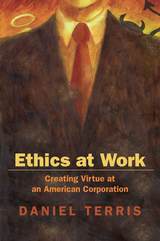 Ethics at Work: Creating Virtue at an American Corporation
Daniel Terris
Brandeis University Press, 2013 The defense industry has, to some people’s surprise, the broadest and most sustained set of ethics programs of any sector of American business today. Lockheed Martin, which specializes in a host of high-technology products and services for the federal government, has dramatically escalated its formal ethics and business conduct program since the mega-corporation was formed through a merger in 1995. The Ethics and Business Conduct Division employs 65 “ethics officers” in sites around the United States, and it requires the firm’s 130,000-plus employees to devote at least one hour per year to consideration of the ethical issues of the business, at a cost of millions of dollars per year. Daniel Terris spent two years researching Lockheed Martin materials and interviewing its ethics officers and ordinary employees to develop this rich case study of the ethics program at this powerful global corporation. This study begins with a survey of American attitudes toward ethics in business over the past century, raising the question of whether ethics can be genuinely built into the modern mega-corporation. Terris then develops a portrait of Lockheed Martin—its history and the nature of its far-flung businesses—turning at last to its ethics program, which was created following a series of bribery, overcharging, and corruption scandals in the 1970s and 1980s. By 1996, Lockheed Martin had in place some dull, preachy ethics programs designed to provide basic information on telling right from wrong in business practice. But then-CEO Norm Augustine wanted to liven things up, so he turned to an unlikely source of inspiration: the irreverent Dilbert comic strip. The company came up with a board game that resembled Clue, but used Dilbert characters to explore ethical case studies drawn from real-life Lockheed Martin incidents. Terris examines the success of the board game, as well as subsequent efforts including special workshops, a film festival, and biennial ethics surveys to engage employees in broad-based discussions of ethics at work. Although Terris applauds Lockheed Martin’s ethics program as “gloriously democratic” in its focus on the responsibility of every worker for the ethical dimensions of his or her actions, he is concerned that the broad-based focus tends to divert attention from the ethical responsibilities of senior management and the moral complexities of collective decision-making. While he admires the ambitious scope of the program, he notes that the corporation’s definition of “ethics” focuses on individual behavior rather than on the impact of the corporation’s broader policies on local, national, and global communities. The ultimate effect of such programs may be to create more ethical business practices—but, ironically, at the expense of the public good.
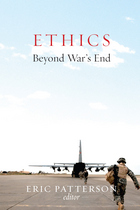 Ethics Beyond War's End
Eric Patterson, Editor
Georgetown University Press, 2015 The wars in Afghanistan and Iraq have focused new attention on a perennial problem: how to end wars well. What ethical considerations should guide war’s settlement and its aftermath? In cases of protracted conflicts, recurring war, failed or failing states, or genocide and war crimes, is there a framework for establishing an enduring peace that is pragmatic and moral? Ethics Beyond War’s End provides answers to these questions from the just war tradition. Just war thinking engages the difficult decisions of going to war and how war is fought. But from this point forward just war theory must also take into account what happens after war ends, and the critical issues that follow: establishing an enduring order, employing political forms of justice, and cultivating collective forms of conciliation. Top thinkers in the field—including Michael Walzer, Jean Bethke Elshtain, James Turner Johnson, and Brian Orend—offer powerful contributions to our understanding of the vital issues associated with late- and post conflict in tough, real-world scenarios that range from the US Civil War to contemporary quagmires in Afghanistan, the Middle East, and the Congo.
 Ethics, Business and Capitalism: Thailand and Indonesia in an Asian Perspective
Edited by Janet Hunter, Patnaree Srisuphaolarn, Pierre van der Eng, and Julia Yongue
National University of Singapore Press, 2024 Academic analysis of business ethics in Southeast Asia.
Taking cues from the Japanese concept of ethical or stakeholder capitalism, this book demonstrates how the business activities of firms in Thailand and Indonesia are guided by their perceptions of morality in society and their concerns about the environment. The authors explore the likelihood that foreign influences contributed to the development of such management philosophies, for example through the expansion of Japanese subsidiary firms in the 1980s or the spread of foreign articulations of the concept of corporate social responsibility (CSR) since the 2000s. Companies in both countries may exercise a degree of pragmatism in how they develop these activities. As the authors reveal, the perceptions of morality in business that have shaped many entrepreneurs and companies in Thailand and Indonesia are their responses to the dynamic political, social, and economic factors that have formed the business environments of both countries.
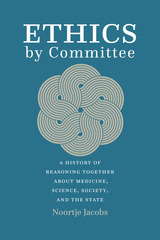 Ethics by Committee: A History of Reasoning Together about Medicine, Science, Society, and the State
Noortje Jacobs
University of Chicago Press, 2022 How liberal democracies in the late twentieth century have sought to resolve public concerns over charged issues in medicine and science.
Ethics boards have become obligatory passage points in today’s medical science, and we forget how novel they really are. The use of humans in experiments is an age-old practice that records show goes back to at least the third century BC, and it has been popular as a practice since the early modern period. Yet in most countries around the world, hardly any formal checks and balances existed to govern the communal oversight of experiments involving human subjects until at least the 1960s. Ethics by Committee traces the rise of ethics boards for human experimentation in the second half of the twentieth century.
Using the Netherlands as a case study, historian Noortje Jacobs shows how the authority of physicians to make decisions about clinical research in this period gave way in most developed nations to formal mechanisms of communal decision-making that served to regiment the behavior of individual researchers. This historically unprecedented change in scientific governance came out of the growing international wariness of medical research in the decades after World War II and was meant to solidify a new way of reasoning together in liberal democracies about medicine and science. But what reasoning together meant, and who was invited to participate, changed drastically over time. In detailing this history, Jacobs shows that research ethics committees were originally intended not only to make human experimentation more ethical but also to raise its epistemic quality and intensify the use of new clinical research methods. By examining complex negotiations over the appropriate governance of human subjects research, Ethics by Committee is an important contribution to our understanding of the randomized controlled trial and the history of research ethics and bioethics more generally.
 An Ethics Casebook for Hospitals: Practical Approaches to Everyday Cases
Mark G. Kuczewski and Rosa Lynn B. Pinkus
Georgetown University Press, 1999 This collection of thirty-one cases and commentaries addresses ethical problems commonly encountered by the average health care professional, not just those working on such high-tech specialties as organ transplants or genetic engineering. It deals with familiar issues that are rarely considered in ethics casebooks, including such fundamental matters as informed consent, patient decision-making capacity, the role of the family, and end-of-life decisions. It also provides resources for basic but neglected ethical issues involving placement decisions for elderly or technologically dependent patients, rehabilitation care, confidentiality regarding AIDS, professional responsibility, and organizational and institutional ethics. The authors describe in detail the perspectives of each party to the case, the kind of language that ethicists use to discuss the issues, and the outcome of the case. A short bibliography suggests useful articles for further reading or curriculum development. Easily understood by readers with no prior training in ethics, this book offers guidance on everyday problems from across the broad continuum of care. It will be valuable for health-care professionals, hospital ethics committees, and for students preparing for careers in health-care professions.
 An Ethics Casebook for Hospitals: Practical Approaches to Everyday Ethics Consultations, Second Edition
Mark G. Kuczewski, Rosa Lynn B. Pinkus, and Katherine Wasson
Georgetown University Press Originally published in 1999, this classic textbook includes twenty-six cases with commentary and bibliographic resources designed especially for medical students and the training of ethics consultants. The majority of the cases reflect the day-to-day moral struggles within the walls of hospitals. As a result, the cases do not focus on esoteric, high-tech dilemmas like genetic engineering or experimental protocols, but rather on fundamental problems that are pervasive in basic healthcare delivery in the United States: where to send a frail, elderly patient who refuses to go to a nursing home, what role the family should play in making a treatment decision, what a hospital should do when it is getting stuck with too many unpaid bills. This thoroughly revised and updated second edition includes thirteen new cases, five of which are designated as "skill builder" cases aimed specifically at persons who wish to conduct clinical ethics case consultations. The new cases highlight current ethical challenges that arise in caring for populations such as undocumented immigrant patients, persons with substance use disorders involving opioids, and ethical issues that arise beyond the bedside at the organizational level. The reader is invited to use the supplemental videos and assessment tools available on the website of the Loyola University Chicago ACES project (www.LUC.edu/ethicsconsult).
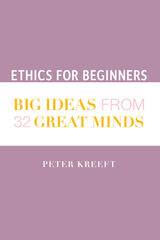 Ethics for Beginners: Big Ideas from 32 Great Minds
Peter Kreeft
St. Augustine's Press, 2019 This is not a typical ethics textbook.
Most ethics textbooks are anthologies of articles by contemporary philosophers, or a whole book by one contemporary philosopher, about ethical puzzles to be solved by logical analysis. This is good mental exercise but it will not change your life, and you will not remember it ten years from now. You will not remember a hundred bright little ideas, you will remember only a few Big Ideas, the ones that changed your life. This book is about 52 of them..
And it is by 32 great philosophers. They are all dead. (Philosophers die, but philosophy does not; it buries all its undertakers.) Living philosophers who write ethics textbooks are usually very bright, but they do not include any name we know will live for centuries. Why apprentice yourself to second rate scribblers like me when you can apprentice yourself to the greatest minds in history? Why not learn from Socrates, Buddha, Confucius, Plato, Aristotle, Kant, Kierkegaard, and Nietzsche? Why prefer little minds to big ones?
They disagree with each other, to be sure, but all of them will help you, not least those who contradict you and challenge you, and stretch you by forcing you to reply to them, and fight with them. I am appalled by the fact that 90% of the best philosophy students at the best universities, which say they cultivate "diversity," have exactly the same politically correct opinions, whether of the Left or the Right.
When you were a child your mother probably reminded you before you went out not to forget something like your lunch box or your umbrella. Ethics today is usually treated that way: as an afterthought: check with an ethicist before doing the really important things like business or law or medicine or diplomacy. But ethics is not a P.S. to life. It is about the most fundamental things in life: values, good and evil. Socrates said that a good person does not worry much about little things like whether he lives or dies, but only about big things like whether he is a good person or a bad one.
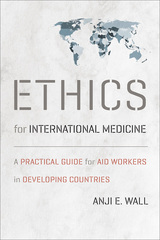 Ethics for International Medicine: A Practical Guide for Aid Workers in Developing Countries
Anji E. Wall
Dartmouth College Press, 2012 In recent years, international medicine has become a growth industry. International aid organizations, religious organizations, and medical schools all provide opportunities for health care workers to travel to developing countries to provide needed medical care to the world’s poorest citizens. Ethics for International Medicine explores the many challenges faced by these medical aid workers from the West: They serve in settings with limited medical supplies, facilities, and personnel. Their patients speak different languages, have different cultures, and may even have different interpretations of disease. With limited time in which to provide medical care to hundreds of people or more, ethical dilemmas abound, and many health care practitioners, both novice and expert, are unprepared to manage them. This volume uses a series of cases studies to provide medical aid workers with a method for identifying, analyzing, and resolving ethical issues within the context of international medicine. It is an invaluable tool for individuals and health organizations seeking to serve in developing countries throughout the world.
 Ethics for Records and Information Management
Norman A. Mooradian
American Library Association, 2018 The scope and reach of information, driven by the explosive growth of information technologies and content types, has expanded dramatically over the past 30 years. The consequences of these changes to records and information management (RIM) professionals are profound, necessitating not only specialized knowledge but added responsibilities. RIM professionals require a professional ethics to guide them in their daily practice and to form a basis for developing and implementing organizational policies, and Mooradian’s new book provides a rigorous outline of such an ethics. Taking an authoritative principles/rules based approach to the subject, this book comprehensively addresses - the structure of ethics, outlining principles, moral rules, judgements, and exceptions;
- ethical reasoning, from meaning and logic to dilemmas and decision methods;
- the ethical core of RIM, discussing key topics such as organizational context, the positive value of accountability, conflicts of interest, and confidentiality;
- important ethical concerns like copyright and intellectual property, whistleblowing, information leaks, disclosure, and privacy; and
- the relationship between RIM ethics and information governance.
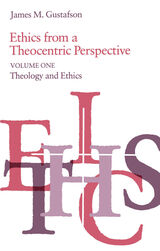 Ethics from a Theocentric Perspective, Volume 1: Theology and Ethics
James M. Gustafson
University of Chicago Press, 1983 "Ethics from a Theocentric Perspective will surprise some, shock others, and unleash a flood of speculation about what has happened to James Gustafson. The answer quite simply is nothing has happened to Gustafson except that he has now turned his attention to developing his constructive theological position, and we should all be very glad. . . . In this, the first of two volumes, Gustafson displays his colors as a constructive theologian, and they are indeed brilliant and splendid. . . . Though Gustafson is a theologian who works in the Christian tradition, he reminds us that the God Christians worship is not merely the Christian God. For Gustafson the kind of God who is the object of the theologians's reflection eludes or surpasses the inevitably confessional activity of Christian theological reflection. Thus Gustafson, the constructive theologian, is also Gustafson the revisionist theologian who takes as his task nothing less than challenging the anthropocentrism that he alleges characterizes mainstream Western Christian theology."—Stanley Hauerwas, Journal of Religion
Ethics from a Theocentric Perspective, Volume 2: Ethics and Theology
James M. Gustafson
University of Chicago Press, 1984 Gustafson's two-volume work has been hailed as a major contribution to Christian ethics. In this second volume, Gustafson considers marriage, suicide, and the allocation of resources in famine and in biomedical research to develop an ethical outlook in which divine purpose is the basis of moral activity.
"Breadth and subtlety, wisdom and insight . . . Gustafson is a first-rate theologian."—Commonweal
"The two-volume work, now complete, will be a benchmark for discussions of Christian ethics for years to come. With it Gustafson becomes one of the thinkers by whom others can, by agreement or divergence, define their own ethics."—Roger L. Shinn, Christianity and Crisis
"Gustafson's theocentrism is an original and creative contribution to modern ethical discussion."—Douglas Sturm, Ethics
Ethics in Action: Case Studies in Archaeological Dilemmas
Chip Colwell-Chanthaphonh
University Press of Colorado, 2008 Based on the Society for American Archaeology’s Annual Ethics Bowl, this SAA Press book is centered on a series of hypothetical case studies that challenge the reader to think through the complexities of archaeological ethics. The volume will benefit undergraduate and graduate students who can either use these cases as a classroom activity or as preparation for the Ethics Bowl, as well as those who are seeking to better understand the ethical predicaments that face the discipline.
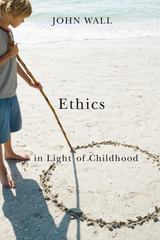 Ethics in Light of Childhood
John Wall
Georgetown University Press, 2011 Childhood faces humanity with its own deepest and most perplexing questions. An ethics that truly includes the world’s childhoods would transcend pre-modern traditional communities and modern rational autonomy with a postmodern aim of growing responsibility. It would understand human relations in a poetic rather than universalistic sense as openly and interdependently creative. As a consequence, it would produce new understandings of moral being, time, and otherness, as well as of religion, rights, narrative, families, obligation, and power. Ethics in Light of Childhood fundamentally reimagines ethical thought and practice in light of the experiences of the third of humanity who are children. Much like humanism, feminism, womanism, and environmentalism, Wall argues, a new childism is required that transforms moral thinking, relations, and societies in fundamental ways. Wall explores childhood’s varied impacts on ethical thinking throughout history, advances the emerging interdisciplinary field of childhood studies, and reexamines basic assumptions in contemporary moral theory and practice. In the process, he does not just apply ethics to childhood but applies childhood to ethics—in order to imagine a more expansive humanity.
 Ethics in Mental Health and Deafness
Virginia Gutman
Gallaudet University Press, 2002 This volume explores ethical issues specific to working with deaf clients, particularly matters of confidentiality, managing multiple relationships, and the clinician’s competency to provide services, particularly in communicating with and understanding deaf people. Led by editor Virginia Gutman, a unique assembly of respected mental health professionals share their experiences and knowledge in working with deaf clients. Irene Leigh commences Ethics in Mental Health and Deafness with her varied experiences as a deaf mental health practitioner, and Gutman follows with insights on ethics in the “small world” of the Deaf community. William McCrone discusses the law and ethics, and Patrick Brice considers ethical issues regarding deaf children, adolescents, and their families. In contrast, Janet Pray addresses concerns about deaf and hard of hearing older clients. Minority deaf populations pose additional ethical aspects, which are detailed by Carolyn Corbett. Kathleen Peoples explores the challenges of training professionals in mental health services specifically for deaf clients. Closely related to these topics is the influence of interpreters with deaf clients in mental health settings, which Lynnette Taylor thoroughly treats. Ethics and Mental Health in Deafness also features a chapter on genetic counseling and testing for deafness by Kathleen Arnos. The final section, written by Robert Pollard, examines ethical conduct in research with deaf people, a fitting conclusion to a volume that will become required reading for all professionals and students in this discipline.
 Ethics in Social Marketing
Alan R. Andreasen, Editor
Georgetown University Press, 2001 Social marketing is being adopted by a growing number of government and nonprofit organizations around the world because of its power to bring about important social changes. An array of commercial marketing concepts and techniques has been applied to problems ranging from child abuse to teen smoking to environmental neglect. However, in crafting these programs, agencies face complex ethical challenges. For example, is it acceptable to exaggerate risk and heighten fear if doing so saves more lives? What if improving the lives of one group has negative effects on another? How does a marketing campaign respect a group's culture while calling for fundamental change within it? In Ethics in Social Marketing, ten contributors draw on their professional experience and the literature of ethics to set forth a range of problems and offer frameworks for their resolution. They introduce philosophical rules and practical models to guide decision making, and they focus on such complex issues as unintended consequences, ethical marketing alliances, and professional ethical codes. The book not only introduces students to the special moral and ethical burdens of social marketing but also challenges practitioners to address difficult issues that are easily minimized or avoided.
 Ethics in the Gutter: Empathy and Historical Fiction in Comics
Kate Polak
Ohio State University Press, 2017 Ethics in the Gutter: Empathy and Historical Fiction in Comics explores an often-overlooked genre of graphic narratives: those that fictionalize historical realities. While autographics, particularly those that place the memoirist in the context of larger cultural conversations, have been the objects of sustained study, fictional graphic narratives that—as Linda Hutcheon has put it—both “enshrine and question” history are also an important area of study. By bringing narratology and psychological theory to bear on a range of graphic narratives, Kate Polak seeks to question how the form utilizes point of view and the gutter as ethical tools that shape the reader’s empathetic reactions to the content.
This book’s most important questions surround how we receive and interpret representations of history, considering the ways in which what we think we know about historical atrocities can be at odds with the convoluted circumstances surrounding violence. Beginning with a new look at Watchmen, and including examinations of such popular series as Scalped and Hellblazer as well as Bayou and Deogratias, the book questions how graphic narratives create an alternative route by which to understand large-scale violence. Ethics in the Gutter explores how graphic narrative representations of violence can teach readers about the possibilities and limitations of empathy and ethics.
 Ethics in the Public Service: The Moral Mind at Work
Charles Garofalo and Dean Geuras
Georgetown University Press, 1999 Serving the public interest with integrity requires a moral perspective that can rise above the day-to-day pressures of the job. This book integrates Western philosophy’s most significant ethical theories and merges them with public administration theory to provide public administrators with an explicit moral foundation for ethical decision making. Ethics in the Public Service reviews moral thought through the ages, from Plato to Rorty, and makes the philosophies of the more difficult thinkers accessible to both students and practitioners. Unifying seemingly disparate ethical positions, including those of Aristotle, Kant, and Mill, the authors defend the idea of objective moral truth and critique subjectivist views, refuting postmodernism and ethical relativism. Using their integrated objective approach, they tackle such dichotomies in public administration theory as bureaucracy vs. democracy, and they also examine a case study in an administrative setting. Offering a better understanding of moral dilemmas rather than a formula, this book presents scholars and practitioners with a framework that is both objective and flexible, theoretical and practical. This original synthesis provides a comprehensive basis for administrative thought and action.
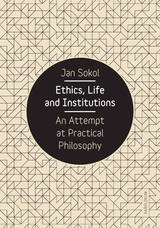 Ethics, Life and Institutions: An Attempt at Practical Philosophy
Jan Sokol
Karolinum Press, 2017 General complaints about moral decay, however frequent and even justified they may be, are of little use. This book does not complain; it acts. Jan Sokol’s Ethics, Life and Institutions applies our ever improving knowledge in various fields to questions of morality in an effort to enhance our ability to discern different moral phenomena and to discuss them more precisely.
With few exceptions, moral philosophy considers the acting person to be an autonomous, independent individual pursuing his or her own happiness. But in the context of social institutions—for example, in workplaces—it is often an organization’s goals, not an individual’s, that take precedence. In complex networks of organizations, morals take a different shape. Divided into three parts, this book begins by exploring basic notions such as freedom, life, responsibility, and justice, and their relationship to practical philosophy; looks to the main schools of Western thought in the search for a common moral foundation; and reintroduces the forgotten idea of biological and cultural heritage—an idea that could prove fundamental in addressing our responsibility not only to human lives, but also to the natural world. In a closing analysis, Sokol brings all of these moral concepts to bear on problems connected to the growing complexity of institutions, offering hope for a practical philosophy for the modern world.
 The Ethics of Aquinas
Stephen J. Pope, Editor
Georgetown University Press, 2002 In this comprehensive anthology, twenty-seven outstanding scholars from North America and Europe address every major aspect of Thomas Aquinas's understanding of morality and comment on his remarkable legacy. While there has been a revival of interest in recent years in the ethics of St. Thomas, no single work has yet fully examined the basic moral arguments and content of Aquinas' major moral work, the Second Part of the Summa Theologiae. This work fills that lacuna. The first chapters of The Ethics of Aquinas introduce readers to the sources, methods, and major themes of Aquinas's ethics. The second part of the book provides an extended discussion of ideas in the Second Part of the Summa Theologiae, in which contributors present cogent interpretations of the structure, major arguments, and themes of each of the treatises. The third and final part examines aspects of Thomistic ethics in the twentieth century and beyond. These essays reflect a diverse group of scholars representing a variety of intellectual perspectives. Contributors span numerous fields of study, including intellectual history, medieval studies, moral philosophy, religious ethics, and moral theology. This remarkable variety underscores how interpretations of Thomas's ethics continue to develop and evolve—and stimulate fervent discussion within the academy and the church. This volume is aimed at scholars, students, clergy, and all those who continue to find Aquinas a rich source of moral insight.
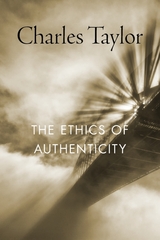 The Ethics of Authenticity
Charles Taylor
Harvard University Press, 1992 “Charles Taylor is a philosopher of broad reach and many talents, but his most striking talent is a gift for interpreting different traditions, cultures and philosophies to one another…[This book is] full of good things.” —New York Times Book Review
Everywhere we hear talk of decline, of a world that was better once, maybe fifty years ago, maybe centuries ago, but certainly before modernity drew us along its dubious path. While some lament the slide of Western culture into relativism and nihilism and others celebrate the trend as a liberating sort of progress, Charles Taylor calls on us to face the moral and political crises of our time, and to make the most of modernity’s challenges.
“The great merit of Taylor’s brief, non-technical, powerful book…is the vigor with which he restates the point which Hegel (and later Dewey) urged against Rousseau and Kant: that we are only individuals in so far as we are social…Being authentic, being faithful to ourselves, is being faithful to something which was produced in collaboration with a lot of other people…The core of Taylor’s argument is a vigorous and entirely successful criticism of two intertwined bad ideas: that you are wonderful just because you are you, and that ‘respect for difference’ requires you to respect every human being, and every human culture—no matter how vicious or stupid.”
—Richard Rorty, London Review of Books
 The Ethics of Autobiography: Replacing the Subject in Modern Spain
Angel G. Loureiro
Vanderbilt University Press, 2000 In this new book, Angel Loureiro proposes an ethics of autobiography that will change the way the genre is perceived. Previous studies of autobiography have focused primarily on the strategies of self-knowledge or self-creation displayed in writing about self. This emphasis on cognition leaves many unanswered questions, Loureiro asserts, because a fundamental dimension of the genre, what he calls the ethics of autobiography, has escaped critical attention up to now. To address this oversight, Loureiro draws from his own experiences as well as from a wide range of previous theoretical works on autobiography, especially from the writings of Emmanuel Levinas, who believed that the self does not begin as a self-positing consciousness but as a response to an address from the other. On this basis, Loureiro then brilliantly traces the complex interplays between the political, discursive, rhetorical, and ethical dimensions of autobiography. After laying out these theoretical foundations, Loureiro puts them to work in analyzing four of the most fascinating autobiographies written by Spanish exiles: The Life of Joseph Blanco White, who lived from 1775 to 1841, Memoria de la Melancolia by Maria Teresa Leon (1904-1988), Coto vedado and En los reinos de taifa by Juan Goytisolo (born 1931), and Literature or Life by Jorge Semprun (born 1923). The lives of these authors, all of whom were exiled for political reasons, were disrupted by some of the most crucial events in Spain's tortuous road to modernity and democracy. The book closes with a discussion of why there have been so few critical examinations of autobiographies written in modern Spain. Loureiro proposes that, even in today's Spain, stifling social and political forces smother ethical responsibility, which is an essential ingredient in creating autobiographies that dare to be more than a humdrum inventory of personal recollections. Only in exile have Spanish authors seemed able to find the conditions to write their lives in a truly responsible manner. This answer to a call that grounds the subject in an other is ultimately the only form of truth available in autobiography.
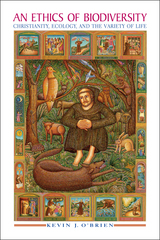 An Ethics of Biodiversity: Christianity, Ecology, and the Variety of Life
Kevin J. O'Brien
Georgetown University Press, 2010 Life on earth is wildly diverse, but the future of that diversity is now in question. Through environmentally destructive farming practices, ever-expanding energy use, and the development and homogenization of land, human beings are responsible for unprecedented reductions in the variety of life forms around us. Estimates suggest that species extinctions caused by humans occur at up to 1,000 times the natural rate, and that one of every twenty species on the planet could be eradicated by 2060. An Ethics of Biodiversity argues that these facts should inspire careful reflection and action in Christian churches, which must learn from earth’s vast diversity in order to help conserve the natural and social diversity of our planet. Bringing scientific data into conversation with theological tradition, the book shows that biodiversity is a point of intersection between faith and ethics, social justice and environmentalism, science and politics, global problems and local solutions. An Ethics of Biodiversity offers a set of tools for students, environmentalists, and people of faith to think critically about how human beings can live with and as part of the variety of life in God’s creation.
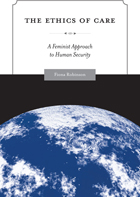 The Ethics of Care: A Feminist Approach to Human Security
Fiona Robinson
Temple University Press, 2011 In The Ethics of Care, Fiona Robinson demonstrates how the responsibilities of sustaining life are central to the struggle for basic human security. She takes a unique approach, using a feminist lens to challenge gender biases in rights-based, individualist approaches.Robinson's thorough and impassioned consideration of care in both ethical and practical terms provides a starting point for understanding and addressing the material, emotional and psychological conditions that create insecurity for people. The Ethics of Careexamines “care ethics” and “security” at the theoretical level and explores the practical implications of care relations for security in a variety of contexts: women's labor in the global economy, humanitarian intervention and peace building, healthcare, and childcare. Theoretically-innovative and policy-relevant, this critical analysis demonstrates the need to understand the obstacles and inequalities that obstruct the equitable and adequate delivery of care around the world.
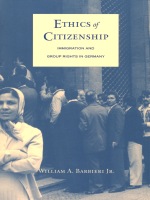 Ethics of Citizenship: Immigration and Group Rights in Germany
William A. Barbieri Jr.
Duke University Press, 1998 Who is to be included in a political community and on what terms? William A. Barbieri Jr. seeks answers to these questions in this exploration of the controversial concept of citizenship rights—a concept directly related to the nature of democracy, equality, and cultural identity. Through an examination of the case of Germany’s settled “guestworkers” and their families, Ethics of Citizenship investigates the pressing problem of political membership in a world marked by increased migration, rising nationalist sentiment, and the ongoing reorganization of states through both peaceful and violent means.
Although some of Germany’s foreign workers have gradually attained a degree of social and economic legitimacy, Barbieri explains how they remain effectively excluded from true German citizenship. Describing how this exclusion has occurred and assessing current attitudes toward political membership in Germany, he argues for a just and democratic policy toward the tax-paying, migrant worker minority, one that would combine the extension of the individual rights of citizenship with the establishment of certain group rights. Through a dissection of ongoing public “membership debates” over issues such as suffrage, dual citizenship, and immigration and refugee policy, Barbieri identifies a range of competing responses to the question of who “belongs” in Germany. After critiquing these views, he proposes an alternative ethic of membership rooted in an account of domination and human rights that seeks to balance individual and group rights within the context of a commitment to democracy and equal citizenship.
Indispensable for scholars of German studies, Ethics of Citizenship also raises questions that will attract moral philosophers, constitutional scholars, and those interested in the continuing, global problems associated with migration.
Ethics of Coercion and Authority: A Philosophical Study of Social Life
Timo Airaksinen
University of Pittsburgh Press, 1988 “The work would be of great value to philosophers engaged in the conceptual analysis of coercion, to political scientists studying the state or other coercive institutions, and to advanced readers interested in the field of peace research.”—Choice
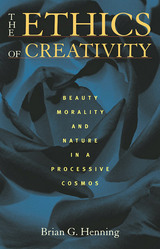 The Ethics of Creativity: Beauty, Morality, and Nature in a Processive Cosmos
Brian G. Henning
University of Pittsburgh Press, 2014
A central concern of nearly every environmental ethic is its desire to extend the scope of direct moral concern beyond human beings to plants, nonhuman animals, and the systems of which they are a part. Although nearly all environmental philosophies have long since rejected modernity’s conception of individuals as isolated and independent substances, few have replaced this worldview with an alternative that is adequate to the organic, processive world in which we find ourselves. In this context, Brian G. Henning argues that the often overlooked work of Alfred North Whitehead has the potential to make a significant contribution to environmental ethics. Additionally inspired by classical American philosophers such as William James, John Dewey and Charles Sanders Pierce and environmental philosophers such as Aldo Leopold, Peter Singer, Albert Schweitzer, and Arne Naess, Henning develops an ethical theory of which the seminal insight is called “The Ethics of Creativity.”
By systematically examining and developing a conception of individuality that is equally at home with the microscopic world of subatomic events and the macroscopic world of ecosystems, The Ethics of Creativity correctly emphasizes the well-being of wholes, while not losing sight of the importance of the unique centers of value that constitute these wholes. In this way, The Ethics of Creativity has the potential to be a unique voice in contemporary moral philosophy.
The Ethics of Determining One’s Own Death: Essays on Den Hartogh’s What Kind of Death
Gijs van Donselaar
Amsterdam University Press, 2025 This collection brings together key contributions on the ethics of end-of-life decisions, inspired by the publication of What Kind of Death: The Ethics of Determining One’s Own Death, a new standard work by professor Govert den Hartogh. The topics covered reflect the book's comprehensive approach, with its central themes explored by ethicists, legal experts, and medical professionals. The various contributions offer a thorough examination of the major steps in Den Hartogh’s 'dual track approach'. This collection serves as a valuable supplement to the book and an important contribution to the ongoing debate about patient self-determination and well-being as foundational values in the ethics of determining one’s own death.
 The Ethics of Discourse: The Social Philosophy of John Courtney Murray
J. Leon Hooper, SJ
Georgetown University Press, 1986 The republication of We Hold These Truths is but one indication of the continuing importance of the thought of John Courtney Murray for the Catholic Church in the United States. More than any other American theologian in this century, Fr. Murray developed a new understanding of the healthy relationship between religion and politics, church and state, in a democratic context. Until now, however, the evolution of Murray's own thought in these matters has not been fully understood. Beginning with Murray's first forays into the public arena in the 1940s, Leon Hooper carefully plots Murray's movement away from the classical concepts of conscience and rights toward a more historical understanding of moral agency and of the church's necessary engagement with a pluralistic world. Along the way, Fr. Hooper reveals in detail for the first time the importance of Bernard Lonergan's thought in moving Murray toward and then beyond his vital contribution to Vatican II's Declaration on Religious Liberty.
 The Ethics of Earth Art
Amanda Boetzkes
University of Minnesota Press, 2010 Since its inception in the 1960s, the earth art movement has sought to make visible the elusive presence of nature. Though most often associated with monumental land-based sculptures, earth art encompasses a wide range of media, from sculpture, body art performances, and installations to photographic interventions, public protest art, and community projects. In The Ethics of Earth Art, Amanda Boetzkes analyzes the development of the earth art movement, arguing that such diverse artists as Robert Smithson, Ana Mendieta, James Turrell, Jackie Brookner, Olafur Eliasson, Basia Irland, and Ichi Ikeda are connected through their elucidation of the earth as a domain of ethical concern. Boetzkes contends that in basing their works’ relationship to the natural world on receptivity rather than representation, earth artists take an ethical stance that counters both the instrumental view that seeks to master nature and the Romantic view that posits a return to a mythical state of unencumbered continuity with nature. By incorporating receptive surfaces into their work—film footage of glaring sunlight, an aperture in a chamber that opens to the sky, or a porous armature on which vegetation grows—earth artists articulate the dilemma of representation that nature presents. Revealing the fundamental difference between the human world and the earth, Boetzkes shows that earth art mediates the sensations of nature while allowing nature itself to remain irreducible to human signification.
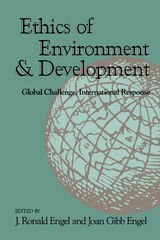 Ethics of Environment and Development: Global Challenge, International Response
J. Ronald Engel
University of Arizona Press, 1990 How can we make ethical decisions about our environment in the face of increasingly conflicting needs and opinions? This collection of essays offers a wide range of viewpoints representing many of the world's cultural and religious traditions to help readers better make such determinations for themselves. The authors seek to clarify the ethical principles surrounding the concept of "sustainable development." They provide a synoptic overview of the contemporary moral challenge of sustainable development and the similarities and differences in its interpretation throughout the world. In bringing together contributions by authorities in environmental ethics and developmental ethics, and by those who are addressing these questions from the perspectives of religion and humanistic philosophy, the book develops the concept of sustainability as the ethical approach to reconciling the needs of environmental conservation with economic development.
 Ethics of Health Care: An Introductory Textbook, Third Edition
Benedict M. Ashley, OP, and Kevin D. O'Rourke, OP
Georgetown University Press, 2002 In the wake of the successful cloning of animals and the promises—or fears—of stem cell research, new discoveries in science and medicine need more than ever to be accompanied by careful moral reflection. Contending that concern over the ethical dimensions of these and other like issues are no longer just in the domain of those involved in medical practice, the third edition of Ethics of Health Care claims these are vital topics that should matter deeply to all citizens. While stressing the Catholic tradition in health care ethics, Ethics of Health Care is ecumenical, incorporating a broader Christian tradition as well as humanistic approaches, and takes as common ground for mutual understanding the Universal Declaration of Human Rights of the United Nations. This new third edition is a response to the many developments in theology and the startlingly rapid changes in the arenas of medicine and health care over the past decade, from the dominance of managed care to increased surgery on an "outpatient" basis; from hospice care for the dying to the increasing use of drugs in the treatment of mental illness. Revised and thoroughly up-to-date, this third edition continues with its valuable teaching aids, including case studies, study questions, chapter summaries, a bibliography, and complete index.
The Ethics of History
John McCumber
Northwestern University Press, 2004 What is implied by "ethics of history"? The authors of this volume, internationally renowned philosophers and intellectual historians, address this question in all its novelty and ambiguity and develop varied perspectives on the place and nature of ethics in the philosophy, enterprise, and practice of history. Is the whole historical process--largely consisting of the actions and sufferings of persons and groups--subject to ethical constraint? And what of the ways in which historians present their subject matter; are these methods subject to moral scrutiny? Although they approach these issues from different directions, the contributors agree in their critique of the correspondence theory of history, tin their acceptance of an unbridgeable gap between the past and the historian's present account, and in their call for a revision of the popular appeal to historical objectivity.
 The Ethics of Hospital Trustees
Bruce Jennings, Bradford H. Gray, Virginia A. Sharpe, and Alan R. Fleischman, Editors
Georgetown University Press, 2004 All manner of medical practitioners have had their scruples dissected ad infinitum. In spite of the attention paid to medical ethics and bioethics, little has been paid to the ethical roles and responsibilities of those who are ultimately in charge of hospital governance: hospital trustees. Deriving from a Hastings Center research project involving meetings with a national task force of experts and extensive interviews with 98 nonprofit hospital trustees and CEOs over a two-year period, The Ethics of Hospital Trustees shows that the decisions made by these often overlooked members of the health community do raise important ethical issues, and that ethical dimensions of trustee service should be more explicitly recognized and discussed. Practical as well as theoretical, The Ethics of Hospital Trustees uncovers four basic principles: 1. Fidelity to mission; 2. Service to patients; 3. Service to the community; and 4. Institutional stewardship. In delineating the extremely important functions of hospital trustees, from patient safety to financial responsibility, the contributors outline not only how hospital trustees do perform—they give a fresh understanding to how they should perform as well.
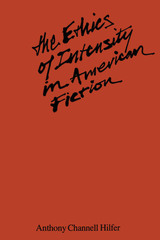 The Ethics of Intensity in American Fiction
By Anthony Channell Hilfer
University of Texas Press, 1981 Drawing upon the philosophical theories of William James, Dewey, and Mead and focusing upon major works by Whitman, Stein, Howells, Dreiser, and Henry James, Anthony Hilfer explores how these authors have structured their characters' consciousness, their purpose in doing so, and how this presentation controls the reader's moral response.
Hilfer contends that there was a significant change in the mode of character presentation in American literature of the late nineteenth and early twentieth centuries. The self defined in terms of a Victorian ethic and judged adversely for its departures from that code shifted to the self defined in terms of emotional intensity and judged adversely for its failures of nerve. In the first mode, characters are almost always wrong to yield to desire; in the second, characters are frequently wrong not to and, in fact, are seen less as the sum of their ethical choices than as the process of their longings. His conclusion: modern fiction is as overbalanced toward pathos as Victorian fiction was toward ethos. but the continued dialectic between the two is a tension that ought not be resolved.
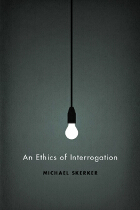 An Ethics of Interrogation
Michael Skerker
University of Chicago Press, 2010 The act of interrogation, and the debate over its use, pervades our culture, whether through fictionalized depictions in movies and television or discussions of real-life interrogations on the news. But despite daily mentions of the practice in the media, there is a lack of informed commentary on its moral implications. Moving beyond the narrow focus on torture that has characterized most work on the subject, An Ethics of Interrogation is the first book to fully address this complex issue. In this important new examination of a controversial subject, Michael Skerker confronts a host of philosophical and legal issues, from the right to privacy and the privilege against compelled self-incrimination to prisoner rights and the legal consequences of different modes of interrogation for both domestic criminal and foreign terror suspects. These topics raise serious questions about the morality of keeping secrets as well as the rights of suspected terrorists and insurgents. Thoughtful consideration of these subjects leads Skerker to specific policy recommendations for law enforcement, military, and intelligence professionals.
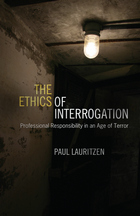 The Ethics of Interrogation: Professional Responsibility in an Age of Terror
Paul Lauritzen
Georgetown University Press, 2016 Can harsh interrogation techniques and torture ever be morally justified for a nation at war or under the threat of imminent attack? In the aftermath of the September 11, 2001, terrorist strikes, the United States and other liberal democracies were forced to grapple once again with the issue of balancing national security concerns against the protection of individual civil and political rights. This question was particularly poignant when US forces took prisoners in Afghanistan and Iraq who arguably had information about additional attacks. In this volume, ethicist Paul Lauritzen takes on ethical debates about counterterrorism techniques that are increasingly central to US foreign policy and discusses the ramifications for the future of interrogation. Lauritzen examines how doctors, lawyers, psychologists, military officers, and other professionals addressed the issue of the appropriate limits in interrogating detainees. In the case of each of these professions, a vigorous debate ensued about whether the interrogation policy developed by the Bush administration violated codes of ethics governing professional practice. These codes are critical, according to Lauritzen, because they provide resources for democracies and professionals seeking to balance concerns about safety with civil liberties, while also shaping the character of those within these professional guilds. This volume argues that some of the techniques used at Guantánamo Bay and elsewhere were morally impermissible; nevertheless, the healthy debates that raged among professionals provide hope that we may safeguard human rights and the rule of law more effectively in the future.
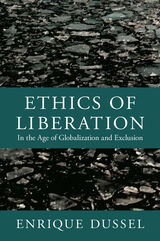 Ethics of Liberation: In the Age of Globalization and Exclusion
Enrique Dussel
Duke University Press, 2012 Available in English for the first time, this much-anticipated translation of Enrique Dussel's Ethics of Liberation marks a milestone in ethical discourse. Dussel is one of the world's foremost philosophers. This treatise, originally published in 1998, is his masterwork and a cornerstone of the philosophy of liberation, which he helped to found and develop. Throughout his career, Dussel has sought to open a space for articulating new possibilities for humanity out of, and in light of, the suffering, dignity, and creative drive of those who have been excluded from Western Modernity and neoliberal rationalism. Grounded in engagement with the oppressed, his thinking has figured prominently in philosophy, political theory, and liberation movements around the world. In Ethics of Liberation, Dussel provides a comprehensive world history of ethics, demonstrating that our most fundamental moral and ethical traditions did not emerge in ancient Greece and develop through modern European and North American thought. The obscured and ignored origins of Modernity lie outside the Western tradition. Ethics of Liberation is a monumental rethinking of the history, origins, and aims of ethics. It is a critical reorientation of ethical theory.
Ethics of Life: Contemporary Iberian Debates
Katarzyna Beilin
Vanderbilt University Press, 2016 The contributors ask the following questions:
• What are the different rhetorical strategies employed by writers, artists, filmmakers, and activists to react to the degradation of life and climate change?
• How are urban movements using environmental issues to resist corporate privatization of the commons?
• What is the shape of Spanish debates on reproductive rights and biotechnology?
• What is the symbolic significance of the bullfighting debate and other human/animal issues in today's political turmoil in Spain?
Hispanic Issues Series
Nicholas Spadaccini, Editor-in-Chief
Hispanic Issues Online
hispanicissues.umn.edu/online_main.html
 The Ethics of Lobbying: Organized Interests, Political Power, and the Common Good
Woodstock Theological Center
Georgetown University Press, 2002 Woodstock launched this project on lobbying in 1998 for three reasons. First, lobbying has grown exponentially during the past twenty years to exercise enormous influence on American politics. It has almost become a new profession in that time, and therefore deserves a new review and evaluation. Second, lobbying has simultaneously fallen under suspicion and engendered critical resentment in some quarters. Its critics would say it supports "special" (i.e. narrow and well-funded) interests and is oblivious to the general well-being of our democratic life and process. Third, reputable lobbyists have called, therefore, for a clarification of standards and principles for use within their own ranks and as an explanation to the general public of the goals, objectives, and methods of lobbying to forestall misunderstanding and misjudgment. This clarification would provide the lobbying profession with a normative statement parallel to the codes of conduct and ethical practice of the American Medical Association and the American Bar Association.
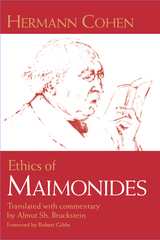 Ethics of Maimonides
Hermann Cohen, Translated by Almut Sh. Bruckstein
University of Wisconsin Press, 2004 Hermann Cohen’s essay on Maimonides’ ethics is one of the most fundamental texts of twentieth-century Jewish philosophy, correlating Platonic, prophetic, Maimonidean, and Kantian traditions. Almut Sh. Bruckstein provides the first English translation and her own extensive commentary on this landmark 1908 work, which inspired readings of medieval and rabbinic sources by Leo Strauss, Franz Rosenzweig, and Emmanuel Levinas.
Cohen rejects the notion that we should try to understand texts of the past solely in the context of their own historical era. Subverting the historical order, he interprets the ethical meanings of texts in the light of a future yet to be realized. He commits the entire Jewish tradition to a universal socialism prophetically inspired by ideals of humanity, peace, and universal justice.
Through her own probing commentary on Cohen’s text, like the margin notes of a medieval treatise, Bruckstein performs the hermeneutical act that lies at the core of Cohen’s argument: she reads Jewish sources from a perspective that recognizes the interpretive act of commentary itself.
 The Ethics of Memory
Avishai Margalit
Harvard University Press, 2002 Much of the intense current interest in collective memory concerns the politics of memory. In a book that asks, "Is there an ethics of memory?" Avishai Margalit addresses a separate, perhaps more pressing, set of concerns.
The idea he pursues is that the past, connecting people to each other, makes possible the kinds of "thick" relations we can call truly ethical. Thick relations, he argues, are those that we have with family and friends, lovers and neighbors, our tribe and our nation--and they are all dependent on shared memories. But we also have "thin" relations with total strangers, people with whom we have nothing in common except our common humanity. A central idea of the ethics of memory is that when radical evil attacks our shared humanity, we ought as human beings to remember the victims.
Margalit's work offers a philosophy for our time, when, in the wake of overwhelming atrocities, memory can seem more crippling than liberating, a force more for revenge than for reconciliation. Morally powerful, deeply learned, and elegantly written, The Ethics of Memory draws on the resources of millennia of Western philosophy and religion to provide us with healing ideas that will engage all of us who care about the nature of our relations to others.
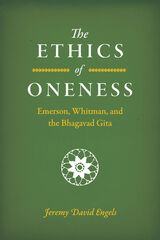 The Ethics of Oneness: Emerson, Whitman, and the Bhagavad Gita
Jeremy David Engels
University of Chicago Press, 2021 We live in an era defined by a sense of separation, even in the midst of networked connectivity. As cultural climates sour and divisive political structures spread, we are left wondering about our ties to each other. Consequently, there is no better time than now to reconsider ideas of unity.
In The Ethics of Oneness, Jeremy David Engels reads the Bhagavad Gita alongside the works of American thinkers Ralph Waldo Emerson and Walt Whitman. Drawing on this rich combination of traditions, Engels presents the notion that individuals are fundamentally interconnected in their shared divinity. In other words, everything is one. If the lessons of oneness are taken to heart, particularly as they were expressed and celebrated by Whitman, and the ethical challenges of oneness considered seriously, Engels thinks it is possible to counter the pervasive and problematic American ideals of hierarchy, exclusion, violence, and domination.
The Ethics of Organ Transplantation
Steven J. Jensen
Catholic University of America Press, 2011 These questions and others are thoughtfully probed in this collection of essays, which features articles from theologians, philosophers, physicians, biomedical ethicists, and an attorney.
 The Ethics of Our Climate: Hermeneutics and Ethical Theory
William O'Neill, SJ
Georgetown University Press, 1994 In this book, William O'Neill, SJ, offers an interpretation of the nature and scope of practical reasoning in light of postmodern philosophical criticism. He charts a via media between the abstract formalism of neo-Kantian morality and relativist interpretations of neo-Aristotelian ethics. The three parts of the book treat the eclipse of the classical Aristotelian conception of practical reason; the Kantian heritage in the modern moral theories of John Rawls and R.M. Hare; and the hermeneutical retrieval of a moral interpretation of the world. Drawing upon the philosophical hermeneutics of Hans-Georg Gadamer, modern analytical philosophy, and the discourse ethics of Jürgen Habermas, O'Neill offers a critical reconstruction of practical reason which upholds the primacy of moral community while recognizing the ethical import of historical and cultural difference. The final chapter applies the preceding hermeneutical critique to the question of the distinctiveness of Christian ethics in the writings of Karl Barth, Hans Urs von Balthasar, Josef Fuchs, and Bruno Schüller. This original contribution will be of special interest to students and teachers of moral philosophy and theology.
 The Ethics of Persuasion: Derrida's Rhetorical Legacies
Brooke Rollins
Ohio State University Press, 2020 In The Ethics of Persuasion: Derrida’s Rhetorical Legacies, Brooke Rollins argues that some of the most forceful and utilitarian examples of persuasion involve significant ethical dimensions. Using the work of Jacques Derrida, she draws this ethical imperative out from a series of canonical rhetorical texts that have traditionally been understood as insistent or even guileful instances of persuasion. Her reconsideration of highly determined pieces by Gorgias, Lysias, Isocrates, and Plato encourages readers to inherit the rhetorical tradition differently, and it pinpoints the important rhetorical dimensions of Derrida’s own work.
Drawing on Derrida’s (non)definition of ethics and his pointed accounts of performativity, Rollins argues that this vital ethical component of many ancient theories, practices, and pedagogies of persuasion has been undertheorized for more than two millennia. Through deconstructive readings of some of these texts, she shows us that we are not simply sovereign beings who both wield and guard against linguistic techniques of rule. Our persuasive endeavors, rather, are made possible by an ethics—an always prior encounter with otherness that interrupts self-presence.
The Ethics of Postmodernity: Current Trends in Continental Thought
Gary B. Madison and Marty Fairbarn
Northwestern University Press, 1997 In The Ethics of Postmodernity, Gary B. Madison and Marty Fairbairn have collected instructive and illuminating essays that address the dilemmas left in the wake of the postmodern attack on foundationalism. This collection is a powerful statement on the many directions a postmetaphysical ethics might take.
Contributors include Barry Allen, Caroline Bayard, Robert Bernasconi, Thomas W. Busch, M.C. Dillon, Marty Fairbairn, Paul Fairfield, Morny Joy, Richard Kearney, Gary B. Madison, Joseph Margolis, Tom Rockmore, Charles E. Scott, Evan Simpson, and Mark Williams.
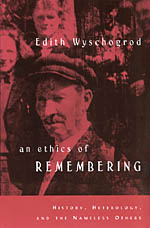 An Ethics of Remembering: History, Heterology, and the Nameless Others
Edith Wyschogrod
University of Chicago Press, 1998 What are the ethical responsibilities of the historian in an age of mass murder and hyperreality? Can one be postmodern and still write history? For whom should history be written?
Edith Wyschogrod animates such questions through the passionate figure of the "heterological historian." Realizing the philosophical impossibility of ever recovering "what really happened," this historian nevertheless acknowledges a moral imperative to speak for those who have been rendered voiceless, to give countenance to those who have become faceless, and hope to the desolate. Wyschogrod also weighs the impact of modern archival methods, such as photographs, film, and the Internet, which bring with them new constraints on the writing of history and which mandate a new vision of community. Drawing on the works of continental philosophers, historiographers, cognitive scientists, and filmmakers, Wyschogrod creates a powerful new framework for the understanding of history and the ethical duties of the historian.
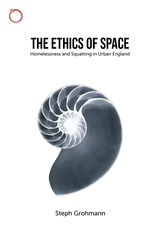 The Ethics of Space: Homelessness and Squatting in Urban England
Steph Grohmann
HAU, 2020 Across the Western world, full membership of society is established through entitlements to space and formalized in the institutions of property and citizenship. Those without such entitlements are deemed less than fully human as they struggle to find a place where they can symbolically and physically exist. Written by an anthropologist who accidentally found herself homeless, The Ethics of Space is an unprecedented account of what happens when homeless people organize to occupy abandoned properties.
Set against the backdrop of economic crisis, austerity, and a disintegrating British state, Steph Grohmann tells the story of a flourishing squatter community in the city of Bristol and how it was eventually outlawed by the state. The first ethnography of homelessness done by a researcher who was formally homeless throughout fieldwork, this volume explores the intersection between spatial existence, subjectivity, and ethics. The result is a book that rethinks how ethical views are shaped and constructed through our own spatial existences.
The Ethics of St. Thomas Aquinas: Happiness, Natural Law, and the Virtues
Leo Elders
Catholic University of America Press, 2019 "Elders brings to his study an almost encyclopedic knowledge of the history of philosophy. Although he advises his readers not to look for any novel interpretations of Thomas, the book is full of surprises. Time and again, he offers a concise history of the moral issue under consideration...A more authoritative introduction to the moral philosophy of Aquinas is not likely to be found. In fact, it is a delight to read." - Philosophy in Review
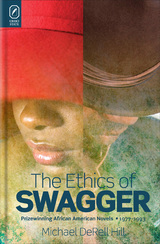 The Ethics of Swagger: Prizewinning African American Novels, 1977–1993
Michael DeRell Hill
Ohio State University Press, 2013 After World War II and well beyond the Black Arts Movement, African American novelists struggled with white literary expectations imposed upon them. Aesthetics as varied as New Criticism and Deconstruction fueled these struggles, and black writers—facing these struggles— experienced an ethical crisis. Analyzing prizewinning, creative fellowship, and artistic style, this book considers what factors ended that crisis. The Ethics of Swagger explores how novelists who won major prizes between 1977 and 1993 helped move authors of black fiction through insecurity toward autonomy. Identifying these prizewinners—David Bradley, Ernest Gaines, Charles Johnson, Toni Morrison, Gloria Naylor, Alice Walker, and John Edgar Wideman—as a literary class, this book focuses on how they achieved imaginative freedom, recovered black literary traditions, and advanced the academic study of African American writing. The post–Civil Rights era produced the most accomplished group of novelists in black literary history. As these authors worked in an integrating society, they subjected white narrative techniques to the golden mean of black cultural mores. This exposure compelled the mainstream to acknowledge fresh talent and prodded American society to honor its democratic convictions. Shaping national dialogues about merit, award-winning novelists from 1977 to 1993, the Black Archivists, used swagger to alter the options for black art and citizenship.
 The Ethics of War and Peace Revisited: Moral Challenges in an Era of Contested and Fragmented Sovereignty
Daniel R. Brunstetter and Jean-Vincent Holeindre, Editors
Georgetown University Press How do we frame decisions to use or abstain from military force? Who should do the killing? Do we need new paradigms to guide the use of force? And what does “victory” mean in contemporary conflict? In many ways, these are timeless questions. But they should be revisited in light of changing circumstances in the twenty-first century. The post–Cold War, post-9/11 world is one of contested and fragmented sovereignty: contested because the norm of territorial integrity has shed some of its absolute nature, fragmented because some states do not control all of their territory and cannot defeat violent groups operating within their borders. Humanitarian intervention, preventive war, and just war are all framing mechanisms aimed at convincing domestic and international audiences to go to war—or not, as well as to decide who is justified in legally and ethically killing. The international group of scholars assembled in this book critically examine these frameworks to ask if they are flawed, and if so, how they can be improved. Finally, the volume contemplates what all the killing and dying is for if victory ultimately proves elusive.
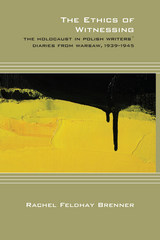 The Ethics of Witnessing: The Holocaust in Polish Writers' Diaries from Warsaw, 1939-1945
Rachel Feldhay Brenner
Northwestern University Press, 2014 Winner, 2015 USC Book Award in Literary and Cultural Studies, for outstanding monograph published on Russia, Eastern Europe or Eurasia in the fields of literary and cultural studies
The Ethics of Witnessing investigates the reactions of five important Polish diaristswriters—Jaroslaw Iwaszkiewicz, Maria Dabrowska, Aurelia Wylezynska, Zofia Nalkowska, and Stanislaw Rembek—during the period when the Nazis persecuted and murdered Warsaw’s Jewish population. The responses to the Holocaust of these prominent prewar authors extended from insistence on empathic interaction with victims to resentful detachment from Jewish suffering. Whereas some defied the dehumanization of the Jews and endeavored to maintain intersubjective relationships with the victims they attempted to rescue, others selfdeceptively evaded the Jewish plight. The Ethics of Witnessing examines the extent to which ideologies of humanism and nationalism informed the diarists’ perceptions, proposing that the reality of the Final Solution exposed the limits of both orientations and ultimately destroyed the ethical landscape shaped by the Enlightenment tradition, which promised the equality and fellowship of all human beings.
Ethics or the Right Thing?: Corruption and Care in the Age of Good Governance
Sylvia Tidey
HAU, 2021 A sympathetic examination of the failure of anti-corruption efforts in contemporary Indonesia.
Combining ethnographic fieldwork in the city of Kupang with an acute historical sensibility, Sylvia Tidey shows how good governance initiatives paradoxically perpetuate civil service corruption while also facilitating the emergence of new forms of it. Importing critical insights from the anthropology of ethics to the burgeoning anthropology of corruption, Tidey exposes enduring developmentalist fallacies that treat corruption as endemic to non-Western subjects. In practice, it is often indistinguishable from the ethics of care and exchange, as Indonesian civil servants make worthwhile lives for themselves and their families. This book will be a vital text for anthropologists and other social scientists, particularly scholars of global studies, development studies, and Southeast Asia.
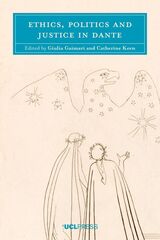 Ethics, Politics and Justice in Dante
Edited by Giulia Gaimari and Catherine Keen
University College London, 2019 While Dante Alighieri’s writings engaged with the culture of medieval Florence and Italy, his moral and political thought still speaks compellingly to modern readers today.
Bringing together an international and interdisciplinary group of contributors, ranging across history, philology, classical studies, philosophy, and theology, Ethics, Politics and Justice in Dante presents new research on ethics, politics, and justice in the works of Dante Alighieri, including chapters on Dante’s conception of the afterlife. Contributors scrutinize the Divine Comedy and Dante’s other works in Italian and Latin, showing the evolution of his thought throughout his writing career, with chapters focusing especially on his early philosophical Convivio and on the two “Eclogues” of his final years. Other chapters tackle themes relating to judgment, justice, rhetoric, and literary ethics in the Divine Comedy, as well as the differing public reception and use of Dante’s work in Italy and Britain.
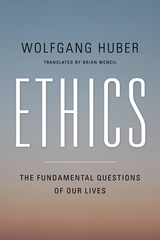 Ethics: The Fundamental Questions of Our Lives
Wolfgang Huber. Translated by Brian McNeil
Georgetown University Press, 2014 In the twenty-first century the basic questions of ethics are no longer the abstract terms of ethical theory, but the concrete and burning issues related to the influence of life sciences, the impact of a globalized economy, and the consequences of present decisions for the future of humankind. Ethics: The Fundamental Questions of Our Lives analyzes twenty ethical issues that address education and culture, labor and economy, the environment and sustainability, democracy and cosmopolitanism, peace and war, and life and death. Each chapter describes a concrete example showing the relevance of the fundamental ethical question, then provides an explanation of how one can think through possible responses and reactions. Huber emphasizes the connections between personal, professional, and institutional ethics and demonstrates how human relationships lie at the center of our ethical lives. His aim is to articulate a theology of what he calls "responsible freedom" that transcends individualistic self-realization and includes communal obligations.
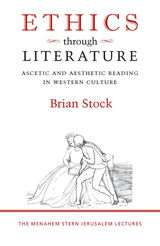 Ethics through Literature: Ascetic and Aesthetic Reading in Western Culture
Brian Stock
Brandeis University Press, 2008 Why do we read? Drawing from a series of lectures delivered at the Historical Society of Israel in 2005, Brian Stock presents a model for relating ascetic and aesthetic principles in Western reading practices. He begins by establishing the primacy of the ethical objective in the ascetic approach to literature in Western classical thought from Plato to Augustine. This is understood in contrast to the aesthetic appreciation of literature that finds pleasure in the reading of the text in and of itself. Examples of this long-standing tension as displayed in a literary topos, first outlined in these lectures, which describes “scenes of reading,” are found in the works of Peter Abelard, Dante, and Virginia Woolf, among others. But, as this original and often surprising work shows, the distinction between the ascetic and aesthetic impulse in reading, while necessary, is often misleading. As he writes, “All Western reading, it would appear, has an ethical component, and the value placed on this component does not change much over time.” Tracing the ascetic component of reading from Late Antiquity through the Renaissance and beyond, to Coleridge and Schopenhauer, Stock reveals the ascetic or ethical as a constant with the aesthetic serving as opposition, parallel force, and handmaiden, underscoring the historical consistency of the reading experience through the ages and across various media.
Ethics, Trust, and the Professions: Philosophical and Cultural Aspects
Edmund D. Pellegrino, Robert M. Veatch, and John P. Langan, SJ
Georgetown University Press, 1991 The essays in Ethics, Trust, and the Professions probe the nature of the fiduciary relationship that binds client to lawyer, believer to minister, and patient to doctor. Angles of approach include history, sociology, philosophy, and culture, and their very multiplicity reveals how difficult we find it to formulate a code of ethics which will insure a relationship of trust between the professional and the public.
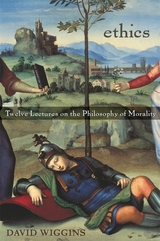 Ethics: Twelve Lectures on the Philosophy of Morality
David Wiggins
Harvard University Press, 2006 Almost every thoughtful person wonders at some time why morality says what it says and how, if at all, it speaks to us. David Wiggins surveys the answers most commonly proposed for such questions--and does so in a way that the thinking reader, increasingly perplexed by the everyday problem of moral philosophy, can follow. His work is thus an introduction to ethics that presupposes nothing more than the reader's willingness to read philosophical proposals closely and literally.
Gathering insights from Hume, Kant, the utilitarians, and a twentieth-century assortment of post-utilitarian thinkers, and drawing on sources as diverse as Aristotle, Simone Weil, and Philippa Foot, Wiggins points to the special role of the sentiments of solidarity and reciprocity that human beings will find within themselves. After examining the part such sentiments play in sustaining our ordinary ideas of agency and responsibility, he searches the political sphere for a neo-Aristotelian account of justice that will cohere with such an account of morality. Finally, Wiggins turns to the standing of morality and the question of the objectivity or reality of ethical demands. As the need arises at various points in the book, he pursues a variety of related issues and engages additional thinkers--Plato, C. S. Peirce, Darwin, Schopenhauer, Leibniz, John Rawls, Montaigne and others--always emphasizing the words of the philosophers under discussion, and giving readers the resources to arrive at their own viewpoint of why and how ethics matters.
Ethics, volume 131 number 4 (July 2021)
The University of Chicago Press
University of Chicago Press Journals, 2021 This is volume 131 issue 4 of Ethics. Ethics features scholarly work that covers a range of topics pertaining to moral, political, and legal philosophy from a variety of intellectual perspectives, including social and political theory, law, and economics. Articles in the journal present new theories, apply theory to contemporary moral issues, and focus on historical works that have significant implications for contemporary theory. In addition to major articles, Ethics publishes critical discussions, symposia, review essays, and book reviews.
Ethics, volume 132 number 1 (October 2021)
The University of Chicago Press
University of Chicago Press Journals, 2021 This is volume 132 issue 1 of Ethics. Ethics features scholarly work that covers a range of topics pertaining to moral, political, and legal philosophy from a variety of intellectual perspectives, including social and political theory, law, and economics. Articles in the journal present new theories, apply theory to contemporary moral issues, and focus on historical works that have significant implications for contemporary theory. In addition to major articles, Ethics publishes critical discussions, symposia, review essays, and book reviews.
Ethics, volume 132 number 2 (January 2022)
The University of Chicago Press
University of Chicago Press Journals, 2022 This is volume 132 issue 2 of Ethics. Ethics features scholarly work that covers a range of topics pertaining to moral, political, and legal philosophy from a variety of intellectual perspectives, including social and political theory, law, and economics. Articles in the journal present new theories, apply theory to contemporary moral issues, and focus on historical works that have significant implications for contemporary theory. In addition to major articles, Ethics publishes critical discussions, symposia, review essays, and book reviews.
Ethics, volume 132 number 3 (April 2022)
The University of Chicago Press
University of Chicago Press Journals, 2022 This is volume 132 issue 3 of Ethics. Ethics features scholarly work that covers a range of topics pertaining to moral, political, and legal philosophy from a variety of intellectual perspectives, including social and political theory, law, and economics. Articles in the journal present new theories, apply theory to contemporary moral issues, and focus on historical works that have significant implications for contemporary theory. In addition to major articles, Ethics publishes critical discussions, symposia, review essays, and book reviews.
Ethics, volume 132 number 4 (July 2022)
The University of Chicago Press
University of Chicago Press Journals, 2022 This is volume 132 issue 4 of Ethics. Ethics features scholarly work that covers a range of topics pertaining to moral, political, and legal philosophy from a variety of intellectual perspectives, including social and political theory, law, and economics. Articles in the journal present new theories, apply theory to contemporary moral issues, and focus on historical works that have significant implications for contemporary theory. In addition to major articles, Ethics publishes critical discussions, symposia, review essays, and book reviews.
Ethics, volume 133 number 1 (October 2022)
The University of Chicago Press
University of Chicago Press Journals, 2022 This is volume 133 issue 1 of Ethics. Ethics features scholarly work that covers a range of topics pertaining to moral, political, and legal philosophy from a variety of intellectual perspectives, including social and political theory, law, and economics. Articles in the journal present new theories, apply theory to contemporary moral issues, and focus on historical works that have significant implications for contemporary theory. In addition to major articles, Ethics publishes critical discussions, symposia, review essays, and book reviews.
Ethics, volume 133 number 2 (January 2023)
The University of Chicago Press
University of Chicago Press Journals, 2023 This is volume 133 issue 2 of Ethics. Ethics features scholarly work that covers a range of topics pertaining to moral, political, and legal philosophy from a variety of intellectual perspectives, including social and political theory, law, and economics. Articles in the journal present new theories, apply theory to contemporary moral issues, and focus on historical works that have significant implications for contemporary theory. In addition to major articles, Ethics publishes critical discussions, symposia, review essays, and book reviews.
Ethics, volume 133 number 3 (April 2023)
The University of Chicago Press
University of Chicago Press Journals, 2023 This is volume 133 issue 3 of Ethics. Ethics features scholarly work that covers a range of topics pertaining to moral, political, and legal philosophy from a variety of intellectual perspectives, including social and political theory, law, and economics. Articles in the journal present new theories, apply theory to contemporary moral issues, and focus on historical works that have significant implications for contemporary theory. In addition to major articles, Ethics publishes critical discussions, symposia, review essays, and book reviews.
Ethics, volume 133 number 4 (July 2023)
The University of Chicago Press
University of Chicago Press Journals, 2023 This is volume 133 issue 4 of Ethics. Ethics features scholarly work that covers a range of topics pertaining to moral, political, and legal philosophy from a variety of intellectual perspectives, including social and political theory, law, and economics. Articles in the journal present new theories, apply theory to contemporary moral issues, and focus on historical works that have significant implications for contemporary theory. In addition to major articles, Ethics publishes critical discussions, symposia, review essays, and book reviews.
Ethics, volume 134 number 1 (October 2023)
The University of Chicago Press
University of Chicago Press Journals, 2023 This is volume 134 issue 1 of Ethics. Ethics features scholarly work that covers a range of topics pertaining to moral, political, and legal philosophy from a variety of intellectual perspectives, including social and political theory, law, and economics. Articles in the journal present new theories, apply theory to contemporary moral issues, and focus on historical works that have significant implications for contemporary theory. In addition to major articles, Ethics publishes critical discussions, symposia, review essays, and book reviews.
Ethics, volume 134 number 2 (January 2024)
The University of Chicago Press
University of Chicago Press Journals, 2024 This is volume 134 issue 2 of Ethics. Ethics features scholarly work that covers a range of topics pertaining to moral, political, and legal philosophy from a variety of intellectual perspectives, including social and political theory, law, and economics. Articles in the journal present new theories, apply theory to contemporary moral issues, and focus on historical works that have significant implications for contemporary theory. In addition to major articles, Ethics publishes critical discussions, symposia, review essays, and book reviews.
Ethics, volume 134 number 3 (April 2024)
The University of Chicago Press
University of Chicago Press Journals, 2024 This is volume 134 issue 3 of Ethics. Ethics features scholarly work that covers a range of topics pertaining to moral, political, and legal philosophy from a variety of intellectual perspectives, including social and political theory, law, and economics. Articles in the journal present new theories, apply theory to contemporary moral issues, and focus on historical works that have significant implications for contemporary theory. In addition to major articles, Ethics publishes critical discussions, symposia, review essays, and book reviews.
Ethics, volume 134 number 4 (July 2024)
The University of Chicago Press
University of Chicago Press Journals, 2024 This is volume 134 issue 4 of Ethics. Ethics features scholarly work that covers a range of topics pertaining to moral, political, and legal philosophy from a variety of intellectual perspectives, including social and political theory, law, and economics. Articles in the journal present new theories, apply theory to contemporary moral issues, and focus on historical works that have significant implications for contemporary theory. In addition to major articles, Ethics publishes critical discussions, symposia, review essays, and book reviews.
Ethics, volume 135 number 1 (October 2024)
The University of Chicago Press
University of Chicago Press Journals, 2024 This is volume 135 issue 1 of Ethics. Ethics features scholarly work that covers a range of topics pertaining to moral, political, and legal philosophy from a variety of intellectual perspectives, including social and political theory, law, and economics. Articles in the journal present new theories, apply theory to contemporary moral issues, and focus on historical works that have significant implications for contemporary theory. In addition to major articles, Ethics publishes critical discussions, symposia, review essays, and book reviews.
Ethics, volume 135 number 2 (January 2025)
The University of Chicago Press
University of Chicago Press Journals, 2025 This is volume 135 issue 2 of Ethics. Ethics features scholarly work that covers a range of topics pertaining to moral, political, and legal philosophy from a variety of intellectual perspectives, including social and political theory, law, and economics. Articles in the journal present new theories, apply theory to contemporary moral issues, and focus on historical works that have significant implications for contemporary theory. In addition to major articles, Ethics publishes critical discussions, symposia, review essays, and book reviews.
Ethics, volume 135 number 3 (April 2025)
The University of Chicago Press
University of Chicago Press Journals, 2025 This is volume 135 issue 3 of Ethics. Ethics features scholarly work that covers a range of topics pertaining to moral, political, and legal philosophy from a variety of intellectual perspectives, including social and political theory, law, and economics. Articles in the journal present new theories, apply theory to contemporary moral issues, and focus on historical works that have significant implications for contemporary theory. In addition to major articles, Ethics publishes critical discussions, symposia, review essays, and book reviews.
Ethics, volume 135 number 4 (July 2025)
The University of Chicago Press
University of Chicago Press Journals, 2025 This is volume 135 issue 4 of Ethics. Ethics features scholarly work that covers a range of topics pertaining to moral, political, and legal philosophy from a variety of intellectual perspectives, including social and political theory, law, and economics. Articles in the journal present new theories, apply theory to contemporary moral issues, and focus on historical works that have significant implications for contemporary theory. In addition to major articles, Ethics publishes critical discussions, symposia, review essays, and book reviews.
Ethics, volume 136 number 1 (October 2025)
The University of Chicago Press
University of Chicago Press Journals, 2025 This is volume 136 issue 1 of Ethics. Ethics features scholarly work that covers a range of topics pertaining to moral, political, and legal philosophy from a variety of intellectual perspectives, including social and political theory, law, and economics. Articles in the journal present new theories, apply theory to contemporary moral issues, and focus on historical works that have significant implications for contemporary theory. In addition to major articles, Ethics publishes critical discussions, symposia, review essays, and book reviews.
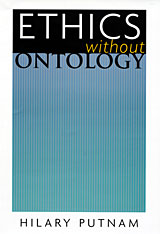 Ethics without Ontology
Hilary Putnam
Harvard University Press, 2005 In this brief book one of the most distinguished living American philosophers takes up the question of whether ethical judgments can properly be considered objective—a question that has vexed philosophers over the past century. Looking at the efforts of philosophers from the Enlightenment through the twentieth century, Hilary Putnam traces the ways in which ethical problems arise in a historical context.
Putnam’s central concern is ontology—indeed, the very idea of ontology as the division of philosophy concerned with what (ultimately) exists. Reviewing what he deems the disastrous consequences of ontology’s influence on analytic philosophy—in particular, the contortions it imposes upon debates about the objective of ethical judgments—Putnam proposes abandoning the very idea of ontology. He argues persuasively that the attempt to provide an ontological explanation of the objectivity of either mathematics or ethics is, in fact, an attempt to provide justifications that are extraneous to mathematics and ethics—and is thus deeply misguided.
Ethiopia Unbound: A Critical Edition
J. E. Casely Hayford
Michigan State University Press, 2024 This book shines a new light on J. E. Casely Hayford’s Ethiopia Unbound, widely considered the first English-language novel published by an African writer. Casely Hayford drew material from his eminent career as a barrister, statesman, and newspaper editor to augment the book’s fictional elements, showcasing the tremendous intellectual versatility of West Africa. Moving between London and the Gold Coast, as well as across the past, present, and imagined future of Casely Hayford’s Fante civilization, Ethiopia Unbound is an essential record of how Africans at the turn of the twentieth century made sense of their place in a rapidly changing world.
 The Ethiopian Army: From Victory to Collapse, 1977-1991
Fantahun Ayele
Northwestern University Press, 2014 The Ethiopian popular revolution of 1974 ended a monarchy that claimed descent from King Solomon and the Queen of Sheba, and brought to power a military government that created one of the largest and best-equipped armies in Africa. In his panoramic study of the Ethiopian army, Fantahun Ayele draws upon his unprecedented access to Ethiopian Ministry of Defense archives to study the institution that was able to repel the Somali invasion of 1977 and suppress internal uprisings, but collapsed in 1991 under the combined onslaught of armed insurgencies in Eritrea and Tigray. Besides military operations, The Ethiopian Army discusses tactical areas such as training, equipment, intelligence, and logistics, as well as grand strategic choices such as ending the 1953 Ethio-American Mutual Defense Agreement and signing a treaty of military assistance with the Soviet Union. The result sheds considerable light on the military developments that have shaped Ethiopia and the Horn in the twentieth century.
 The Ethiopian Campaign and French Political Thought
Yves R. Simon
University of Notre Dame Press, 2009
"While it is true that Yves R. Simon did not intend this to be a history book, The Ethiopian Campaign and French Political Thought is an important historical work well deserving of a close reading by students of twentieth-century European history and international relations. This book, which finds a worthy English translation after too many years, was Simon's first serious foray into the public square on the side of justice and the common good. Simon's analysis is wide-ranging, incisive, and brimming with far-sighted political acumen." --Robert Ventresca, King's University College
"The Italian invasion of Ethiopia in 1935 led to the memorable plea of Emperor Haile Selassie before the League of Nations as his country's freedom died. Easier to forget is that it also sparked a surprisingly familiar intellectual dispute over the legitimacy of the bombing and the relevance of international law, as depressingly many European intellectuals rallied behind Benito Mussolini's campaign as a defense of the West and the cause of 'civilization.' The unsparing critique leveled against these frequently religious apologists for imperialism by Yves Simon, French Catholic thinker and later American university professor, is an eye-opening reminder of the terms of debate, and the larger constellation of forces of the turbulent era. Anthony Simon and his colleagues deserve thanks for making this precious and moving document available, since its ethical kernel, like its model of Catholic intellectualism, remain highly relevant." --Samuel Moyn, Columbia University
"The Ethiopian Campaign and French Political Thoughtoffers a very important discussion grounded in traditional metaphysics and in a sound sense of historical circumstances. This little book is a gem. --George Anastaplo, Loyola University of Chicago
Yves Simon was one of the preeminent Thomistic philosophers and political theorists of the twentieth century. He saw it as a moral duty to understand human reality and to use philosophical analysis to examine contemporary politics when they embodied philosophical errors or vicious ideologies. In The Ethiopian Campaign and French Political Thought, Simon extracts principles from the 1894 Dreyfus Affair in France and applies them to Italy's 1935 invasion of Ethopia. As Simon's analysis shows, the relatively obscure events leading up to the Italian invasion had larger implications for Europe and the world, perhaps even paving the way for Vichy France's collaboration with Hitler's German New Order.
This book, available for the first time in English, offers an interesting case study of such ethical concerns as just war theory and pre-emptive war, and is of particular relevance in our modern political climate.
 Ethiopian Jewish Ascetic Religious Communities: Built Environment and Way of Life of the Betä Ǝsraʾel
Bar Kribus
Arc Humanities Press, 2022 The Betä Ǝsraʾel (Ethiopian Jews) have a unique history and religious tradition, one of the most fascinating aspects of which are the mäloksočč, commonly referred to as monks in scholarly and popular literature. The mäloksočč served as the supreme religious leaders of the Betä Ǝsraʾel and were charged with educating and initiating Betä Ǝsraʾel priests. They lived in separate compounds and observed severe purity laws prohibiting physical contact with the laity. Thus, they are the only known example in medieval and modern Jewry of ascetic communities withdrawing from the secular world and devoting themselves fully to religious life. This book presents the results of the first comprehensive research ever conducted on the way of life and material culture of the ascetic religious communities of the Betä Ǝsraʾel. A major part of this research is an archaeological survey, during which these religious centres were located and documented in detail for the first time.
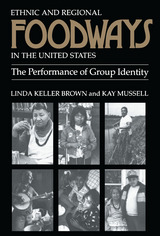 Ethnic and Regional Foodways in the United States: The Performance of Group Identity
Linda Keller Brown
University of Tennessee Press, 1989 " . . . provides valuable information for the specialist in American studies, and for the anthropologist or folklorist focusing on food use, and may also be of interest to the general reading audience. With such a wide appeal, the book may not only document the American romance with ethnic foods, but may contribute to it as well."
—Joanne Wagner, Anthropological Quarterly
How do customs surrounding the preparation and consumption of food define minorities within a population? The question receives fascinating and multifaceted answers in this book, which considers a smorgasbord of dishes that sustain group identity and often help to bridge intergroup barriers.
The essays explore the symbolic meaning of shared foodways in interpreting inter- and intragroup behavior, with attention to theoretical problems and the implications of foodways research for public policy. Topics receiving rewarding analysis in this volume include food festivals, modes of food preparation, meal cycles, seasonal celebrations, nutrition education, and the government's inattention to ethnic customs in formulating its food policies.
 Ethnic Chrysalis: China’s Orochen People and the Legacy of Qing Borderland Administration
Loretta E. Kim
Harvard University Press, 2019 Ethnic Chrysalis is the first book in English to cover the early modern history of the Orochen, an ethnic group that has for centuries inhabited areas now belonging to the Russian Federation and the People’s Republic of China. The Qing dynasty (1644–1911) was a formative period for Orochen identity, and its actions preserved the Orochen as a separate ethnic group. While incorporating the Orochen into the imperial political domain through military conscription and compulsory resource extraction, the Qing government created two Orochen subgroups that experienced disparate levels of social and economic autonomy. The use of “Orochen” as an official modifier by Qing officials forms an early layer of the chrysalis that embodies various senses of ethnic identity for people who have been identified, or self‐identified, as Orochen. Since the Qing, the Orochen have continued to cherish the perception that their Qing‐period ancestors were key players in the defense and economy of northeast China. Tracing the evolution of Qing policies toward the Orochen along the Chinese‐Russian borderland, Loretta Kim examines how the impact of political organization in one era can endure in a group’s social and cultural values.
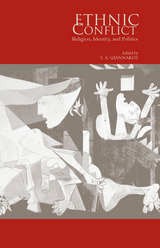 Ethnic Conflict: Religion, Identity, and Politics
S. A. Giannakos
Ohio University Press, 2001 The outbreak of numerous and simultaneous violent conflicts around the globe in the past decade resulted in immense human suffering and countless lost lives. In part, both results were aided by inactivity or by belated and often misplaced responses by the international community to the embattled groups. The apparent inability of the international community to respond firmly and purposefully to violent conflicts can be attributed partially to a general confusion and misunderstanding of the root causes of such conflicts. In some cases, the international community argued that violent conflicts could be attributed to irreconcilable ethnic differences, which, like earthquakes, are impossible to prevent or control.
At other times, the argument was that such conflicts were the results of evil leaders capable of engineering mass violent acts. Ethnic Conflict presents an interdisciplinary and comparative effort to explain the root causes of ethnic conflicts in terms of political, economic, and social common denominators that characterize all such conflicts. It seeks to dispel misplaced assumptions about violent domestic conflicts and, by providing a clearer picture of the mechanics of such conflicts, it hopes to assist in the process of conflict resolution and prevention.
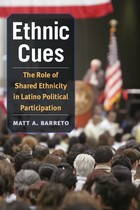 Ethnic Cues: The Role of Shared Ethnicity in Latino Political Participation
Matt A. Barreto
University of Michigan Press, 2012 "New theoretical propositions, original data, and rigorous empirical tests are what one looks for in cutting-edge social science. Fortunately, all three are apparent in Ethnic Cues. The author has pushed his thinking to develop new ways of understanding and explaining patterns of Latino voting behavior."
---Luis Ricardo Fraga, University of Washington, Seattle "Matt Barreto investigates some of the ramifications of two new related developments in American political life: the stunning growth of the Latino immigrant population in recent decades and the accompanying exponential explosion in the number of Latino candidates running for political office at the local, state, and national levels."
---Reuel R. Rogers, Northwestern University Until recently, much of the research on political participation has resisted the idea that Latino voters rely on ethnic cues. The discussion has become increasingly salient as political strategists have learned to define individual voting blocs and mobilize them in support of a candidate. Nourished by the debate over immigration, the search for the Latino voter has now blossomed into a national political obsession. Against this background, Matt A. Barreto assays the influence of ethnic identification on Latinos' voting behavior. Barreto asks whether the presence of co-ethnic candidates actually does mobilize Latino voters in support of these candidates. His analysis of in-depth candidate interviews, public opinion surveys, official election results, and statistics finds that it does. He goes on to describe the dynamic of voting in the Latino community and sharpens our appreciation of how ethnic considerations influence the electoral choices of Americans more generally. In a time of intensely focused campaign appeals, Barreto's work has much to tell us about the mechanics of public opinion and the role of race and ethnicity in voting behavior. Matt A. Barreto is Associate Professor of Political Science at the University of Washington and Director of the Washington Institute for the Study of Ethnicity, Race, and Sexuality (WISER). Cover art credit: © iStockphoto.com/P_Wei
 Ethnic Dilemmas, 1964–1982
Nathan Glazer
Harvard University Press, 1983 The last two decades have been the most turbulent for American racial and ethnic relations since Reconstruction. Following the passage of the landmark Civil Rights Act of 1964, there has been an explosion of ethnic self-consciousness, affirmative action, and student militancy. What do these events mean, and what should we expect in the future?
Nathan Glazer, one of America's foremost social critics, records and interprets the central developments of this crucial period: the shift of major civil rights groups and black leaders from color blindness to color consciousness; the split this shift occasioned with other civil rights advocates, such as Jewish groups; the rapid growth of ethnic self-consciousness and militancy and its impact on schools and colleges; the conflict over bilingualism and over civil rights enforcement caused by the expansion of affirmative action; and the rise of similar issues in the new multi-ethnic states that emerged from colonialism and in Western European nations transformed by mass immigration.
The book sums up a period that closed with the election of the first national administration committed to withdrawal from the further reaches of civil rights enforcement, and it forecasts the issues that will be raised as new waves of immigration from Latin America and Asia further transform the American racial and ethnic mix.
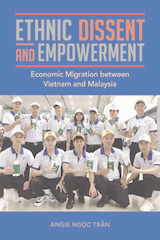 Ethnic Dissent and Empowerment: Economic Migration between Vietnam and Malaysia
Angie Ngoc Tran
University of Illinois Press, 2022 Vietnam annually sends a half million laborers to work at low-skill jobs abroad. Angie Ngọc Trần concentrates on ethnicity, class, and gender to examine how migrant workers belonging to the Kinh, Hoa, Hrê, Khmer, and Chãm ethnic groups challenge a transnational process that coerces and exploits them. Focusing on migrant laborers working in Malaysia, Trần looks at how they carve out a third space that allows them a socially accepted means of resistance to survive and even thrive at times. She also shows how the Vietnamese state uses Malaysia as a place to send poor workers, especially from ethnic minorities; how it manipulates its rural poor into accepting work in Malaysia; and the ways in which both countries benefit from the arrangement. A rare study of labor migration in the Global South, Ethnic Dissent and Empowerment answers essential questions about why nations export and import migrant workers and how the workers protect themselves not only within the system, but by circumventing it altogether.
Ethnic Diversity and the Control of Natural Resources in Southeast Asia
A. Terry Rambo, Kathleen Gillogly, and Karl L. Hutterrer, Editors
University of Michigan Press, 1988 The authors consider the ways in which the high degree of ethnic diversity within the region is related to the nature of tropical Asian environments, on the one hand, and the nature of Southeast Asian political systems and the ways in which they manipulate natural resources, on the other. Rather than focus on defining the phenomenon of ethnicity, this book examines the different social evolutionary contexts in which the phenomenon is manifested. Companion volume to Cultural Values and Human Ecology in Southeast Asia (Michigan Papers no. 27).
 Ethnic Drag: Performing Race, Nation, Sexuality in West Germany
Katrin Sieg
University of Michigan Press, 2002 The Holocaust is considered a singularly atrocious event in human history, and many people have studied its causes. Yet few questions have been asked about the ways in which West Germans have "forgotten," unlearned, or reconstructed the racial beliefs at the core of the Nazi state in order to build a democratic society. This study looks at ethnic drag (Ethnomaskerade) as one particular kind of performance that reveals how postwar Germans lived, disavowed, and contested "Germanness" in its complex racial, national, and sexual dimensions.
Using engaging case studies, Ethnic Drag traces the classical and travestied traditions of Jewish impersonation from the eighteenth century onward to construct a pre-history of postwar ethnic drag. It examines how, shortly after World War II, mass culture and popular practices facilitated the repression and refashioning of Nazi racial precepts. During a time when American occupation authorities insisted on remembrance and redress for the Holocaust, the Wild West emerged as a displaced theater of the racial imagination, where the roles of victim, avenger, and perpetrator of genocide were reassigned.
Ethnic Drag is an accessible and sophisticated, critical and entertaining book that examines the phenomenon of cultural masquerade in order to examine racial feeling, thought, and behavior in postwar German culture. Contributing to considerations of drag in postcolonial, feminist, and queer scholarships, this book will be of interest to people in German studies, theater performance, ethnic studies, and women's/queer studies.
Katrin Sieg is Associate Professor, Department of German and Center for German and European Studies, Georgetown University.
 Ethnic Drag: Performing Race, Nation, Sexuality in West Germany
Katrin Sieg
University of Michigan Press, 2002
The Holocaust is considered a singularly atrocious event in human history, and many people have studied its causes. Yet few questions have been asked about the ways in which West Germans have "forgotten," unlearned, or reconstructed the racial beliefs at the core of the Nazi state in order to build a democratic society. This study looks at ethnic drag (Ethnomaskerade) as one particular kind of performance that reveals how postwar Germans lived, disavowed, and contested "Germanness" in its complex racial, national, and sexual dimensions.
Using engaging case studies, Ethnic Drag traces the classical and travestied traditions of Jewish impersonation from the eighteenth century onward to construct a pre-history of postwar ethnic drag. It examines how, shortly after World War II, mass culture and popular practices facilitated the repression and refashioning of Nazi racial precepts. During a time when American occupation authorities insisted on remembrance and redress for the Holocaust, the Wild West emerged as a displaced theater of the racial imagination, where the roles of victim, avenger, and perpetrator of genocide were reassigned.
Ethnic Drag is an accessible and sophisticated, critical and entertaining book that examines the phenomenon of cultural masquerade in order to examine racial feeling, thought, and behavior in postwar German culture. Contributing to considerations of drag in postcolonial, feminist, and queer scholarships, this book will be of interest to people in German studies, theater performance, ethnic studies, and women's/queer studies.
Katrin Sieg is Associate Professor, Department of German and Center for German and European Studies, Georgetown University.
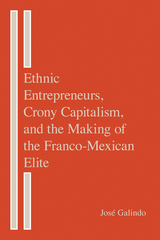 Ethnic Entrepreneurs, Crony Capitalism, and the Making of the Franco-Mexican Elite
José Galindo
University of Alabama Press, 2021 A groundbreaking historical narrative of corruption and economic success in Mexico
Ethnic Entrepreneurs, Crony Capitalism, and the Making of the Franco-Mexican Elite provides a new way to understand the scope and impact of crony capitalism on institutional development in Mexico. Beginning with the Porfiriato, the period between 1876 and 1911 named for the rule of President Porfirio Díaz, José Galindo identifies how certain behavioral patterns of the Mexican political and economic elite have repeated over the years, and analyzes aspects of the political economy that have persisted, shaping and at times curtailing Mexico’s economic development.
Strong links between entrepreneurs and politicians have allowed elite businessmen to receive privileged support, such as cheap credit, tax breaks, and tariff protection, from different governments and to run their companies as monopolies. In turn, successive governments have obtained support from businesses to implement public policies, and, on occasion, public officials have received monetary restitution. Galindo notes that Mexico’s early twentieth-century institutional framework was weak and unequal to the task of reining in these systematic abuses. The cost to society was high and resulted in a lack of fair market competition, unequal income distribution, and stunted social mobility.
The most important investors in the banking, commerce, and manufacturing sectors at the beginning of the twentieth century in Mexico were of French origin, and Galindo explains the formation of the Franco-Mexican elite. This Franco-Mexican narrative unfolds largely through the story of one of the richest families in Mexico, the Jeans, and their cotton textile empire. This family has maintained power and wealth through the current day as Emilio Azcárraga Jean, a great-grandson of one of the members of the first generation of the Jean family to arrive in Mexico, owns Televisa, a major mass media company with one of the largest audiences for Spanish-language content in the world.
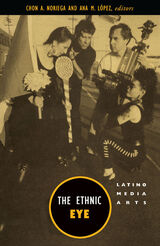 Ethnic Eye: Latino Media Arts
Chon Noriega
University of Minnesota Press, 1996 The first in-depth treatment of Latino film and video. This groundbreaking volume is the first to examine the range of Latino media arts, from independent feature production to documentary to experimental video. The essays explore the work of Chicano, Puerto Rican, Cuban American, and Latino film and video artists and address avant-garde practices, queer media, and performance art as well as more conventional film and video representations. Contributors to The Ethnic Eye provide close readings of a wide variety of films and videos, including Stand and Deliver, American Me, Bedhead, El Mariachi, Carmelita Tropicana, Improper Conduct, Welcome to America’s Finest Tourist Plantation, Border Brujo, Mérida Proscrita, and Spitfire. The essays are unified by a concern with the creation of a common ground for Latino media arts, one that is pan-ethnic rather than narrowly transcribed by race, ethnicity, or national heritage. The volume also provides the first in-depth treatment of such artists as Robert Rodriquez, Ela Troyano, Raphael Montañez Ortiz, and Frances Salomé España. Eclectic in the range of media artists and works considered, The Ethnic Eye is unique in its inclusion of site-specific public art, as well as performance-based works. Contributors: Marcos Becquer; Charles Ramírez Berg, U of Texas; C. Ondine Chavoya; Marvin D’Lugo, Clark U; Claire F. Fox, Stanford U; Ilene S. Goldman; Carmen Huaco-Nuzum, U of California, Davis; Lillian Jiménez; Alisa Lebow; Scott MacDonald, Utica College; José Esteban Muñoz, New York U; Frances Negrón-Muntaner; Kathleen Newman, U of Iowa; Christopher Ortiz.
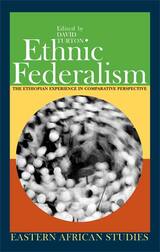 Ethnic Federalism: The Ethiopian Experience in Comparative Perspective
David Turton
Ohio University Press, 2006 Since 1991, Ethiopia has gone further than any other country in using ethnicity as the fundamental organizing principle of a federal system of government. And yet this pioneering experiment in “ethnic federalism” has been largely ignored in the growing literature on democratization and ethnicity in Africa and on the accommodation of ethnic diversity in democratic states. Ethnic Federalism brings a much-needed comparative dimension to the discussion of this experiment in Ethiopia.
Ethnic Federalism closely examines aspects of the Ethiopean case and asks why the use of territorial decentralism to accommodate ethnic differences has been generally unpopular in Africa, while it is growing in popularity in the West.
The book includes case studies of Nigerian and Indian federalism and suggests how Ethiopia might learn from both the failures and successes of these older federations. In the light of these broader issues and cases, it identifies the main challenges facing Ethiopia in the next few years, as it struggles to bring political practice into line with constitutional theory and thereby achieve a genuinely federal division of powers.
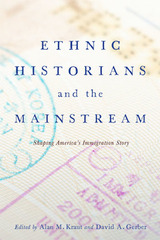 Ethnic Historians and the Mainstream: Shaping America's Immigration Story
Alan M. Kraut and David A. Gerber
Rutgers University Press, 2013 Do historians “write their biographies” with the subjects they choose to address in their research? In this collection, editors Alan M. Kraut and David A. Gerber compiled eleven original essays by historians whose own ethnic backgrounds shaped the choices they have made about their own research and writing as scholars. These authors, historians of American immigration and ethnicity, revisited family and personal experiences and reflect on how their lives helped shape their later scholarly pursuits, at times inspiring specific questions they asked of the nation’s immigrant past. They address issues of diversity, multiculturalism, and assimilation in academia, in the discipline of history, and in society at large. Most have been pioneers not only in their respective fields, but also in representing their ethnic group within American academia. Some of the women in the group were in the vanguard of gender diversity in the discipline of history as well as on the faculties of the institutions where they have taught. The authors in this collection represent a wide array of backgrounds, spanning Europe, Africa, Asia, the Middle East, and Latin America. What they have in common is their passionate engagement with the making of social and personal identities and with finding a voice to explain their personal stories in public terms. Contributors: Theresa Alfaro-Velcamp, John Bodnar, María C. García, David A. Gerber, Violet M. Showers Johnson, Alan M. Kraut, Timothy J. Meagher, Deborah Dash Moore, Dominic A. Pacyga, Barbara M. Posadas, Eileen H. Tamura, Virginia Yans, Judy Yung
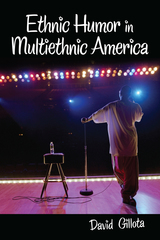 Ethnic Humor in Multiethnic America
Gillota, David
Rutgers University Press, 2013 When wielded by the white majority, ethnic humor can be used to ridicule and demean marginalized groups. In the hands of ethnic minorities themselves, ethnic humor can work as a site of community building and resistance. In nearly all cases, however, ethnic humor can serve as a window through which to examine the complexities of American race relations. In Ethnic Humor in Multiethnic America, David Gillota explores the ways in which contemporary comic works both reflect and participate in national conversations about race and ethnicity.
Gillota investigates the manner in which various humorists respond to multiculturalism and the increasing diversity of the American population. Rather than looking at one or two ethnic groups at a time—as is common scholarly practice—the book focuses on the interplay between humorists from different ethnic communities. While some comic texts project a fantasy world in which diverse ethnic characters coexist in a rarely disputed harmony, others genuinely engage with the complexities and contradictions of multiethnic America.
The first chapter focuses on African American comedy with a discussion of such humorists as Paul Mooney and Chris Rock, who tend to reinforce a black/white vision of American race relations. This approach is contrasted to the comedy of Dave Chappelle, who looks beyond black and white and uses his humor to place blackness within a much wider multiethnic context.
Chapter 2 concentrates primarily on the Jewish humorists Sarah Silverman, Larry David, and Sacha Baron Cohen—three artists who use their personas to explore the peculiar position of contemporary Jews who exist in a middle space between white and other.
In chapter 3, Gillota discusses different humorous constructions of whiteness, from a detailed analysis of South Park to “Blue Collar Comedy” and the blog Stuff White People Like.
Chapter 4 is focused on the manner in which animated children’s film and the network situation comedy often project simplified and harmonious visions of diversity. In contrast, chapter 5 considers how many recent works, such as Harold and Kumar Go to White Castle and the Showtime series Weeds, engage with diversity in more complex and productive ways.
Ethnic Identity and Imperial Power: The Batavians in the Early Roman Empire
Nico Roymans
Amsterdam University Press, 2005 This probing case study examines the evolution of the ethnic identity of the Batavians, a lower Rhineland tribe in the western marches of the Roman Empire. Drawing on extensive historical and archaeological data, Nico Roymans examines how between 50 BCE and 70 CE, the Romans cultivated the Batavians as an ethnic "other" by intensively recruiting them to the Roman army while simultaneously carrying out extermination campaigns against other tribes in the region. Roymans also considers how the status of the Batavian settlement reveals intriguing insights into Roman definitions of "civilization" and "barbarism." Ethnic Identity and Imperial Power is a fascinating anthropological study on how ancient frontier peoples negotiated their self-image.
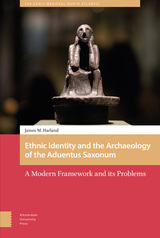 Ethnic Identity and the Archaeology of the aduentus Saxonum: A Modern Framework and its Problems
James M. Harland
Amsterdam University Press, 2021 For centuries, archaeologists have excavated the soils of Britain to uncover finds from the early medieval past. These finds have been used to reconstruct the alleged communities, migration patterns, and expressions of identity of coherent groups who can be regarded as ethnic 'Anglo-Saxons'. Even in the modern day, when social constructionism has been largely accepted by scholars, this paradigm still persists.
This book challenges the ethnic paradigm. As the first historiographical study of approaches to ethnic identity in modern 'Anglo-Saxon' archaeology, it reveals these approaches to be incompatible with current scholarly understandings of ethnicity. Drawing upon post-structuralist approaches to self and community, it highlights the empirical difficulties the archaeology of ethnicity in early medieval Britain faces, and proposes steps toward an alternative understanding of the role played by the communities of lowland Britain – both migrants from across the North Sea and those already present – in transforming the Roman world.
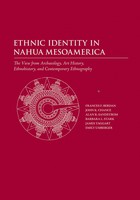 Ethnic Identity in Nahua Mesoamerica: The View from Archaeology, Art History, Ethnohistory, and Contemporary Ethnography
Frances F Berdan
University of Utah Press, 2008 Ethnicity has long been a central concern of Mesoamerican ethnography, but for methodological reasons has received less attention in the archaeological, historical, and art historical literature. Using the disciplines of archaeology, art history, ethnohistory, and ethnography, Ethnic Identity in Nahua Mesoamerica provides a unique interdisciplinary treatment of Nahua identity in central Mexico — beginning with pre-Columbian times and proceeding through the Aztec empire, the colonial era, and the ethnographic present.
This book is the first to analyze ethnicity in a single place over a span that covers prehistory, colonial history, and contemporary life. The authors bring to their various case studies data, methodologies, and concepts of their respective fields to show how Nahuan concepts of ethnic identity are not based on the notion of shared descent but rather on conceptions of shared place of origin and common history.
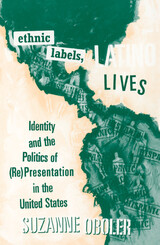 Ethnic Labels, Latino Lives: Identity and the Politics of (Re) Presentation in the United States
Suzanne Oboler
University of Minnesota Press, 1995 Hispanic or Latino? Mexican American or Chicano? Social labels often take on a life of their own beyond the control of those who coin them or to whom they are applied. In Ethnic Labels, Latino Lives, Suzanne Oboler explores the history and current use of the label “Hispanic” as she illustrates the complex meanings that ethnicity has acquired in shaping our lives and identities. Exploding the myth of cultural and national homogeneity among people of Latin American descent, Oboler interviews members of diverse groups who have traditionally been labeled “Hispanic” and records the many different meanings and social values they attribute to this label. For example, a person of Mexican descent has a different historical relationship with the United States and a different cultural background than an individual of Puerto Rican or Brazilian descent. The different meanings and social values those interviewed attribute to the label "Hispanic" also correspond to their gender and social class position, including racial prejudices and values stemming from their countries of origin. Though we have witnessed in recent years the fading of the idealized image of U.S. society as a melting pot, we have also realized that the possibility of recasting it in multicultural terms is problematic. Oboler discusses the historical process of labeling groups of individuals, illustrating how labels affect the meaning of citizenship and the struggle for full social participation in the United States. Ethnic Labels, Latino Lives aims to understand the role ethnic labels play in our society and brings us closer toward actualizing a society that values cultural diversity.
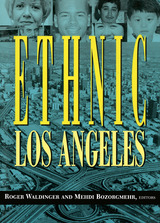 Ethnic Los Angeles
Roger Waldinger
Russell Sage Foundation, 1996 Since 1965 more immigrants have come to Los Angeles than anywhere else in the United States. These newcomers have rapidly and profoundly transformed the city's ethnic makeup and sparked heated debate over their impact on the region's troubled economy. Ethnic Los Angeles presents a multi-investigator study of L.A.'s immigrant population, exploring the scope, characteristics, and consequences of ethnic transition in the nation's second most populous urban center. Using the wealth of information contained in the U.S. censuses of 1970, 1980, and 1990, essays on each of L.A.'s major ethnic groups tell who the immigrants are, where they come from, the skills they bring and their sources of employment, and the nature of their families and social networks. The contributors explain the history of legislation and economic change that made the city a magnet for immigration, and compare the progress of new immigrants to those of previous eras. Recent immigrants to Los Angeles follow no uniform course of adaptation, nor do they simply assimilate into the mainstream society. Instead, they have entered into distinct niches at both the high and low ends of the economic spectrum. While Asians and Middle Easterners have thrived within the medical and technical professions, low-skill newcomers from Central America provide cheap labor in light manufacturing industries. As Ethnic Los Angeles makes clear, the city's future will depend both on how well its economy accommodates its diverse population, and on how that population adapts to economic changes. The more prosperous immigrants arrived already possessed of advanced educations and skills, but what does the future hold for less-skilled newcomers? Will their children be able to advance socially and economically, as the children of previous immigrants once did? The contributors examine the effect of racial discrimination, both in favoring low-skilled immigrant job seekers over African Americans, and in preventing the more successful immigrants and native-born ethnic groups from achieving full economic parity with whites. Ethnic Los Angeles is an illuminating portrait of a city whose unprecedented changes are sure to be replicated in other urban areas as new concentrations of immigrants develop. Backed by detailed demographic information and insightful analyses, this volume engages all of the issues that are central to today's debates about immigration, ethnicity, and economic opportunity in a post-industrial urban society.
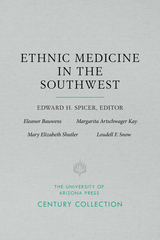 Ethnic Medicine in the Southwest
Edited by Edward H. Spicer; (by) Eleanor Bauwens, Margarita Artschwager Kay, Mary Elizabeth Shutler, and Loudell F. Snow
University of Arizona Press, 1977 Health is a major concern to all people. In this volume, four writers examine the medical arts of Yaqui, Anglo, Black and Mexican American communities to further understand the relationship between alternative and scientific medicine.
Edward H. Spicer's informative Introduction sets the stage for comparing "popular" and "scientific" medicine. "Graduates of medical schools have been taught that their body of knowledge is the one true medical tradition. The world has many medicines and thousands of practitioners who do not believe that "Western" medicine is a universal cure-all. These practitioners may be as certain that what they practice is the one true medical tradition," says Spicer. In the communities studied, the belief is that illnesses may be caused by overwork, withcraft or sin, and treatment may include herbs, prayer, or massage. Practitioners are successful and respected although they are not licenses in the legal sense.
In these alternative medical traditions, "Western" medicine may find a key to new growth and effectiveness. Ethnic Medicine in the Southwest is a fascinating look at commonly practiced arts that will interest not only ethnic and health services specialists but all those interested in cultural traditions.
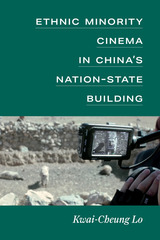 Ethnic Minority Cinema in China’s Nation-State Building
Kwai-Cheung Lo
University of Michigan Press, 2025 Ethnic Minority Cinema in China’s Nation-State Building investigates the relationship between cinematic productions about non-Han ethnic minorities and China’s nation-state building project from the early Republican era of the 1920s to the current authoritarian regime in the twenty-first century. Kwai-Cheung Lo argues that the glossy, but superficial, cinematic depictions of non-Han ethnic minorities manufactured and manipulated by state authorities have deeply penetrated the Chinese public’s conception of what an ideal multiethnic nation should be like as well as what it means to be Chinese under political unification.
Lo understands these representations of ethnic minorities as part of a larger ecosystem and the cultures, values, and life practices of non-Han ethnic minorities as closely entwined with environmental issues and politics. This intertwining, Lo argues, suggests a crisis in “objectification and identification” of both people and the environment, that plays out in cinema featuring ethnic minorities. Lo traces these depictions of Chinese ethnic minority groups in films created by both Han-majority and non-Han filmmakers, examining how these representations became a site in which state authorities, Han and non-Han communities, and foreign agencies compete and interact under the larger context of building and imagining the Chinese nation-state.
 Ethnic Modernism
Werner Sollors
Harvard University Press, 2008 In the first half of the twentieth century, the United States moved from the periphery to the center of global cultural production. At the same time, technologies of dissemination evolved rapidly, and versions of modernism emerged as dominant art forms. How did African American, European immigrant, and other minority writers take part in these developments that also transformed the United States, giving it an increasingly multicultural self-awareness? This book attempts to address this question in a series of innovative and engaging close readings of major texts by Gertrude Stein, Mary Antin, Jean Toomer, O. E. Rölvaag, Nathan Asch, Henry Roth, Richard Wright, Zora Neale Hurston, Pietro di Donato, Jerre Mangione, John Hersey, and Leo Szilard, as well as briefer examinations of many other authors and works, against the background of international political developments, the rise of modernism in the visual arts, and the ascendancy of Ernest Hemingway as a model for prose writers.
In many of Werner Sollors’s sensitive readings, single sentences and paragraphs serve as the representative formal units of prose works, while throughout Ethnic Modernism the trolley (now a cute-seeming object of nostalgia) emerges with surprising frequency as a central thematic emblem of modernity.
Ethnic Music on Records: A Discography of Ethnic Recordings Produced in the United States, 1893-1942. Vol. 1: Western Europe
Richard K. Spottswood
University of Illinois Press, 1990 This impressive compilation offers a nearly complete listing of sound recordings made by American minority artists prior to mid-1942. Organized by national group or language, the seven-volume set cites primary and secondary titles, composers, participating artists, instrumentation, date and place of recording, master and release numbers, and reissues in all formats. Because of its clear arrangements and indexes, it will be a unique and valuable tool for music and ethnic historians, folklorists, and others.
Ethnic Music on Records: A Discography of Ethnic Recordings Produced in the United States, 1893-1942. Vol. 2: Slavic
Richard K. Spottswood
University of Illinois Press, 1990 This impressive compilation offers a nearly complete listing of sound recordings made by American minority artists prior to mid-1942. Organized by national group or language, the seven-volume set cites primary and secondary titles, composers, participating artists, instrumentation, date and place of recording, master and release numbers, and reissues in all formats. Because of its clear arrangements and indexes, it will be a unique and valuable tool for music and ethnic historians, folklorists, and others.
Ethnic Music on Records: A Discography of Ethnic Recordings Produced in the United States, 1893-1942. Vol. 3: Eastern Europe
Richard K. Spottswood
University of Illinois Press, 1990 This impressive compilation offers a nearly complete listing of sound recordings made by American minority artists prior to mid-1942. Organized by national group or language, the seven-volume set cites primary and secondary titles, composers, participating artists, instrumentation, date and place of recording, master and release numbers, and reissues in all formats. Because of its clear arrangements and indexes, it will be a unique and valuable tool for music and ethnic historians, folklorists, and others.
Winner of the ARSC Award for Excellence in the Field of Recorded Country, Folk, or Ethnic Music, 1991.
Ethnic Music on Records: A Discography of Ethnic Recordings Produced in the United States, 1893-1942. Vol. 4: Spanish, Portuguese, Philippines, Basque
Richard K. Spottswood
University of Illinois Press, 1990 This impressive compilation offers a nearly complete listing of sound recordings made by American minority artists prior to mid-1942. Organized by national group or language, the seven-volume set cites primary and secondary titles, composers, participating artists, instrumentation, date and place of recording, master and release numbers, and reissues in all formats. Because of its clear arrangements and indexes, it will be a unique and valuable tool for music and ethnic historians, folklorists, and others.
Ethnic Music on Records: A Discography of Ethnic Recordings Produced in the United States, 1893-1942. Vol. 5: Middle East, Far East, Scandinavian, English Language, American Indian, International
Richard K. Spottswood
University of Illinois Press, 1990 This impressive compilation offers a nearly complete listing of sound recordings made by American minority artists prior to mid-1942. Organized by national group or language, the seven-volume set cites primary and secondary titles, composers, participating artists, instrumentation, date and place of recording, master and release numbers, and reissues in all formats. Because of its clear arrangements and indexes, it will be a unique and valuable tool for music and ethnic historians, folklorists, and others.
Ethnic Music on Records: A Discography of Ethnic Recordings Produced in the United States, 1893-1942. Vol. 6: Artist Index, Title Index
Richard K. Spottswood
University of Illinois Press, 1990 This impressive compilation offers a nearly complete listing of sound recordings made by American minority artists prior to mid-1942. Organized by national group or language, the seven-volume set cites primary and secondary titles, composers, participating artists, instrumentation, date and place of recording, master and release numbers, and reissues in all formats. Because of its clear arrangements and indexes, it will be a unique and valuable tool for music and ethnic historians, folklorists, and others.
Ethnic Music on Records: A Discography of Ethnic Recordings Produced in the United States, 1893-1942. Vol. 7: Record Number Index, Matrix Number Index
Richard K. Spottswood
University of Illinois Press, 1990 This impressive compilation offers a nearly complete listing of sound recordings made by American minority artists prior to mid-1942. Organized by national group or language, the seven-volume set cites primary and secondary titles, composers, participating artists, instrumentation, date and place of recording, master and release numbers, and reissues in all formats. Because of its clear arrangements and indexes, it will be a unique and valuable tool for music and ethnic historians, folklorists, and others.
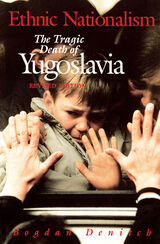 Ethnic Nationalism: The Tragic Death of Yugoslavia
Bogdan Denitch
University of Minnesota Press, 1996 If your neighbor cannot sleep, you will not be allowed to either: The old adage assumes an overtone of dread as the stirring, wary world witnesses the destruction of Yugoslavia. If the leaders of Serbia and Croatia can get away with tearing apart Bosnia-Herzegovina, a sovereign member of the United Nations, what is to stop military elites in other former Soviet and East European states from proposing similar solutions to their own national grievances and aspirations? And who is to say such attention would be confined to that area of the globe? The world may well be uneasy, as Bogdan Denitch makes clear in this brilliant book about the causes and possible ramifications of the death of Yugoslavia. Ethnic Nationalism provides a cogent, comprehensive historical analysis of Yugoslavia's demise, one that clearly identifies events and trends that urgently demand the world's attention. The role of timing in the sequence of events; the consequences of an unworkable constitutional situation; the responsibility of the West; and, above all, the self-transformation of Communist regimes that presaged undemocratic outcomes- Denitch duly considers each of these factors as he gives a detailed description of Yugoslavia's descent into interethnic wars. His discussion of the possible fate of postcommunist states is especially pertinent, and leads to a skillful account of the sources and dangers of nationalistic and ethnic extremism on what threatens to become a global scale. In this analysis, nationalism and populism can be seen as revolts against a new world system where abstract multinational financial and political institutions thwart citizens' attempts at democratic participation. Active in Yugoslav political and intellectual life for almost thirty years, Denitch is able to imbue the developments he describes with a particular, human immediacy. His personal experiences with the emergence of nationalism and fractious ethnic politics and warfare, movingly recounted here, stand as compelling testimony to the historical drama so thoroughly and incisively detailed in this remarkable book.
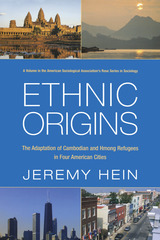 Ethnic Origins: The Adaptation of Cambodian and Hmong Refugees in Four American Cities
Jeremy Hein
Russell Sage Foundation, 2006 Immigration studies have increasingly focused on how immigrant adaptation to their new homelands is influenced by the social structures in the sending society, particularly its economy. Less scholarly research has focused on the ways that the cultural make-up of immigrant homelands influences their adaptation to life in a new country. In Ethnic Origins, Jeremy Hein investigates the role of religion, family, and other cultural factors on immigrant incorporation into American society by comparing the experiences of two little-known immigrant groups living in four different American cities not commonly regarded as immigrant gateways. Ethnic Origins provides an in-depth look at Hmong and Khmer refugees—people who left Asia as a result of failed U.S. foreign policy in their countries. These groups share low socio-economic status, but are vastly different in their norms, values, and histories. Hein compares their experience in two small towns—Rochester, Minnesota and Eau Claire, Wisconsin—and in two big cities—Chicago and Milwaukee—and examines how each group adjusted to these different settings. The two groups encountered both community hospitality and narrow-minded hatred in the small towns, contrasting sharply with the cold anonymity of the urban pecking order in the larger cities. Hein finds that for each group, their ethnic background was more important in shaping adaptation patterns than the place in which they settled. Hein shows how, in both the cities and towns, the Hmong's sharply drawn ethnic boundaries and minority status in their native land left them with less affinity for U.S. citizenship or "Asian American" panethnicity than the Khmer, whose ethnic boundary is more porous. Their differing ethnic backgrounds also influenced their reactions to prejudice and discrimination. The Hmong, with a strong group identity, perceived greater social inequality and supported collective political action to redress wrongs more than the individualistic Khmer, who tended to view personal hardship as a solitary misfortune, rather than part of a larger-scale injustice. Examining two unique immigrant groups in communities where immigrants have not traditionally settled, Ethnic Origins vividly illustrates the factors that shape immigrants' response to American society and suggests a need to refine prevailing theories of immigration. Hein's book is at once a novel look at a little-known segment of America's melting pot and a significant contribution to research on Asian immigration to the United States. A Volume in the American Sociological Association's Rose Series in Sociology
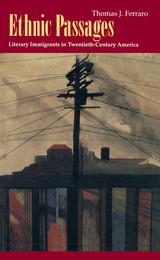 Ethnic Passages: Literary Immigrants in Twentieth-Century America
Thomas J. Ferraro
University of Chicago Press, 1993 Ethnic literature figures prominently in the current debate on multiculturalism, but even its supporters have had little to say about it as literature, stressing instead its political and sociological context. Thomas J. Ferraro, in this lively and accessible study of modern fiction by Americans of immigrant background, argues that the best of these stories demand—and reward—close reading and attention to questions of genre and literary form.
Ferraro engages the literature of immigration and mobility by asking what motivates its authors and what their work actually accomplishes. He concentrates on five diverse examples of the "up-from-the-ghetto" narrative: Mario Puzo's The Godfather, Anzia Yezierska's Bread Givers, Henry Roth's Call It Sleep, Henry Miller's "The Tailor Shop," and Maxine Hong Kingston's The Woman Warrior. To Ferraro the unsuspected value of these works is that they recast the conventions of ethnic representation, illustrating the power of ethnic writing to capture and redirect the national literary imagination.
Ferraro's sharply observed reading of these five works shows how such reenactments of immigrant mobility test the ideology of assimilation against the writer's experience. Ethnic Passages will refocus discussion of how literature addresses the American conflict between ethnic heritage and the greater opportunities of "mainstream" society.
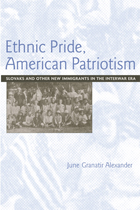 Ethnic Pride, American Patriotism: Slovaks And Other New Imiigrants
June Granatir Alexander
Temple University Press, 2004 In Ethnic Pride, American Patriotism, June Alexander presents a history of inter-war America from the perspective of new Slovak and Eastern European immigrant communities. Like the groups that preceded them, Slovak immigrants came to define being American as adhering to its political principles; they saw no contradiction between being patriotic Americans and maintaining pride in their ancestry. To counter the negative effects of the 1924 immigration law, Slovaks mobilized a variety of political and cultural activities to insure group survival and promote ethnic pride. In numerous localities "Slovak days" brought first and second generation immigrants together to celebrate their dual identity. June Granatir Alexander's study adds complexity and nuance to entrenched notions of conflicts between tradition-bound immigrants and their American-born children. Showing that ethnicity mattered to both generations, Alexander challenges generalizations derived from "whiteness" studies.
 Ethnic Relations in the Ancient Mediterranean: Social Life Under Empire
Philip A. Harland
University of Chicago Press, 2026 A fresh perspective revealing how ethnographic thinking shaped the sociocultural landscape of the ancient Mediterranean.
With this book, Philip A. Harland presents a large-scale rereading of social and cultural life in the eastern part of the ancient Mediterranean in particular, examining social interactions among peoples, from culturally dominant groups to minority populations. Harland assesses literary and archaeological evidence to yield fresh insights into the dynamics of ethnic relations in the region and to explore how the population navigated questions of identification, differentiation, categorization, stratification, criminalization, and population production.
Harland considers encounters between peoples as well as their representations of one another, reframing the social landscape of the ancient world by focusing on the influence and ubiquity of the ethnographic imagination between the fifth century BCE and the third century CE. Drawing insights from anthropology, sociology, and postcolonial studies, Harland offers close readings of papyri, inscriptions, monuments, sculptures, and other materials that reflect interactions between different populations at all levels of society. He gives careful attention to the perspectives of enslaved, immigrant, and subject peoples, including Egyptians, Babylonians, Syrians, and Judeans under Persian, Hellenistic, or Roman rule.
Offering an innovative reading of social and cultural life from the ground up, this book reveals the extent to which ethnographic thinking structured the sociocultural landscape of the ancient world.
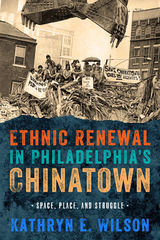 Ethnic Renewal in Philadelphia's Chinatown: Space, Place, and Struggle
Kathryn Wilson
Temple University Press, 2015 Philadelphia’s Chinatown, like many urban chinatowns, began in the late nineteenth century as a refuge for immigrant laborers and merchants in which to form a community to raise families and conduct business. But this enclave for expression, identity, and community is also the embodiment of historical legacies and personal and collective memories.
In Ethnic Renewal in Philadelphia’s Chinatown. Kathryn Wilson charts the unique history of this neighborhood. After 1945, a new generation of families began to shape Chinatown’s future. As plans for urban renewal—ranging from a cross-town expressway and commuter rail in the 1960s to a downtown baseball stadium in 2000—were proposed and developed, “Save Chinatown” activists rose up and fought for social justice.
Wilson chronicles the community’s efforts to save and renew itself through urban planning, territorial claims, and culturally specific rebuilding. She shows how these efforts led to Chinatown’s growth and its continued ability to serve as a living community for subsequent waves of new immigration.
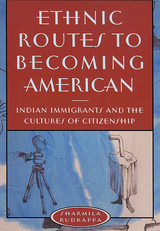 Ethnic Routes to Becoming American: Indian Immigrants and the Cultures of Citizenship
Rudrappa, Sharmila
Rutgers University Press, 2004 How does an immigrant become an ethnic American? And does American society fundamentally alter because of these newcomers?
In Ethnic Routes to Becoming American, Sharmila Rudrappa examines the paths South Asian immigrants in Chicago take toward assimilation in the late twentieth-century United States, where deliberations on citizenship rights are replete with the politics of recognition. She takes us inside two ethnic institutions, a battered women’s shelter, Apna Ghar, and a cultural organization, the Indo American Center, to show how immigrant activism, which brings cultural difference into public sphere debates, ironically abets these immigrants’ assimilation. She interlaces ethnographic details with political-philosophical debates on the politics of recognition and redistribution. In this study on the under-researched topic of the incorporation of South Asian immigrants into the American polity, Sharmila Rudrappa compels us to rethink ethnic activism, participatory democracy, and nation-building processes.
Ethnic Sculpture
Malcolm McLeod and John Mack
Harvard University Press, 1985 This book covers the vast field of sculpture produced by traditional societies of the non-Western world. The sculptures range from the delicate and affectionate ivory carvings of the Eskimo hunters of the Arctic to the dignified King figures of the Bakuba people of Central Africa. The wealth and variety of these works of art, only recently appreciated by Europeans, is one of the great cultural inheritances of mankind. This lively and authoritative work examines the thinking behind the creation of such sculptures, describes the virtuoso skills and imaginative powers of their creators and shows how different materials and techniques influence the sculptural forms produced.
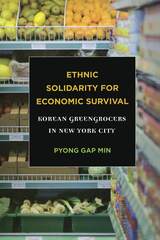 Ethnic Solidarity for Economic Survival: Korean Greengrocers in New York City
Pyong Gap Min
Russell Sage Foundation, 2008 Generations of immigrants have relied on small family businesses in their pursuit of the American dream. This entrepreneurial tradition remains highly visible among Korean immigrants in New York City, who have carved out a thriving business niche for themselves operating many of the city's small grocery stores and produce markets. But this success has come at a price, leading to dramatic, highly publicized conflicts between Koreans and other ethnic groups. In Ethnic Solidarity for Economic Survival, Pyong Gap Min takes Korean produce retailers as a case study to explore how involvement in ethnic businesses—especially where it collides with the economic interests of other ethnic groups—powerfully shapes the social, cultural, and economic unity of immigrant groups. Korean produce merchants, caught between white distributors, black customers, Hispanic employees, and assertive labor unions, provide a unique opportunity to study the formation of group solidarity in the face of inter-group conflicts. Ethnic Solidarity for Economic Survival draws on census and survey data, interviews with community leaders and merchants, and a review of ethnic newspaper articles to trace the growth and evolution of Korean collective action in response to challenges produce merchants received from both white suppliers and black customers. When Korean produce merchants first attempted to gain a foothold in the city's economy, they encountered pervasive discrimination from white wholesale suppliers at Hunts Point Market in the Bronx. In response, Korean merchants formed the Korean Produce Association (KPA), a business organization that gradually evolved into a powerful engine for promoting Korean interests. The KPA used boycotts, pickets, and group purchasing to effect enduring improvements in supplier-merchant relations. Pyong Gap Min returns to the racially charged events surrounding black boycotts of Korean stores in the 1990s, which were fueled by frustration among African Americans at a perceived economic invasion of their neighborhoods. The Korean community responded with rallies, political negotiations, and publicity campaigns of their own. The disappearance of such disputes in recent years has been accompanied by a corresponding reduction in Korean collective action, suggesting that ethnic unity is not inevitable but rather emerges, often as a form of self-defense, under certain contentious conditions. Solidarity, Min argues, is situational. This important new book charts a novel course in immigrant research by demonstrating how business conflicts can give rise to demonstrations of group solidarity. Ethnic Solidarity for Economic Survival is at once a sophisticated empirical analysis and a riveting collection of stories—about immigration, race, work, and the American dream.
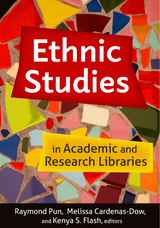 Ethnic Studies in Academic and Research Libraries
Raymond Pun
Association of College & Research Libraries, 2021 Supporting ethnic studies is an opportunity to uplift diverse stories and perspectives and to build and affirm such communities and their voices, experiences, and histories. Ethnic studies librarianship requires engagement, a desire to listen and engage with one’s constituents, and a focused approach to re-humanizing and emphasizing the voices of those who are being studied. Race and ethnicity, despite their abstractness, have real, concrete meaning and consequences in American society. Being able to see who speaks and who is silenced matters, and ethnic studies librarianship supports the intellectual journey of students in becoming aware of the various ways we see the world and the numerous stories we tell and come across in our lifetime. Ethnic Studies in Academic and Research Libraries serves as a snapshot of critical work that library workers are doing to support ethnic studies, including areas focusing on ethnic and racial experiences across the disciplines. Other curriculums or programs may emphasize race, migration, and diasporic studies, and these intersecting areas are highlighted to ensure work supporting ethnic studies is not solely defined by a discipline, but by commitment to programs that uplift underserved and underrepresented ethnic communities and communities of color. Twenty chapters are broken into three thorough sections: - Instruction, Liaison Engagement, and Outreach
- Collections Projects and Programs
- Collaborations, Special Projects, and Community Partnerships
Ethnic studies programs, faculty, and students can lack visibility in librarianship, though there are many opportunities to engage with and support these interdisciplinary and multidisciplinary programs. Ethnic Studies in Academic and Research Libraries captures case studies, programs, and engagements within the field(s) of ethnic studies and how library workers are creating and documenting important support services and resources for these communities of learners, scholars, activists, and educators. We need to think critically about how we support ethnic studies and our faculty colleagues in these departments, especially during challenging times in fiscal crises and the systemic violence and oppression that occurs in higher education, in our institutions, in our communities, in our profession, and in our histories. What we collect, preserve, share, and uplift reflects who we are and our priorities.
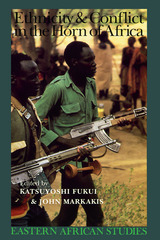 Ethnicity and Conflict in the Horn of Africa
Katsuyoshi Fukui
Ohio University Press, 1994 Conflicts in the Horn have all too often dominated press coverage of Africa. This book exposes the subtle and ambiguous role ethnicity can plan in social conflict, a role that is nowhere as simple and direct as commonly assumed. Social conflict is routinely attributed to ethnic differentiation because dividing lines between rival groups often follow ethnic contours and cultural symbolism has proved a potent ideological weapon. The purpose of this book is to examine the nature of the bond linking ethnicity to conflict in a variety of circumstances. The diverse groups are involved in confrontations at different levels and varying intensity, ranging from elemental struggles for physical survival of groups at the margin of society, to contests for state power and control of resources at the center. These ten studies from Sudan, Ethiopia, Uganda, and Kenya are based on primary research by anthropologists and historians who have long experience of the region. The insights gained from this comparative work help to refine common assumptions about conflict among ethnic groups.
Ethnicity and Democracy in Africa
Bruce Berman
Ohio University Press, 2004 The politics of identity and ethnicity will remain a fundamental characteristic of African modernity. For this reason, historians and anthropologists have joined political scientists in a discussion about the ways in which democracy can develop in multicultural societies. In Ethnicity and Democracy in Africa, the contributors address why ethnicity represents a political problem, how the problem manifests itself, and which institutional models offer ways of ameliorating the challenges that ethnicity poses to democratic nation-building.
Ethnicity and Democracy in the Eastern Himalayan Borderland: Constructing Democracy
Mona Chettri
Amsterdam University Press, 2017 This book presents a close look at the growth, success, and proliferation of ethnic politics on the peripheries of modern South Asia, built around a case study of the Nepal ethnic group that lives in the borderlands of Sikkim, Darjeeling, and east Nepal. Grounded in historical and ethnographic research, it critically examines the relationship between culture and politics in a geographical space that is home to a diverse range of ethnic identities, showing how new modes of political representation, cultural activism, and everyday politics have emerged from the region.
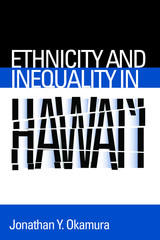 Ethnicity and Inequality in Hawai'i
Jonathan Y. Okamura
Temple University Press, 2008 Challenging the dominant view of Hawai’i as a “melting pot paradise”—a place of ethnic tolerance and equality—Jonathan Okamura examines how ethnic inequality is structured and maintained in island society. He finds that ethnicity, not race or class, signifies difference for Hawaii’s people and therefore structures their social relations. In Hawai’i, residents attribute greater social significance to the presumed cultural differences between ethnicities than to more obvious physical differences, such as skin color. According to Okamura, ethnicity regulates disparities in access to resources, rewards, and privileges among ethnic groups, as he demonstrates in his analysis of socioeconomic and educational inequalities in the state. He shows that socially and economically dominant ethnic groups—Chinese Americans, Japanese Americans, and Whites—have stigmatized and subjugated the islands’ other ethnic groups—especially Native Hawaiians, Filipino Americans, and Samoans. He demonstrates how ethnic stereotypes have been deployed against ethnic minorities and how these groups have contested their subordinate political and economic status by articulating new identities for themselves.
 Ethnicity and Medical Care
Alan Harwood
Harvard University Press, 1981 Ethnicity and Medical Care equips health professionals with the ethnographic data they need to deliver better health care within American communities of urban blacks, Chinese, Haitians, Italians, Mexicans, Navajos, and Puerto Ricans. Each chapter, dealing in turn with one of these seven American subcultures, reviews the available demographic and epidemiological data and examines sociocultural influences on each major phase of illness.
Topics range from culture-specific syndromes such as susto or “evil eye,” to concepts of disease based on blood perturbations or God's punishment, to lay-referral networks, consultation of mainstream and non-mainstream sources of medical care, and adherence to treatment regimens. But ethnic behavior often entails general styles of interaction—attitudes toward authority figures, sex-role allocations, and ways of expressing emotion and asking for help—that are carried over into the healthcare setting. Accordingly, Ethnicity and Medical Care also offers general guidelines for providing more personalized, culturally relevant care for any ethnically affiliated patient.
 Ethnicity and National Identity: Demographic and Socioeconomic Characteristics of Persons with Ukrainian Mother Tongue in the United States, 1970
Oleh Wolowyna
Harvard University Press This is the first quantitative analysis of the demographic and socioeconomic characteristics of a representative sample of Ukrainians in the United States. The studies are based on data from the 1970 U. S. population census (persons with Ukrainian mother tongue) with additional results from the 1980 census (persons of Ukrainian ancestry).
The volume consists of a selection of articles presented at a conference at Harvard University. Among the authors are such well-known demographers as Frances Kobrin, Basil Zimmer, and Charles Keely, as well as specialists on the Ukrainian-American community such as Myron Kuropas, Volodimir Bandera, and Wsevolod Isajiw.
The articles offer in-depth analyses of geographic distribution, fertility and marital status, socioeconomic characteristics, housing characteristics, and family structure. Here, for the first time, is a discussion of the present and future of Ukrainians in the United States and their role in American society that is based on solid statistical data.
 Ethnicity and Nationalism: Anthropological Perspectives
Thomas Hylland Eriksen
Pluto Press, 2010 Ethnicity and nationalism are pervasive features of the contemporary world, but how far is ethnicity a result of cultural differences, and how much is it in fact dependent on the practical use of, and belief in, such differences? In this book, Thomas Hylland Eriksen demonstrates that far from being an immutable property of groups, ethnicity is a dynamic and shifting aspect of social relationships. Drawing on a wide range of classic and recent studies in anthropology and sociology, Eriksen examines the relationship between ethnicity, class, gender and nationhood and more in a lucid and comprehensive manner.
A core text for all students of social anthropology and related subjects, Ethnicity and Nationalism has been a leading introduction to the field since its original publication in 1993. This new edition - expanded and thoroughly revised - is indispensable to anyone seriously interested in understanding ethnic phenomena. New topics covered include cultural property rights, the role of genetics in the public understanding of identification, commercialisation of identity, and the significance of the internet.
Ethnicity and the American Cemetery
Richard Meyer
University of Wisconsin Press, 1993 Cemeteries are open cultural texts, available to be read and appreciated by anyone who takes the time to learn their special language. Ethnicity and the American Cemetery explores the manner in which ethnic groups in America have made their cemeteries a most eloquent voice for the expression of values and worldviews.
Contributors examine the material objects found within the cemeteries, as well as the customary practices bound to them. Contributors are from the fields of folklore, cultural history, historical archaeology, landscape architecture, and philosophy. Heavily illustrated, the volume also features an extensive annotated bibliography.
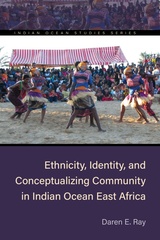 Ethnicity, Identity, and Conceptualizing Community in Indian Ocean East Africa
Daren E. Ray
Ohio University Press, 2023 This volume explores how the people of littoral East Africa imagined and reimagined their communities over two millennia of engagement with Indian Ocean transformations—from the settlement of Bantu speakers near the coast around the first century CE to their participation in transoceanic commerce, imperial rivalries, colonial projects, and decolonization movements in the mid-twentieth century. Like other histories of the Indian Ocean, it emphasizes the circulation of people and ideas, but its cis-oceanic approach demonstrates how these littoral communities continued to integrate strategies from those in Africa’s interior as well as from people who traveled the ocean. The book also clarifies the precise relationship between ethnicity and other kinds of identities by expanding the conventional focus on Swahili people to speakers of Sabaki Bantu languages, as well as to Mijikenda, Pokomo, and Elwana communities, whom Indian Ocean scholars often overlook. By examining all these groups’ shared linguistic heritage, the book outlines their forebears’ innovation and transformation of lineages, clans, confederations, councils, title societies, age sets, moieties, religious sects, and tribes. Drawing together evidence from linguistics, archaeology, ethnography, oral traditions, travelers’ accounts, and colonial records, the book explores how the speakers of Sabaki languages continuously reconceptualized their identities in littoral East Africa as the political topography of the Indian Ocean world changed around them. Moving seamlessly across multiple precolonial and colonial eras and beyond, this deep history of collaboration and political imagination leads readers through the transitions of identity that mattered to littoral East Africans. The book fills the need for an updated synthesis of East Africans’ engagements with diasporic communities in Indian Ocean and world history courses. In addition, since most African history publications for classroom use in recent years have focused exclusively on modern times, it satisfies the demand for works that span the early and modern eras. Beyond the classroom, the book will interest specialists in the history of the Indian Ocean, Africa, Islam, imperialism, and ethnohistory. A major contribution of this multidisciplinary work is to present the research of archaeologists, anthropologists, linguists, and historians to one another in an accessible, jargon-free manner. While Africanists will appreciate how the book expands the boundaries of the Indian Ocean to include oft-ignored communities, Indian Ocean specialists will find models for investigating the construction of ethnicity and other collective identities across multiple centuries.
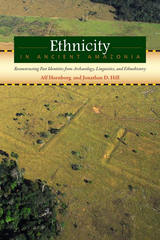 Ethnicity in Ancient Amazonia: Reconstructing Past Identities from Archaeology, Linguistics, and Ethnohistory
Alf Hornborg
University Press of Colorado, 2011 A transdisciplinary collaboration among ethnologists, linguists, and archaeologists, Ethnicity in Ancient Amazonia traces the emergence, expansion, and decline of cultural identities in indigenous Amazonia. Hornborg and Hill argue that the tendency to link language, culture, and biology--essentialist notions of ethnic identities--is a Eurocentric bias that has characterized largely inaccurate explanations of the distribution of ethnic groups and languages in Amazonia. The evidence, however, suggests a much more fluid relationship among geography, language use, ethnic identity, and genetics. In Ethnicity in Ancient Amazonia, leading linguists, ethnographers, ethnohistorians, and archaeologists interpret their research from a unique nonessentialist perspective to form a more accurate picture of the ethnolinguistic diversity in this area. Revealing how ethnic identity construction is constantly in flux, contributors show how such processes can be traced through different ethnic markers such as pottery styles and languages. Scholars and students studying lowland South America will be especially interested, as will anthropologists intrigued by its cutting-edge, interdisciplinary approach.
Ethnicity in Michigan: Issues and People
Jack Glazier
Michigan State University Press, 2001 As the introductory volume in the series Discovering the Peoples of Michigan, Ethnicity in Michigan outlines the processes of migration, as well as the rich relationship between ethnic groups and the trajectories of historical and social change in Michigan. On both state and local levels, issues of identity, race, politics, and shared history inform community development. Jack Glazier and Arthur Helweg provide a substantive general and theoretical overview of the various ethnic groups in Michigan, and of the ways in which immigrants both respond to and shape Michigan's particular regional character.
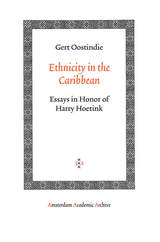 Ethnicity in the Caribbean: Essays in Honor of Harry Hoetink
Edited by Gert Oostindie
Amsterdam University Press, 2006 Race and biologized conceptions of ethnicity have been potent factors in the making of the Americas. They remain crucial, even if more ambiguously than before. This collection of essays addresses the workings of ethnicity in the Caribbean, a part of the Americas where, from the early days of empire through today’s post-colonial limbo, this phenomenon has arguably remained in the center of public society as well as private life. These analyses of race and nation-building, increasingly significant in today’s world, are widely pertinent to the study of current and international relations.
The ten prominent scholars contributing to this book focus on the significance of ethnicity for social structure and national identity in the Caribbean. Their essays span a period from the initial European colonization right through today’s paradoxical balance sheet of decolonization. They deal with the entire region as well as the significance of the diaspora and the continuing impact of metropolitan linkages. The topics addressed vary from the international repercussions of Haiti’s black revolution through the position of French Caribbean békés and the Barbadian ‘redlegs’ to race in revolutionary Cuba; from Puerto Rican dance etiquette through the Latin American and Caribbean identity essay to the discourse of Dominican nationhood; and from a musée imaginaire in Guyane through Jamaica’s post independence culture to the predicament of Dutch Caribbean decolonization. Taken together, these essays provide a rare and extraordinarily rich comparative perspective to the study of ethnicity as a crucial factor shaping both intimate relations and the public and even international dimension of Caribbean societies.
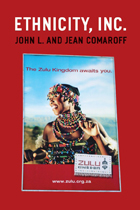 Ethnicity, Inc.
John L. Comaroff and Jean Comaroff
University of Chicago Press, 2009 In Ethnicity, Inc. anthropologists John L. and Jean Comaroff analyze a new moment in the history of human identity: its rampant commodification. Through a wide-ranging exploration of the changing relationship between culture and the market, they address a pressing question: Wherein lies the future of ethnicity? Their account begins in South Africa, with the incorporation of an ethno-business in venture capital by a group of traditional African chiefs. But their horizons are global: Native American casinos; Scotland’s efforts to brand itself; a Zulu ethno-theme park named Shakaland; a world religion declared to be intellectual property; a chiefdom made into a global business by means of its platinum holdings; San “Bushmen” with patent rights potentially worth millions of dollars; nations acting as commercial enterprises; and the rapid growth of marketing firms that target specific ethnic populations are just some of the diverse examples that fall under the Comaroffs’ incisive scrutiny. These phenomena range from the disturbing through the intriguing to the absurd. Through them, the Comaroffs trace the contradictory effects of neoliberalism as it transforms identities and social being across the globe. Ethnicity, Inc. is a penetrating account of the ways in which ethnic populations are remaking themselves in the image of the corporation—while corporations coopt ethnic practices to open up new markets and regimes of consumption. Intellectually rigorous but leavened with wit, this is a powerful, highly original portrayal of a new world being born in a tectonic collision of culture, capitalism, and identity.
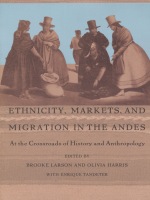 Ethnicity, Markets, and Migration in the Andes: At the Crossroads of History and Anthropology
Brooke Larson, Olivia Harris, and Enrique Tandeter, eds.
Duke University Press, 1995 Until now, Andean peasants have primarily been thought of by scholars as isolated subsistence farmers, "resistant" to money and to different markets in the region. Ethnicity, Markets, and Migration in the Andes overturns this widely held assumption and puts in its place a new perspective as it explores the dynamic between Andean cultural, social, and economic practices and the market forces of a colonial and postcolonial mercantile economy.
Bringing together the work of outstanding scholars in Andean history, anthropology, and ethnohistory, these pioneering essays show how, from the very earliest period of Spanish rule, Andean peasants and their rulers embraced the new economic opportunities and challenged or subverted the new structures introduced by the colonial administration. They also convincingly explain why in the twentieth century the mistaken idea developed that Andean peasants were conservative and unable to participate effectively in different markets, and reveal how closely ethnic inequalities were tied to evolving market relations. Inviting a critical reconsideration of ethnic, class, and gender issues in the context of rural Andean markets, this book will revise the prevailing view of Andean history and provide a more fully informed picture of the complex mercantile activities of Andean peasants.
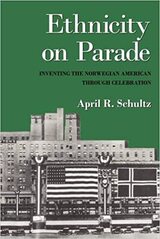 Ethnicity on Parade: Inventing the Norwegian American through Celebration
April R. Schultz
University of Massachusetts Press, 2009 Why do people at certain historical moments choose to define themselves in terms of their ethnicity? What concrete concerns are embedded in such identification? What does the creation of this identity mean in the larger context of history and social relationships?
These are some of the questions April R. Schultz addresses in this interdisciplinary study of the way in which ethnic identity has been shaped and expressed in American culture. Drawing on the work of historians, anthropologists, literary critics, and cultural theorists, Schultz analyzes one national celebration—the 1925 Norwegian-American Immigration Centennial—as a strategic site for the invention of ethnicity. She shows how Norwegian Americans used this ceremony to create a distinctive vision of their past and present—a social and cultural construction that both accommodated and resisted dominant Anglo-American conceptions of assimilation.
By taking a close look at the experiences of a white, middle-class, Protestant ethnic community, this book challenges many assumptions about the "Americanization" of immigrant groups and offers new insight into the uses of historical memory.
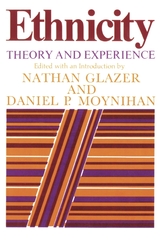 Ethnicity: Theory and Experience
Nathan Glazer
Harvard University Press, 1975 This volume launches a far-reaching exploration into the meaning, manifestations, and significance of ethnicity in modern society and politics. The authors seek neither to celebrate nor to deplore ethnicity, but rather to examine it as a basis of social organization which in modern societies has achieved a significance comparable to that of social class. Ethnicity indicates that minority groups around the world are no longer doing what society for hundreds of years has expected them to do—assimilate, disappear, or endure as exotic, troublesome survivors. Instead, their numbers expanded by immigration, their experiences and struggles mirrored to one another by the international mass media, minorities have become vital, highly conscious forces within almost all contemporary societies.
Ethnicity has played a pivotal role in recent social change; it has evolved into a political idea, a mobilizing principle, and an effective means of advancing group interests. Together with Glazer and Moynihan, Harold Isaacs, Talcott Parsons, Martin Kilson, Orlando Patterson, Daniel Bell, Milton Esman, Milton Gordon, William Petersen, and others bring analytic clarity to the rich concept of “ethnicity.” Their effort to explain why ethnic identity has become more salient, ethnic self-assertion stronger, and ethnic conflict more intense helps to develop a catholic view of ethnicity: this surpasses limited categories of race and nationality; includes the old world and the new, economically developed as well as developing nations; and offers a broad variety of theoretical approaches. Presenting the readers with a wealth of perceptions, points of view, and examples, Ethnicity: Theory and Experience will provoke discussion and argument for years to come.
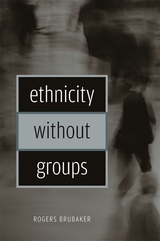 Ethnicity without Groups
Rogers Brubaker
Harvard University Press, 2004 Despite a quarter-century of constructivist theorizing in the social sciences and humanities, ethnic groups continue to be conceived as entities and cast as actors. Journalists, policymakers, and researchers routinely frame accounts of ethnic, racial, and national conflict as the struggles of internally homogeneous, externally bounded ethnic groups, races, and nations. In doing so, they unwittingly adopt the language of participants in such struggles, and contribute to the reification of ethnic groups.
In this timely and provocative volume, Rogers Brubaker—well known for his work on immigration, citizenship, and nationalism—challenges this pervasive and commonsense “groupism.” But he does not simply revert to standard constructivist tropes about the fluidity and multiplicity of identity. Once a bracing challenge to conventional wisdom, constructivism has grown complacent, even cliched. That ethnicity is constructed is commonplace; this volume provides new insights into how it is constructed. By shifting the analytical focus from identity to identifications, from groups as entities to group-making projects, from shared culture to categorization, from substance to process, Brubaker shows that ethnicity, race, and nation are not things in the world but perspectives on the world: ways of seeing, interpreting, and representing the social world.
 Ethno Music Gatherings: Pedagogy Experience, Impact
Edited by Lee Higgins and Sarah Jane Gibson
Intellect Books, 2024 A close look at a long-running international music program.
This book presents key findings from a four-year project that sought to understand Ethno, an organized residential folk, world, and traditional music program for young people ranging in age from eighteen to thirty. First held in Sweden in 1990, Ethno now hosts gatherings in more than forty countries. The authors examine the complexity of an Ethno music experience with three focuses: pedagogy and professional development, participant experience, and impact beyond the gathering.
Drawing on data from participant observations, interviews, social media analysis, onsite and video observations, surveys, and questionnaires, the authors ask critical questions concerning Ethno’s history, ethos, pedagogy, and philosophical ideals. Considering its history and current practices, the following themes are explored: non-formal music making, personal authenticity, holistic praxis, musical possible selves, intercultural music exchange, sustainability, social media engagement, song sharing, and future practices. As a collection of integrated thought, the book’s purpose is to illuminate new understandings of what Ethno does and in so doing present synergies and divergencies with the wider field of music education.
Ethnobiology at the Millennium: Past Promise and Future Prospects
Edited by Richard I. Ford
University of Michigan Press, 2001 A collection of papers from the Ethnobiology 2000 millennium conference in Ann Arbor. Contributions by Richard Ford, Elizabeth Wing, Steven Weber, Paul Minnis, Karen Adams, Eugene Hunn, Cecil Brown, Catherine Fowler, Nancy Turner, and Eugene Anderson.
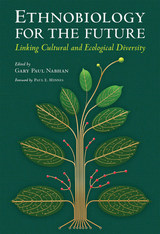 Ethnobiology for the Future: Linking Cultural and Ecological Diversity
Edited by Gary Paul Nabhan; Foreword by Paul E. Minnis
University of Arizona Press, 2016 Ethnobiology holds a special place in the hearts and minds of many because of its dedication to celebrating the knowledge and values of some of the most distinctive cultural practices in some of the most distinctive places on Earth. Yet we live in a world of diminishing natural and linguistic diversity. Whether due to climate change or capitalism, homogeneity is trumping the once-resplendent heterogeneity all around us.
In this important new collection, Gary Paul Nabhan puts forth a call for the future not only of ethnobiology but for the entire planet. He articulates and broadens the portfolio of ethnobiological principles and amplifies the tool kit for anyone engaged in the ethnobiosphere, those vital spaces of intense interaction among cultures, habitats, and creatures.
The essays are grouped into a trio of themes. The first group presents the big questions facing humanity, the second profiles tools and methodologies that may help to answer those questions, and the third ponders how to best communicate these issues not merely to other scholars, but to society at large. The essays attest to the ways humans establish and circumscribe their identities not only through their thoughts and actions, but also with their physical, emotional, and spiritual attachments to place, flora, fauna, fungi, and feasts.
Nabhan and his colleagues from across disciplines and cultures encourage us to be courageous enough to include ethical, moral, and even spiritual dimensions in work regarding the fate of biocultural diversity. The essays serve as cairns on the critical path toward an ethnobiology that is provocative, problem-driven, and, above all, inspiring.
The Ethnobotanical Laboratory at the University of Michigan
Melvin R. Gilmore
University of Michigan Press, 1932 In 1932, with this slim but important volume, the University of Michigan Museum of Anthropology began its publication series.Melvin R. Gilmore, a preeminent ethnobotanist, joined the Museum as its first curator of ethnology in 1929 and in 1930 established the Ethnobotanical Laboratory: the largest such collection in North America. He became director of the laboratory in 1938. In this volume, he discusses the establishment of the laboratory and the importance of ethnobotanical research.Nearly a century later, the Ethnobotanical Laboratory is still unique for its extensive collection of archaeological and systematic comparative wood, seeds, and plant parts from around the world, and for its ethnographic examples of how traditional cultures collect, store, process, and use these plants.
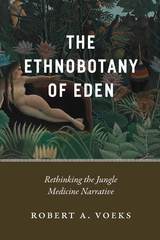 The Ethnobotany of Eden: Rethinking the Jungle Medicine Narrative
Robert A. Voeks
University of Chicago Press, 2018 In the mysterious and pristine forests of the tropics, a wealth of ethnobotanical panaceas and shamanic knowledge promises cures for everything from cancer and AIDS to the common cold. To access such miracles, we need only to discover and protect these medicinal treasures before they succumb to the corrosive forces of the modern world. A compelling biocultural story, certainly, and a popular perspective on the lands and peoples of equatorial latitudes—but true? Only in part. In The Ethnobotany of Eden, geographer Robert A. Voeks unravels the long lianas of history and occasional strands of truth that gave rise to this irresistible jungle medicine narrative.
By exploring the interconnected worlds of anthropology, botany, and geography, Voeks shows that well-intentioned scientists and environmentalists originally crafted the jungle narrative with the primary goal of saving the world’s tropical rainforests from destruction. It was a strategy deployed to address a pressing environmental problem, one that appeared at a propitious point in history just as the Western world was taking a more globalized view of environmental issues. And yet, although supported by science and its practitioners, the story was also underpinned by a persuasive mix of myth, sentimentality, and nostalgia for a long-lost tropical Eden. Resurrecting the fascinating history of plant prospecting in the tropics, from the colonial era to the present day, The Ethnobotany of Eden rewrites with modern science the degradation narrative we’ve built up around tropical forests, revealing the entangled origins of our fables of forest cures.
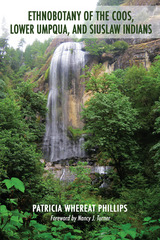 Ethnobotany of the Coos, Lower Umpqua, and Siuslaw Indians
Patricia Whereat-Phillips
Oregon State University Press, 2016 Myrtlewood is most often thought of as beautiful wood for woodworking, but to Native people on the southern Oregon coast it was an important source of food. The roasted nuts taste like bitter chocolate, coffee, and burnt popcorn. The roots of Skunk Cabbage provided another traditional food source, while also serving as a medicine for colds. In tribal mythology, the leaves of Skunk Cabbage were thought to be tents where the Little People sheltered.
Very little has been published until now on the ethnobotany of western Oregon indigenous peoples. Ethnobotany of the Coos, Lower Umpqua, and Siuslaw Indians documents the use of plants by these closely-related coastal tribes, covering a geographical area that extends roughly from Cape Perpetua on the central coast, south to the Coquille River, and from the Coast Range west to the Pacific shore. With a focus on native plants and their traditional uses, it also includes mention of farming crops, as well as the highly invasive Himalayan blackberry, which some Oregon coast Indians called the "white man's berry."
The cultures of the Coos Bay, Lower Umpqua and Siuslaw are distinct from the Athabaskan speaking people to the south, and the Alsea to the north. Today, many tribal members are reviving ancient arts of basket weaving and woodworking, and many now participate in annual intertribal canoe events. Ethnobotany of the Coos, Lower Umpqua, and Siuslaw Indians contributes to this cultural renaissance by filling an important gap in the historical record. It is an invaluable resource for anyone who wishes to learn about the indigenous cultures of the central and southern Oregon coast, as well as those who are interested in Pacific Northwest plants and their cultural uses.
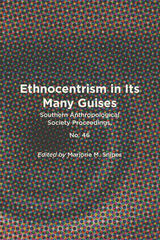 Ethnocentrism in Its Many Guises: Southern Anthropological Society Proceedings, No. 46
Marjorie M. Snipes
University of Tennessee Press, 2021 Ethnocentrism in Its Many Guises gathers essays on a topic of urgent concern. Marjorie Snipes’s introduction chronicles the treatment of ethnocentrism within the discipline of anthropology. Christine Kovic decries the ethnocentrism codified in immigration law that has led to thousands of deaths at the US–Mexico border. Brandon Lundy’s and Kezia Darkwah’s ethnographic research among labor migrants in Cabo Verde demonstrates how communities undergoing immigration pressures react to outsiders in complex ways. Yeju Choi contends that Canada’s Truth and Reconciliation Commission failed to heal the wounds inflicted by a century of cultural genocide because the process did not fully engage and respect the worldview of Aboriginal peoples. Using the example of Rapa Nui, Kathleen and Daniel Ingersoll note how we project and privilege our own values when we observe other cultures and historical periods. Ayla Samli argues that both the nutritionally deficient Standard American Diet and our federal supplemental nutrition programs are limited and ethnocentric. Michael Blum explains how the Wu-Tang Clan’s music can be understood as a site of resistance against American racism.
These papers were presented at the 2017 annual meeting of the Southern Anthropological Society (SAS) in Carrollton, Georgia.
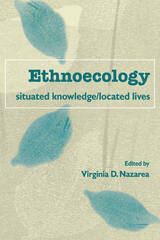 Ethnoecology: Situated Knowledge/Located Lives
Virginia D. Nazarea
University of Arizona Press, 1999 The re-emerging field of ethnoecology offers a promising way to document and analyze human-environment interactions. This collection brings the discipline into sharp focus, conveying local understandings of environments and proposing a way of looking at the relationship between humans and the natural world that emphasizes the importance of cognition in shaping behavior. Case studies by international experts explore the varied views of scholars on the human dimension of conversation and the different views of local peoples regarding their own environments. Filled with peoples' voices from North and South America, Africa, and Asia, these cases cover a range of issues: natural resource conservation and sustainable development, the relationship between local knowledge and biodiversity, the role of the commons in development, and the importance of diversity and equity in environmental management. As the only volume to address the status of this increasingly multidisciplinary field—especially as it relates to the differential power of multiple stakeholders—Ethnoecology: Situated Knowledge/Located Lives is intended for a wide range of specialists not only in social and natural sciences but also in agricultural studies. It conveys the overriding importance of this powerful methodological approach in providing insiders' perspectives on their environment and how they manage it. CONTENTS
1. Introduction. A View from a Point: Ethnoecology as Situated Knowledge, Virginia D. Nazarea
2. The Value of Subsistence for the Future of the World, Eugene S. Hunn
3. Practical and Religious Meanings of the Navajo Hogan, Lillie Lane
4. The Agronomy of Memory and the Memory of Agronomy: Ritual Conservation of Archaic Cultigens in Contemporary Farming Systems, Michael R. Dove
5. Ethnoecology Serving the Community: A Case Study from Zuni Pueblo, New Mexico, Richard I. Ford
6. Lenses and Latitudes in Landscapes and Lifescapes, Virginia D. Nazarea
7. Cultural Landscapes and Biodiversity: The Ethnoecology of an Upper R¡o Grande Watershed Commons, Devon G. Peña
8. Conserving Folk Crop Varieties: Different Agricultures, Different Goals, Daniela Soleri and Steven E. Smith
9. Plant Constituents and the Nutrition and Health of Indigenous Peoples, Timothy Johns
10. Sustainable Production and Harvest of Medicinal and Aromatic Herbs in the Sierras de C¢rdoba Region, Argentina, Marta Lagrotteria and James M. Affolter
11. Managing the Maya Commons: The Value of Local Knowledge, Scott Atran
12. Safeguarding Traditional Resource Rights of Indigenous Peoples, Darrell A. Posey
13. A Practical Primer on Intellectual Property Rights in a Contemporary Ethnoecological Context, David J. Stephenson, Jr.
14. Toward Compensation: Returning Benefits from Ethnobotanical Drug Discovery to Native Peoples, Katy Moran
15. Am I My Brother's Keeper?, Christine S. Kabuye
16. Epilogue. Quo Vadis? The Promise of Ethnoecology, Robert E. Rhoades and Jack Harlan
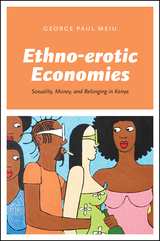 Ethno-erotic Economies: Sexuality, Money, and Belonging in Kenya
George Paul Meiu
University of Chicago Press, 2017 Ethno-erotic Economies explores a fascinating case of tourism focused on sex and culture in coastal Kenya, where young men deploy stereotypes of African warriors to help them establish transactional sexual relationships with European women. In bars and on beaches, young men deliberately cultivate their images as sexually potent African men to attract women, sometimes for a night, in other cases for long-term relationships.
George Paul Meiu uses his deep familiarity with the communities these men come from to explore the long-term effects of markets of ethnic culture and sexuality on a wide range of aspects of life in rural Kenya, including kinship, ritual, gender, intimate affection, and conceptions of aging. What happens to these communities when young men return with such surprising wealth? And how do they use it to improve their social standing locally? By answering these questions, Ethno-erotic Economies offers a complex look at how intimacy and ethnicity come together to shape the pathways of global and local trade in the postcolonial world.
 The Ethnographer's Way: A Handbook for Multidimensional Research Design
Kristin Peterson and Valerie Olson
Duke University Press, 2024 The Ethnographer’s Way guides researchers through the exciting process of turning an initial idea into an in-depth research project. Kristin Peterson and Valerie Olson introduce “multidimensioning,” a method for planning projects that invites scholars to examine their research interests from all angles. Researchers learn to integrate seemingly disparate groups, processes, sites, and things into a unified conceptual framework. The handbook’s ten modules walk readers step-by-step, from the initial lightbulb moment to constructing research descriptions, planning data gathering, writing grant and dissertation proposals, and preparing for fieldwork. Designed for ethnographers and those working across disciplines, these modules provide examples of multidimensional research projects with exercises readers can utilize to formulate their own projects. The authors incorporate group work into each module to break the isolation common in academic project design. In so doing, Peterson and Olson’s handbook provides essential support and guidance for researchers working at all levels and stages of a project.
Ethnographic Chiasmus: Essays on Culture, Conflict and Rhetoric
Ivo Strecker
Michigan State University Press, 2011 The essays assembled in this volume are shaped by conditions—both enabling and constraining—that can perhaps best be described as an “ethnographic chiasmus.” This expression refers to the surprise and reversal of position that are characteristic of fieldwork, and it attends to the fact that transcultural understanding comes about as a meeting, touching, or “crossing.” Chiasmus also pertains to the relationship between culture and rhetoric in general. Culture structures rhetoric; rhetoric structures culture. Both are coemergent. In order to elucidate this process, ethnography has to focus on the manifold modes of rhetoric through which culture-specific patterns of thought and action are created.
 Ethnographic Contributions to the Study of Endangered Languages
Edited by Tania Granadillo and Heidi A. Orcutt-Gachiri
University of Arizona Press, 2011 It is a feature of the twenty-first century that world languages are displacing local languages at an alarming rate, transforming social relations and complicating cultural transmission in the process. This language shift—the gradual abandonment of minority languages in favor of national or international languages—is often in response to inequalities in power, signaling a pressure to conform to the political and economic structures represented by the newly dominant languages. In its most extreme form, language shift can result in language death and thus the permanent loss of traditional knowledge and lifeways.
To combat this, indigenous and scholarly communities around the world have undertaken various efforts, from archiving and lexicography to the creation of educational and cultural programs. What works in one community, however, may not work in another. Indeed, while the causes of language endangerment may be familiar, the responses to it depend on “highly specific local conditions and opportunities.” In keeping with this premise, the editors of this volume insist that to understand language endangerment, “researchers and communities must come to understand what is happening to the speakers, not just what is happening to the language.” The eleven case studies assembled here strive to fill a gap in the study of endangered languages by providing much-needed sociohistorical and ethnographic context and thus connecting specific language phenomena to larger national and international issues.
The goal is to provide theoretical and methodological tools for researchers and organizers to best address the specific needs of communities facing language endangerment. The case studies here span regions as diverse as Kenya, Siberia, Papua New Guinea, Mexico, Venezuela, the United States, and Germany. The volume includes a foreword by linguistic anthropologist Jane Hill and an afterword by poet and linguist Ofelia Zepeda.
Ethnographic Experiments with Artists, Designers and Boundary Objects: Exhibiting the Field
Francisco Martínez
University College London, 2021 A lively investigation into ethnographic practice.
Richly illustrated, Ethnographic Experiments with Artists, Designers and Boundary Objects reflects on the experimental skills and practices shared by ethnographers and curators. Francisco Martínez highlights relationships between contemporary art, design, and anthropology and imagines creative ways to develop new infrastructure that supports vital interdisciplinary work. Attentive to the experimental nature of exhibitions, Martínez models a new approach to both ethnography and objecthood across disciplinary boundaries.
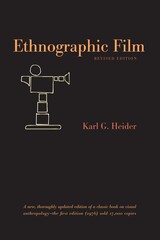 Ethnographic Film: Revised Edition
By Karl G. Heider
University of Texas Press, 2006 From reviews of the first edition: “Ethnographic Film can rightly be considered a film primer for anthropologists.”
—Choice “This is an interesting and useful book about what it means to be ethnographic and how this might affect ethnographic filmmaking for the better. It obviously belongs in all departments of anthropology, and most ethnographic filmmakers will want to read it.”
—Ethnohistory Even before Robert Flaherty released Nanook of the North in 1922, anthropologists were producing films about the lifeways of native peoples for a public audience, as well as for research and teaching. Ethnographic Film (1976) was one of the first books to provide a comprehensive introduction to this field of visual anthropology, and it quickly became the standard reference. In this new edition, Karl G. Heider thoroughly updates Ethnographic Film to reflect developments in the field over the three decades since its publication, focusing on the work of four seminal filmmakers—Jean Rouch, John Marshall, Robert Gardner, and Timothy Asch. He begins with an introduction to ethnographic film and a history of the medium. He then considers many attributes of ethnographic film, including the crucial need to present "whole acts," "whole bodies," "whole interactions," and "whole people" to preserve the integrity of the cultural context. Heider also discusses numerous aspects of making ethnographic films, from ethics and finances to technical considerations such as film versus video and preserving the filmed record. He concludes with a look at using ethnographic film in teaching.
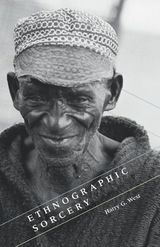 Ethnographic Sorcery
Harry G. West
University of Chicago Press, 2007 According to the people of the Mueda plateau in northern Mozambique, sorcerers remake the world by asserting the authority of their own imaginative visions of it. While conducting research among these Muedans, anthropologist Harry G. West made a revealing discovery—for many of them, West’s efforts to elaborate an ethnographic vision of their world was itself a form of sorcery. In Ethnographic Sorcery, West explores the fascinating issues provoked by this equation.
A key theme of West’s research into sorcery is that one sorcerer’s claims can be challenged or reversed by other sorcerers. After West’s attempt to construct a metaphorical interpretation of Muedan assertions that the lions prowling their villages are fabricated by sorcerers is disputed by his Muedan research collaborators, West realized that ethnography and sorcery indeed have much in common. Rather than abandoning ethnography, West draws inspiration from this connection, arguing that anthropologists, along with the people they study, can scarcely avoid interpreting the world they inhabit, and that we are all, inescapably, ethnographic sorcerers.
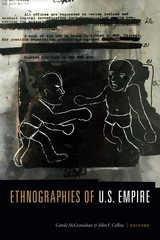 Ethnographies of U.S. Empire
Carole McGranahan and John F. Collins, editors
Duke University Press, 2018 How do we live in and with empire? The contributors to Ethnographies of U.S. Empire pursue this question by examining empire as an unequally shared present. Here empire stands as an entrenched, if often invisible, part of everyday life central to making and remaking a world in which it is too often presented as an aberration rather than as a structuring condition. This volume presents scholarship from across U.S. imperial formations: settler colonialism, overseas territories, communities impacted by U.S. military action or political intervention, Cold War alliances and fissures, and, most recently, new forms of U.S. empire after 9/11. From the Mohawk Nation, Korea, and the Philippines to Iraq and the hills of New Jersey, the contributors show how a methodological and theoretical commitment to ethnography sharpens all of our understandings of the novel and timeworn ways people live, thrive, and resist in the imperial present.
Contributors: Kevin K. Birth, Joe Bryan, John F. Collins, Jean Dennison, Erin Fitz-Henry, Adriana María Garriga-López, Olívia Maria Gomes da Cunha, Matthew Gutmann, Ju Hui Judy Han, J. Kēhaulani Kauanui, Eleana Kim, Heonik Kwon, Soo Ah Kwon, Darryl Li, Catherine Lutz, Sunaina Maira, Carole McGranahan, Sean T. Mitchell, Jan M. Padios, Melissa Rosario, Audra Simpson, Ann Laura Stoler, Lisa Uperesa, David Vine
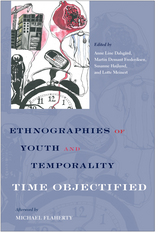 Ethnographies of Youth and Temporality: Time Objectified
Anne Line Dalsgard
Temple University Press, 2014 As we experience and manipulate time—be it as boredom or impatience—it becomes an object: something materialized and social, something that affects perception, or something that may motivate reconsideration and change. The editors and contributors to this important new book, Ethnographies of Youth and Temporality, have provided a diverse collection of ethnographic studies and theoretical explorations of youth experiencing time in a variety of contemporary socio-cultural settings. The essays in this volume focus on time as an external and often troubling factor in young people’s lives, and shows how emotional unrest and violence but also creativity and hope are responses to troubling times. The chapters discuss notions of time and its and its “objectification” in diverse locales including the Georgian Republic, Brazil, Denmark and Uganda. Based on long-term ethnographic fieldwork, the essays in Ethnographies of Youth and Temporality use youth as a prism to understand time and its subjective experience.
In the series Global Youth, edited by Craig Jeffrey and Jane Dyson
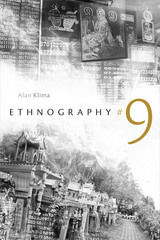 Ethnography #9
Alan Klima
Duke University Press, 2019 As Alan Klima writes in Ethnography #9, “there are other possible starting places than the earnest realism of anthropological discourse as a method of critical thought.” In this experimental ethnography of capitalism, ghosts, and numbers in mid- and late-twentieth-century Thailand, Klima uses this provocation to deconstruct naive faith in the “real” and in the material in academic discourse that does not recognize that it is, itself, writing. Klima also twists the common narrative that increasing financial abstractions in economic culture are a kind of real horror story, entangling it with other modes of abstraction commonly seen as less “real,” such as spirit consultations, ghost stories, and haunted gambling. His unconventional, distinctive, and literary form of storytelling uses multiple voices, from ethnographic modes to a first-person narrative in which he channels Northern Thai ghostly tales and the story of a young Thai spirit. This genre alchemy creates strange yet compelling new relations between being and not being, presence and absence, fiction and nonfiction, fantasy and reality. In embracing the speculative as a writing form, Klima summons unorthodox possibilities for truth in contemporary anthropology.
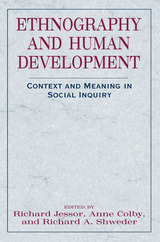 Ethnography and Human Development: Context and Meaning in Social Inquiry
Edited by Richard Jessor, Anne Colby, and Richard A. Shweder
University of Chicago Press, 1996 Studies of human development have taken an ethnographic turn in the 1990s. In this volume, leading anthropologists, psychologists, and sociologists discuss how qualitative methodologies have strengthened our understanding of cognitive, emotional, and behavioral development, and of the difficulties of growing up in contemporary society.
Part 1, informed by a post-positivist philosophy of science, argues for the validity of ethnographic knowledge. Part 2 examines a range of qualitative methods, from participant observation to the hermeneutic elaboration of texts. In Part 3, ethnographic methods are applied to issues of human development across the life span and to social problems including poverty, racial and ethnic marginality, and crime.
Restoring ethnographic methods to a central place in social inquiry, these twenty-two lively essays will interest everyone concerned with the epistemological problems of context, meaning, and subjectivity in the behavioral sciences.
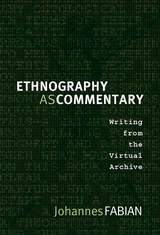 Ethnography as Commentary: Writing from the Virtual Archive
Johannes Fabian
Duke University Press, 2008 The Internet allows ethnographers to deposit the textual materials on which they base their writing in virtual archives. Electronically archived fieldwork documents can be accessed at any time by the writer, his or her readers, and the people studied. Johannes Fabian, a leading theorist of anthropological practice, argues that virtual archives have the potential to shift the emphasis in ethnographic writing from the monograph to commentary. In this insightful study, he returns to the recording of a conversation he had with a ritual healer in the Congolese town of Lubumbashi more than three decades ago. Fabian’s transcript and translation of the exchange have been deposited on a website (Language and Popular Culture in Africa), and in Ethnography as Commentary he provides a model of writing in the presence of a virtual archive. In his commentary, Fabian reconstructs his meeting with the healer Kahenga Mukonkwa Michel, in which the two discussed the ritual that Kahenga performed to protect Fabian’s home from burglary. Fabian reflects on the expectations and terminology that shape his description of Kahenga’s ritual and meditates on how ethnographic texts are made, considering the settings, the participants, the technologies, and the linguistic medium that influence the transcription and translation of a recording and thus fashion ethnographic knowledge. Turning more directly to Kahenga—as a practitioner, a person, and an ethnographic subject—and to the questions posed to him, Fabian reconsiders questions of ethnic identity, politics, and religion. While Fabian hopes that emerging anthropologists will share their fieldwork through virtual archives, he does not suggest that traditional ethnography will disappear. It will become part of a broader project facilitated by new media.
 Ethnography At The Border
Pablo Vila
University of Minnesota Press, 2003 An illuminating account of life at the U.S.-Mexico border For cultural theorists, “the border” has proven a fluid and hybrid space profitably explored for new ideas about identity, gender, and ethnicity. But for those who occupy this region, the border is not merely a metaphor, but a lived experience, yielding immediate, often pressing ambiguities, problems, and perils. Focusing on a particular area of the U.S.-Mexico border, Ciudad Juarez-El Paso, Ethnography at the Border brings out the complexity of the border experience through the voices of the diverse people who inhabit the region. In a series of ethnographic essays that investigate specific aspects of border existence, the contributors provide rich and detailed insights into such topics as life in illegal subdivisions, called colonias, in Texas; the experience of actually crossing the bridge between El Paso and Ciudad Juarez; the impact of Operation Blockade on illegal crossings; the controversy surrounding the El Paso Border Patrol’s proposal for a border wall in Sunland Park; the paradoxes of making “American products” using Mexican workers; and the relevance of grassroots efforts, environmental problems, and the multiple meanings of “Mexican.” The final chapter offers a critique of the all too metaphorical border often depicted by cultural studies. Painstakingly conveying how the border looks and feels to those on both sides, Ethnography at the Border transmutes statistics on migration, labor markets, and economic trends—as well as conceptualizations of cross-cultural identities—into the experience, the observations, and the troubling lessons of border life.Contributors: Eduardo Barrera, U of Texas, El Paso, and El Colegio de la Frontera Norte; Jessica Chapin, U of Texas, Austin; Tim J. Dunn, Salisbury U; Sarah Hill, Western Michigan U; Victor M. Ortiz, Northeastern Illinois U at Chicago; John A. Peterson, U of Texas, El Paso; Leslie Salzinger, U of Chicago; David Spener, Trinity U; María Socorro Tabuenca Córdoba, El Colegio de la Frontera Norte; Melissa W. Wright, Penn State U.
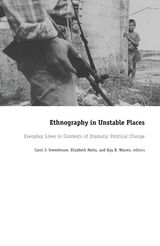 Ethnography in Unstable Places: Everyday Lives in Contexts of Dramatic Political Change
Carol J. Greenhouse, Elizabeth Mertz, and Kay B. Warren, eds.
Duke University Press, 2002 Ethnography in Unstable Places is a collection of ethnographic accounts of everyday situations in places undergoing dramatic political transformation. Offering vivid case studies that range from the Middle East and Africa to Europe, Russia, and Southeast Asia, the contributing anthropologists narrate particular circumstances of social and political transformation—in contexts of colonialism, war and its aftermath, social movements, and post–Cold War climates—from the standpoints of ordinary people caught up in and having to cope with the collapse or reconfiguration of the states in which they live. Using grounded ethnographic detail to explore the challenges to the anthropological imagination that are posed by modern uncertainties, the contributors confront the ambiguities and paradoxes that exist across the spectrum of human cultures and geographies. The collection is framed by introductory and concluding chapters that highlight different dimensions of the book’s interrelated themes—agency and ethnographic reflexivity, identity and ethics, and the inseparability of political economy and interpretivism. Ethnography in Unstable Places will interest students and specialists in social anthropology, sociology, political science, international relations, and cultural studies. Contributors. Eve Darian-Smith, Howard J. De Nike, Elizabeth Faier, James M. Freeman, Robert T. Gordon, Carol J. Greenhouse, Nguyen Dinh Huu, Carroll McC. Lewin, Elizabeth Mertz, Philip C. Parnell, Nancy Ries, Judy Rosenthal, Kay B. Warren, Stacia E. Zabusky
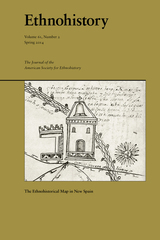 The Ethnohistorical Map in New Spain, Volume 61
Alexander Hidalgo and John F. López
Duke University Press This special issue brings together a multidisciplinary group of scholars to examine the relationship between cartography and the expression of ethnicity in the Viceroyalty of New Spain from 1521 to 1821. Maps from Oaxaca, central Mexico, and the Philippines, spanning the sixteenth through the early nineteenth centuries, provide important yet understudied illustrations of the social, political, and geographic complexity of the regions. This collection of essays scrutinizes maps made by cosmographers, surveyors, indigenous painters, and scientists. The contributors explicate how ethnicity can inform discussions of colonialism, social memory, land tenure, visual representation, and science and technology, ultimately demonstrating how New Spain’s culture and society were forged during the early modern period. Essays featured in this issue analyze the use of cartography to communicate the urban form of early colonial Mexico City and the application of botanical and protochemical knowledge to make ink for native maps from Oaxaca. Other essays address the representation of ethnicity and space in seventeenth-century Manila, the construction of spatial boundaries through the use of word and image in central Mexico, and the survival of Nahua place names and social ordering in eighteenth-century Mexico City. Alexander Hidalgo is Assistant Professor of Latin American History at Texas Christian University. John F. López is a Provost’s Postdoctoral Scholar at the University of Chicago.
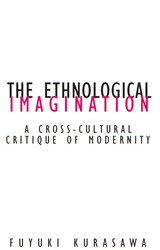 Ethnological Imagination: A Cross-Cultural Critique Of Modernity
Fuyuki Kurasawa
University of Minnesota Press, 2004 A significant intervention in contemporary debates about cross-cultural understanding Fuyuki Kurasawa unearths what he terms “the ethnological imagination,” a substantial countercurrent of thought that interprets and contests Western modernity’s existing social order through comparison and contrast to a non-Western other. Accordingly, Kurasawa traces and critiques, through this prism of cultural alterity, the writings of some of the key architects of this way of thinking: Jean-Jacques Rousseau, Karl Marx, Max Weber, Émile Durkheim, Claude Lévi-Strauss, and Michel Foucault. In the work of these thinkers, Kurasawa finds little justification for two of the most prevalent claims about social theory: the wholesale “postmodern” dismissal of the social-theoretical enterprise because of its supposedly intractable ethnocentrism and imperialism, or, on the other hand, the traditionalist and historicist revival of a canon stripped of its intercultural foundations. Rather, Kurasawa’s book defends a cultural perspective that eschews both the false universalism of “end of history” scenarios and the radical particularism embodied in the vision of “the clash of civilizations.” It contends that the ethnological imagination can invigorate critical social theory by informing its response to an increasingly multicultural world—a response that calls for a reconsideration of the identity and boundaries of the West as well of modernity itself.
Ethnomusicology and Modern Music History
Edited by Stephen Blum, Philip V. Bohlman, and Daniel M. Neuman
University of Illinois Press, 1991 Designed as a tribute to world-renowned ethnomusicologist Bruno Nettl,
this volume explores the ways in which ethnomusicologists are contributing
to the larger task of investigating music history. The fifteen contributors
explore topics ranging from meetings with the Suyá Indians of Brazil
to the German-speaking Jewish community of Israel; from Indian music in
Felicity, Trinidad, to Ravi Shankar's role as cultural mediator.
"This book is unique not only for its approach but also for the
scope of its content. . . . It is definitely a must for libraries of research
centers and institutions with ethnomusicology programs."
-- Choice
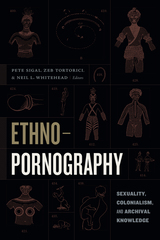 Ethnopornography: Sexuality, Colonialism, and Archival Knowledge
Pete Sigal, Zeb Tortorici, and Neil L. Whitehead, editors
Duke University Press, 2020 This volume's contributors explore the links among sexuality, ethnography, race, and colonial rule through an examination of ethnopornography—the eroticized observation of the Other for supposedly scientific or academic purposes. With topics that span the sixteenth century to the present in Latin America, the United States, Australia, the Middle East, and West Africa, the contributors show how ethnopornography is fundamental to the creation of race and colonialism as well as archival and ethnographic knowledge. Among other topics, they analyze eighteenth-century European travelogues, photography and the sexualization of African and African American women, representations of sodomy throughout the Ottoman empire, racialized representations in a Brazilian gay pornographic magazine, colonial desire in the 2007 pornographic film Gaytanamo, the relationship between sexual desire and ethnographic fieldwork in Africa and Australia, and Franciscan friars' voyeuristic accounts of indigenous people's “sinful” activities. Outlining how in the ethnopornographic encounter the reader or viewer imagines direct contact with the Other from a distance, the contributors trace ethnopornography's role in creating racial categories and its grounding in the relationship between colonialism and the erotic gaze. In so doing, they theorize ethnography as a form of pornography that is both motivated by the desire to render knowable the Other and invested with institutional power.
Contributors. Joseph A. Boone, Pernille Ipsen, Sidra Lawrence, Beatrix McBride, Mireille Miller-Young, Bryan Pitts, Helen Pringle, Pete Sigal, Zeb Tortorici, Neil L. Whitehead
 The Ethos of a Late-Modern Citizen
Stephen K. White
Harvard University Press, 2009 In The Ethos of a Late-Modern Citizen, Stephen K. White contends that Western democracies face novel challenges demanding our reexamination of the role of citizens. Such reflection involves our neither denying, in the name of tradition, the force of what is new, nor imagining that we can adequately confront change by simply rejecting the traditions of modern Western political thought. White offers an incisive interpretation of our late-modern ethical-political condition and explains how a distinctive “ethos,” or spirit, of citizenship might constitute part of an exemplary response. This ethos requires reworking basic figures of the modern political imagination, including our conception of the self, citizenship, and democratic politics.Essentially, White argues that the intense focus in the past three decades on finding general principles of justice for diversity-rich societies needs to be complemented by an exploration of what sort of ethos would be needed to adequately sustain any such principles. He proposes that Western citizens adopt an ethos that is defined by such virtues as (moral) attentiveness, self-restraint, and existential gratitude. Accessible, pithy, and erudite, The Ethos of a Late-Modern Citizen will appeal to a wide audience.
The Ethos of Drama: Rhetorical Theory and Dramatic Worth
Robert L. King
Catholic University of America Press, 2010 For the first time in the history of drama criticism this book uses traditional rhetorical theory to evaluate moral values in plays from Shakespeare's time to the present
 The Ethos of Noh: Actors and Their Art
Eric C. Rath
Harvard University Press, 2004 Since the inception of the noh drama six centuries ago, actors have resisted the notion that noh rests on natural talent alone. Correct performance, they claim, demands adherence to traditions. Yet what constitutes noh’s traditions and who can claim authority over them have been in dispute throughout its history. This book traces how definitions of noh, both as an art and as a profession, have changed over time. The author seeks to show that the definition of noh as an art is inseparable from its definition as a profession.
The aim of this book is to describe how memories of the past become traditions, as well as the role of these traditions in the institutional development of the noh theater from its beginnings in the fourteenth century through the late twentieth century. It focuses on the development of the key traditions that constitute the “ethos of noh,” the ideology that empowered certain groups of actors at the expense of others, and how this ethos fostered noh’s professionalization—its growth from a loose occupation into a closed, regulated vocation. The author argues that the traditions that form the ethos of noh, such as those surrounding masks and manuscripts, are the key traits that define it as an art.
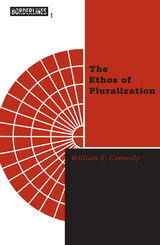 Ethos Of Pluralization
William Connolly
University of Minnesota Press, 1995 A skeptical examination of the inclusiveness of pluralism. How plural, really, is pluralism today? In this book a prominent political theorist reworks the traditional pluralist imagination, rendering it more inclusive and responsive to new drives to pluralization. Traditional pluralism, William E. Connolly shows, gives too much priority to past political settlements, allotments of public space and power relations already made and fixed. It deflates the politics of pluralization. The Ethos of Pluralization explores the constitutive tension between pluralism and pluralization, pursuing an ethos of politics that enables new forces of pluralization to find receptive responses in public life. Connolly explores how contemporary drives to pluralize stir the reactionary forces of political fundamentalism and how fundamentalism generates the cultural fragmentation it purports to resist. The reluctance of traditional pluralists to address the tension between pluralism and pluralization plays into the hands of fundamentalist forces. The Ethos of Pluralization eventually ranges beyond the borders of the territorial state to explore relations between the globalization of economic life and a more adventurous pluralization of political identities. Engaging images of pluralism and nationalism advanced by Tocqueville, Schumpeter, Ricoeur, Walzer, Herz, and Kurth, Connolly draws selectively upon Nietzsche, Foucault, Butler and Deleuze to delineate an ethos of politics that makes for new identities while protecting conditions that make pluralism and governance possible.
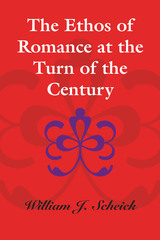 The Ethos of Romance at the Turn of the Century
By William J. Scheick
University of Texas Press, 1994 The romance genre was a popular literary form among writers and readers in the nineteenth and early twentieth centuries, but since then it has often been dismissed as juvenile, unmodern, improper, or subversive. In this study, William J. Scheick seeks to recover the place of romance in fin-de-siècle England and America; to distinguish among its subgenres of eventuary, aesthetic, and ethical romance; and to reinstate ethical romance as a major mode of artistic expression. Scheick argues that the narrative maneuvers of ethical romance dissolve the boundary between fiction and fact. In contrast to eventuary romances, which offer easily consumed entertainment, or aesthetic romances, which urge upon readers a passive appreciation of a wondrous work of art, ethical romances potentially disorient and reorient their readers concerning some metaphysical insight hidden within the commonplace. They prompt readers to question what is real and what is true, and to ponder the wonder of life and the text of the self, there to detect what the reader might do in the art of his or her own life The authors whose works Scheick discusses are Nathaniel Hawthorne, H. Rider Haggard, Henry James, C. J. Cutcliffe Hyne, H. G. Wells, John Kendrick Bangs, Gilbert K. Chesterton, Richard Harding Davis, Stephen Crane, Mary Austin, Jack London, Robert Louis Stevenson, Mary Cholmondeley, and Rudyard Kipling. This wide selection expands the canon to include writers and works that highly merit re-reading by a new generation.
 The Ethos of the Christian Heart: Reading Veritatis Splendor
Adrian Reimers
St. Augustine's Press, 2024 One of the most studied and critiqued documents of the papal magisterium is largely spoken of with regards to moral theology and the refutation of modern error. Yet Adrian Reimers points out that, as affirmed by this encyclical, the moral life is itself a realm of love and freedom, a place of intimacy with the Creator as much as interaction with others. Reimers is eager to show that the Encyclical is more innovative than it looks, just as morality is not just about the correction of error. It is not content to defend the traditional positions; it traces the paths of a profound renewal in the presentation of Catholic morality. "We would gladly say that it performs a kind of discreet revolution in the conception of Christian morality, affecting the very bases that support it."
The publication of Veritatis Splendor met with vigorous opposition and even rejection within the Catholic theological community. But in Veritatis Splendor John Paul II addresses these contemporary conceptions, including dissention, coming to grips with the roots of the modern errors that have resulted in the loss of transcendence. However, the scope of Veritatis Splendor is far broader than evil and judgment of sin. The pope addresses such issues as conscience, intrinsically evil acts, and the theory of fundamental freedom. Inevitably, these discussions revolve around how to conceive the nature of the human act and the conception of natural law.
This present work examines this encyclical against the backdrop of the philosophers with whom Karol Wojtyła engaged in his own philosophical project. Of central concern to Wojtyła throughout his career were the nature and prerogatives of the human person. Among his most frequent modern interlocutors were David Hume, Immanuel Kant, the utilitarian school, and Max Scheler. The program of Wojtyła’s philosophical corpus is to present an alternative account of the human person to that which has marked the post-Enlightenment world. Having shared in the sufferings of his native Poland under the Nazi occupation and then as a scholar working in Communist Poland, Wojtyła was keenly aware of the forms of materialism which formed the environment of his own life and work. He offers not only his own analyses but also provides a model for engaging with the contemporary culture.
Veritatis Splendor is a timeless examination of human, personal acts that challenges the post-modern conception of morality, love, and freedom. Reimers reorients this presentation for contemporary readers and invites readers who may have missed this foundational treatment to incorporate it into the questions and issues of our own times.
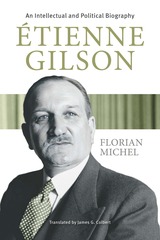 Etienne Gilson: An Intellectual and Political Biography
Florian Michel
Catholic University of America Press, 2023 Étienne Gilson (1884-1978) was a French philosopher and historian of philosophy, as well as a scholar of medieval philosophy. In 1946 he attained the distinction of being elected an "Immortal" (member) of the Académie française. He was nominated for the Nobel Prize in Literature in 1959 and 1964.
This major biography of Gilson was first published in France in 2018, and now arrives in a long-anticipated English translation. Florian Michel traces Gilson’s life through his time as a professor at the College de France and member of the French Academy. Gilson was a prisoner of war in Germany, was one of the first to describe the horrors of the famine in Ukraine (1922), created an institute of medieval studies in Toronto, published hundreds of articles in the French daily press and took part in the founding conferences of the United Nations.He was neither for Sartre nor for Aron, and advocated, when the NATO agreements were signed, the neutrality and non-alignment of Europe. Gilson did not hesitate to engage in quarrels with the bishops and allows us to understand how one passes from a critical modernism before the First World War to a liberal Thomism and to the Vatican Council II.
James G. Colbert, who translated Gilson’s The Metamorphosis of the City of God, offers a careful and measured translation to bring this important work to an English speaking audience.
 Etiology, Concept and Prophylaxis of Childbed Fever
Ignaz Semmelweis; Translated by K. Codell Carter
University of Wisconsin Press, 1983 In 1859 a Hungarian obstetrician named Ignaz Semmelweis, reflecting on his years as resident in the Vienna maternity clinic, wrote a graphic account of his attempt to diagnose and eliminate the then epidemic scourge of childbed fever. The resulting Etiology triggered an immediate and international squall of protest from Semmelweis’s colleagues; today it is recognized as a pioneering classic of medical history. Now, for the first time in many years, Codell Carter makes that classic available to the English-speaking reader in this vivid translation of the 1861 original, augmented by footnotes and an explanatory introduction. For students and scholars of medical history and philosophy, obstetrics and women’s studies, the accessibility of this moving and revolutionary work, important both as an historical document and as a groundbreaking precursor of modern medical theory, is long overdue.
Semmelweis’s exposure to the childbed fever was concurrent with his appointment to the Vienna maternity hospital in 1846. Like many similar hospitals and clinics in the major cities of nineteenth-century Europe and America, where death rates from the illness sometimes climbed as high as 40 percent of admitted patients, the Viennese wards were ravaged by the fever. Intensely troubled by the tragic and baffling loss of so many young mothers, Semmelweis sought answers. The Etiology was testimony to his success. Based on overwhelming personal evidence, it constituted a classic description of a disease, its causes, and its prevention. It also allowed a necessary response to the obstetrician’s already vocal, rabid, and perhaps predictable critics. For Semmelweis’s central thesis was a startling one - the fever, he correctly surmised, was caused not by epidemic or endemic influences but by unsterilized and thus often contaminated hands of the attending physicians themselves.
Carter’s translation of this radical work, judiciously abridged and extensively footnoted, captures all the drama and impassioned conviction of the original. Complementing this translation is a lucid introduction that places Semmelweis’s Etiology in historical perspective and clarifies its contemporary value. That value, Carter argues, is considerable. Important as a model of clinical analysis and as a chronicle of early nineteenth-century obstetrical practices, the Etiology is also a revolutionary polemic in its innovative doctrine of antisepsis and in its unique etiological explanation of disease. As such its recognition and reclamation allows a crucial understanding, one that clarifies the roots and theory of modern medicine and ultimately redeems and important, resolute, pathfinder.
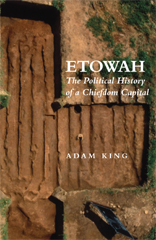 Etowah: The Political History of a Chiefdom Capital
Adam King
University of Alabama Press, 2002 A Dan Josselyn Memorial Publication
Detailed reconstruction of the waxing and waning of political fortunes among the chiefly elites at an important center of the prehistoric world At the time the first Europeans arrived in the New World, thousands of earthen platform mounds dotted the landscape of eastern North America. Only a few of the mound sites have survived the ravages of time and the devastation of pilferers; one of these valuable monuments is Etowah, located near Cartersville in northern Georgia. Over a period of more than 100 years, excavations of the site’s six mounds, and in particular Mound C, have yielded a wealth of artifacts, including marble statues, copper embossed plates, ceremonial items, and personal adornments. These objects indicate an extensive trading network between Mississippian centers and confirm contact with Spanish conquistadores near Etowah in the mid-1500s. Adam King has analyzed the architecture and artifacts of Etowah and deduced its vital role in the prehistory of the area. He advances a plausible historical sequence and a model for the ancient town's complex political structure. The chiefdom society relied upon institutional social ranking, permanent political offices, religious ideology, a redistribution of goods and services, and the willing support of the constituent population. King reveals strategies used by the paramount chiefs to maintain their sources of power and to control changes in the social organization. Elite alliances did not necessarily involve the extreme asymmetry of political domination and tribute extraction. King's use of ceramic assemblages recovered from Etowah to determine the occupation history and the construction sequence of public facilities (mounds and plazas) at the center is significant. This fresh interpretation of the Etowah site places it in a contemporary social and political context with other Mississippian cultures. It is a one-volume sourcebook for the Etowah polity and its neighbors and will, therefore, command an eager audience of scholars and generalists.
|
|




